


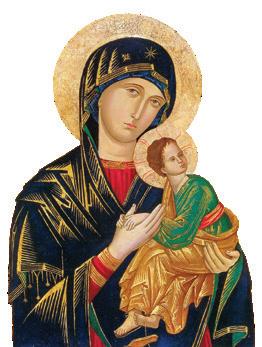
Informing, Inspiring, Challenging Today’s Catholic Reality A WAY FORWARD SYNOD FOR THE IRISH CHURCH SYNOD SPECIAL JUNE 2021 �2.50 �2.00 www.redcoms.org Redemptorist-Communications @RedComsIreland TURNFIVEREASONSWE TOMARYINTIMESOFCRISISInside
SOLEMN NOVENAS ONLINE TO OUR MOTHER OF PERPETUAL HELP
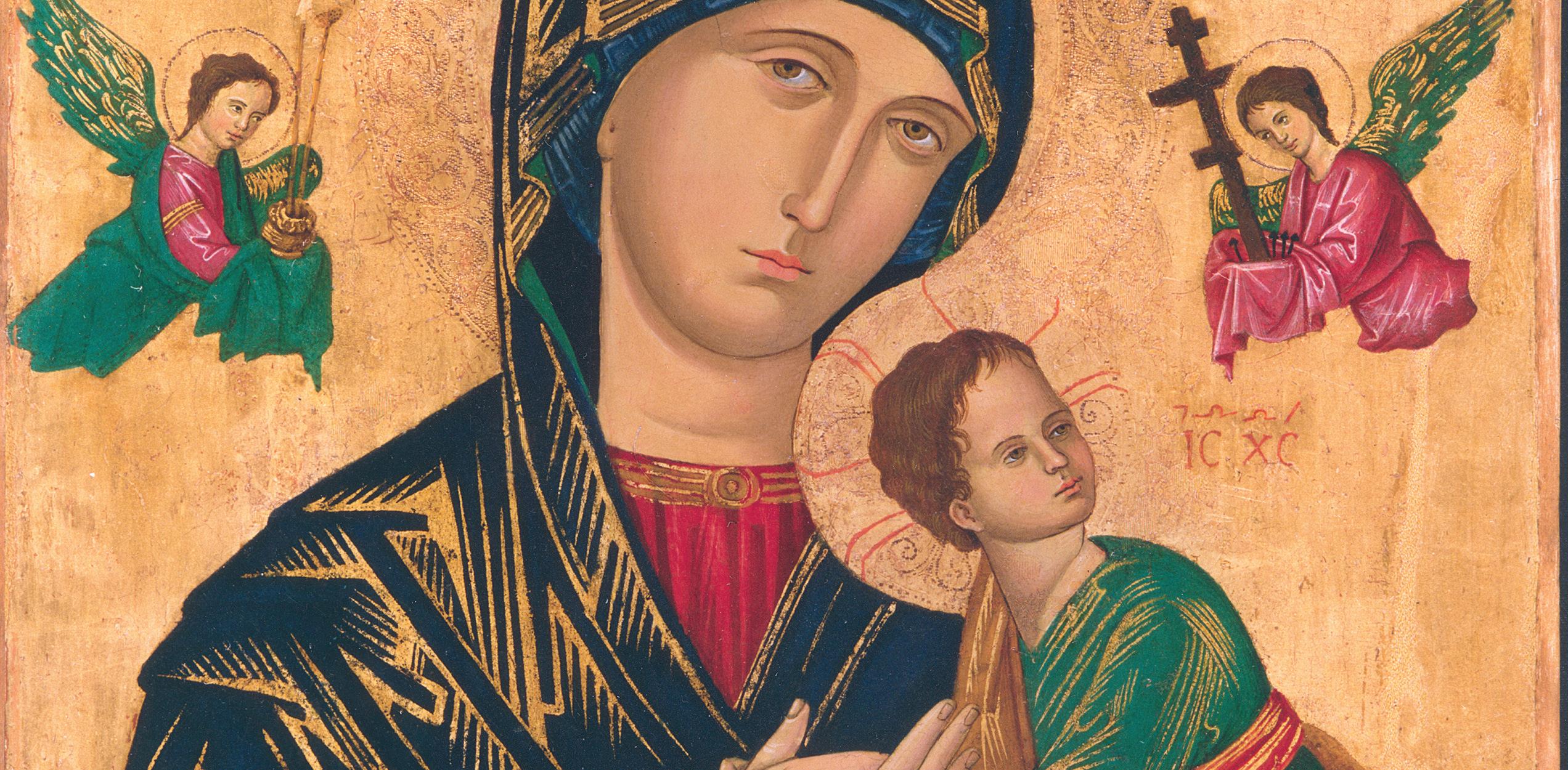
ESKER, ATHENRY June 1-9, 2021
Sessions: 10.00am each day, ONLINE ONLY
Preachers: Jimmy Buckley CSsR, Helena Connolly, Mali and Trevor Ó Clochartaigh, Denis Luddy CSsR, Brendan Callanan CSsR www.redemptoristsesker.ie/web-cam
CLONARD, BELFAST June 16-24, 2021

Sessions: 7.00am/9.30am/6.15pm/8.00pm ONLINE ONLY
Preachers: Peter Burns CSsR, Helena Connolly, Brendan O’Rourke CSsR, Ciaran O’Callaghan CSsR, Johnny Doherty CSsR
Special Services: Monday, June 21: Ministers from other Christian Churches. www.clonard.com/web-cam
MOUNT SAINT ALPHONSUS, LIMERICK June 18-26, 2021


Sessions: 8am/10am/7.15pm/9pm ONLINE ONLY
Preachers: Seamus Enright CSsR, Laurence Gallagher CSsR, Gerry Moloney CSsR, Dominic O’Toole CSsR
The church will be open daily for veneration of the Icon of Our Lady of Perpetual Help from 11am to 6pm
www.novena.ie/web-cam



IN THIS MONTH’S ISSUE
FEATURES
�� A WAY FORWARD FOR THE IRISH CHURCH
By Tríona Doherty
Reaction to the synod:
18 Synod of the Irish Church - Hope or folly?
By Kevin Williams
20 An environmental blueprint for the synod
 By Jane Mellet
By Jane Mellet
21 Towards a listening church
By Helena Connolly
22 A timely proposal
By Eibhlin Tinneny
23 A church that doesn't listen dies
By Tommy Morris
24 Grounds for optimism
By Nessan Vaughan
25 A long overdue development
By Ursula Halligan and Colm Holmes
26 To be a church of the poor
By John O'Brien
27 True dialogue must involve listening
By Leanne Kelly
28 Wary but hopeful
By Monica Morley
�� HAVEN OF PEACE
Everyday reminders that "the grace of God is in courtesy".
By Fr Colm Meaney CSsR
�� PEOPLE BEFORE BORDERS
Pope Francis and the call to solidarity with immigrants.
By Michael Daley
�� MONTH OF THE SACRED HEART
Devotion to the Sacred Heart of Jesus has a rich history in the church.
By Maria Hall
�� NO LONGER THE BEST CATHOLICS IN THE WORLD
A new book explores the changing relationship between the Catholic Church and the Irish population.
By Eamon Maher
�� FIVE REASONS WE TURN TO MARY IN TIMES OF CRISIS
Mary offers hope, healing and comfort in the current pandemic.
By Cardinal Joseph W. Tobin CSsR
11 EDITORIAL 17 JIM DEEDS 31 CARMEL WYNNE 44 PETER McVERRY SJ 04 REALITY BITES 07 POPE MONITOR 08 FOREVER YOUNG 09 REFLECTIONS 42 TRÓCAIRE 45 GOD’S WORD
REGULARS OPINION
REALITY BITES
VATICAN CITY
VATICAN APPROVES NEW INVOCATIONS FOR LITANY OF ST JOSEPH
Updating the Litany of St Joseph, approved in 1909, the Vatican has added seven invocations, including two that address the guardian of Jesus and husband of Mary as “support in difficulty” and “patron of refugees.”
The Congregation for Divine Worship and the Sacraments published the additions May 1, the feast of St Joseph the Worker.
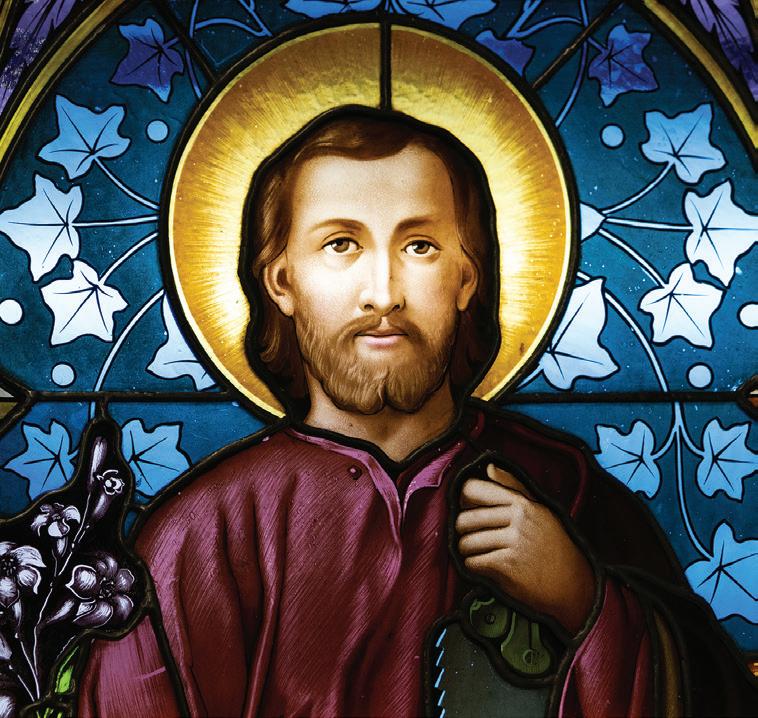
The additions were approved by Pope Francis, the congregation said, and drew the new invocations mainly from modern papal texts about St Joseph, including Pope Francis’ December apostolic letter proclaiming a Year of St Joseph and Pope John Paul II’s 1989 apostolic exhortation, Redemptoris Custos (Protector of the Redeemer).
Since Pope Francis wanted, as he wrote in his letter, “to increase our love for this great saint, to encourage us to implore his intercession and to imitate his virtues and his zeal,” the congregation said, it seemed appropriate to update the 112-year-old litany.
Providing only the Latin-language version of the invocations, the congregation said it would be up to bishops’ conferences to translate the phrases and to add others if St Joseph is invoked by their people in a particular way.
VATICAN CITY
FOUNDATION RECEIVES PERSONAL WRITINGS OF POPE JOHN PAUL I
The John Paul I Vatican Foundation announced the recovery of a collection of the late pope’s writings.
In a statement released by the Vatican April 28, Archbishop Francesco Moraglia of Venice said the personal archives of his predecessor, then-Cardinal Albino Luciani, are a testament to the late pontiff’s humility as “a meek and brave worker in the vineyard of the Lord.”
“I hope the foundation will always undertake the work of spreading his religious and cultural heritage so that we may know better the beautiful ‘surprise’ that God wanted to reserve, one day, for his church and the world by placing Albino Luciani on the chair of St. Peter,” Archbishop Moraglia wrote.
Pope John Paul I served only 33 days as pope. He died in 1978 at the age of 65, shocking the world and a church that had just mourned the death of Pope Paul VI.

The foundation, established in 2020 by Pope Francis, was set up to sponsor a variety of initiatives, including conventions, meetings, seminars and study sessions. It also is expected to publish research and be a point of reference throughout the world for people who wish to further their studies on Pope John Paul I.

Italian journalist Stefania Falasca, a member of the foundation’s administrative board and vice postulator of the late pope’s sainthood cause, said the writings – dated from 1929 to 1978 – are a “very rich collection of diverse documentation spanning 50 years, made up of papers including handwritten pieces, notebooks, diaries, printed and photographic material and correspondence.”
“The scope of these papers, which is mainly characterised as a personal file, largely includes interventions, lectures, conferences, homilies, articles and publications,” she said.
Among the writings, which are expected to be digitised, was the pope’s 1978 personal agenda that includes notes written by John Paul I for his Sunday Angelus addresses and weekly audiences.
4 REALITY JUNE 2021
VATICAN CITY
CARDINAL UNVEILS MAJOR VATICAN CONFERENCE ON PRIESTHOOD SLATED FOR ����
Increasing vocations to the priesthood, improving the way laypeople and priests work together and ensuring that service, not power, motivates the request for ordination are all possible outcomes of a major symposium being planned by the Vatican for February 2022.
“A theological symposium does not claim to offer practical solutions to all the pastoral and missionary problems of the church, but it can help us deepen the foundation of the church’s mission,” said Cardinal Marc Ouellet, prefect of the Congregation for Bishops and the chief organiser of the symposium planned for February17-19 2022.
The symposium, 'Toward a Fundamental Theology of the Priesthood', seeks to encourage
an understanding of ministerial priesthood that is rooted in the priesthood of all believers conferred at baptism, getting away from the idea of ordained ministry as belonging to “ecclesiastical power,” the cardinal said at a news conference April 12.
The three-day gathering, the cardinal said, is aimed specifically at bishops and delegations of theologians and vocations personnel from every country, although it will be open to other theologians and people interested in the topic.
The relationship between baptism and ordained ministry needs greater emphasis today, Cardinal Ouellet said, but reviewing the foundations of a theology of priesthood also “involves ecumenical questions not to be ignored, as well as the cultural movements that
MYANMAR CARDINAL ASKS PRAYERS FOR PEACE, JUSTICE
Myanmar Cardinal Charles Bo of Yangon has encouraged Catholics to say the Rosary and participate in eucharistic adoration for peace and justice in military-ruled Myanmar. Ucanews.com reported the cardinal asked for the prayers throughout May. He outlined the intention of seeking God’s blessing for peace for the first week, justice for the second week, unity in the third week, and respect for human dignity in the fourth.
The announcement signed by Cardinal Bo said the faithful may participate at home, in parishes or at religious communities, according to their convenience.
“There is no true peace without fairness, truth, justice and solidarity,” the cardinal said in the letter, quoting the words of St John Paul II.
Cardinal Bo’s plea for prayers comes as Myanmar has been plunged into political turmoil under the harsh rule of the military, who seized power and toppled the elected civilian government February 1. Myanmar had been ruled by the military for more than
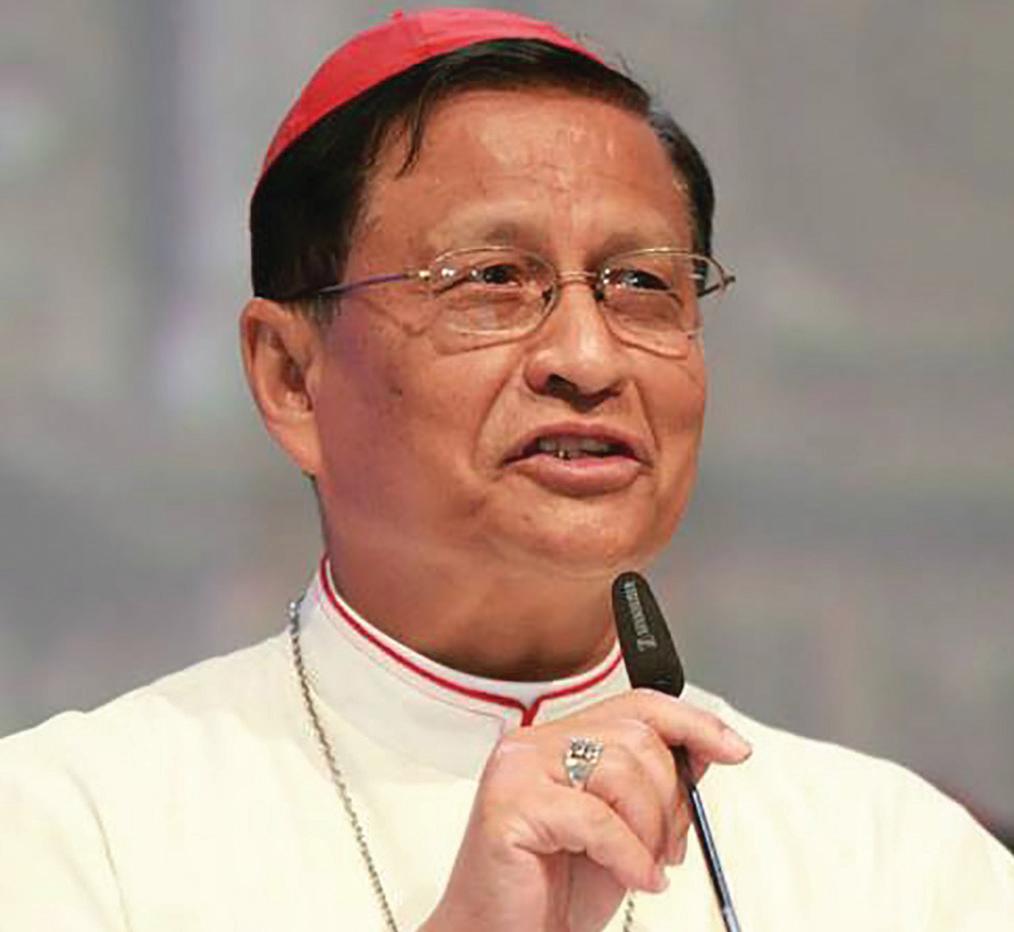
50 years before Aung San Suu Kyi’s elected government took office in April 2016.

The Southeast Asian nation has seen daily protests against military rule from urban areas to remote villages in ethnic areas.
Myanmar’s crisis has gained attention from world leaders, including Pope Francis, who has repeatedly expressed his solidarity with the people of Myanmar and urged the military leaders to turn to dialogue to pursue peace.
Catholics, who are a minority in Buddhistmajority Myanmar, have played an active role in praying for a peaceful solution, participating in pro-democracy protests and supplying material and moral support to the needy and the families of deceased protesters.
The military is continuing its intense crackdown on anti-coup protesters and bystanders with lethal force, arbitrary arrests and torture.
At least 759 people have been killed and nearly 3,500 people detained since the February 1 coup, according to a rights group.
question the place of women in the church.”
The recent synods of bishops on the family, on young people and on the church in the Amazon all show the urgency of questions surrounding priesthood and relationships among people with different vocations in the church, the cardinal said.
Michelina Tenace, a professor of theology at Rome’s Pontifical Gregorian University, is helping organise the symposium and told reporters that going back to baptism and the priesthood of all believers “isn’t just a fashion, it’s the basis for all Christian life.”
The clerical abuse scandal, she said, makes the questions of priestly identity, vocational discernment and formation more urgent.
YANGON
5 NEWS
continued on page 6
On top: Cardinal Charles Bo of Yangon. Above: Aung San Suu Kyi
REALITY BITES
GERMAN LEGISLATORS CONSIDER ENDING STATE PAYMENTS TO CHURCHES
Germany’s lower house of Parliament is considering replacing state payments to the nation’s two largest churches. The Catholic and Protestant churches received combined state benefits of more than $650 million in 2020.
At a hearing in the interior affairs committee of the Bundestag, or lower house of parliament, they welcomed in principle the intention of legislation by the opposition liberal Free Democratic Party, the Greens and the Left Party and pointed out that it was in line with a constitutional mandate to abolish the payments, which date back to a 19thcentury provision. By contrast, a number of legal experts said an alternative bill by the Alternative for Germany party to simply phase out the benefits was unconstitutional,
BOGOTÁ
reported the German Catholic news agency KNA.
The bill by the three parties aims to create the necessary framework for agreements between the federal states, which currently make the payments, and the Catholic dioceses and Protestant regional churches.
Most of the state payments date back to 1803, when German imperial princes received expropriated church property as compensation for a loss of territory. In return, the princes paid the churches money on a regular basis.
The right of the churches to levy contributions, or a church tax, from their members has nothing to do with these state benefits, KNA reported.
Since 1919, the constitution has called for these benefits to be replaced. The prerequisite for this would be agreements with the churches at the federal and state level as well as corresponding laws. However, the churches would have to receive high redemption sums for this, which is why most of the federal states have so far refrained from taking the step.
According to the new draft law, the maximum amount of the replacement payments is to be based on the so-called equivalence principle — 18.6 times the annual payment to be made, which would be nearly $12 billion. The federal states would be obliged to implement this within five years of the law coming into force and complete the payment within 20 years.

VENEZUELA’S ‘DOCTOR OF THE POOR’ BEATIFIED IN AUSTERE CEREMONY
A Venezuelan doctor who treated patients during the Spanish flu pandemic and was one of the first to introduce microscopes to his nation’s hospitals was beatified April 30 in an austere ceremony held in Caracas, the city where he spent much of his life tending to the sick.
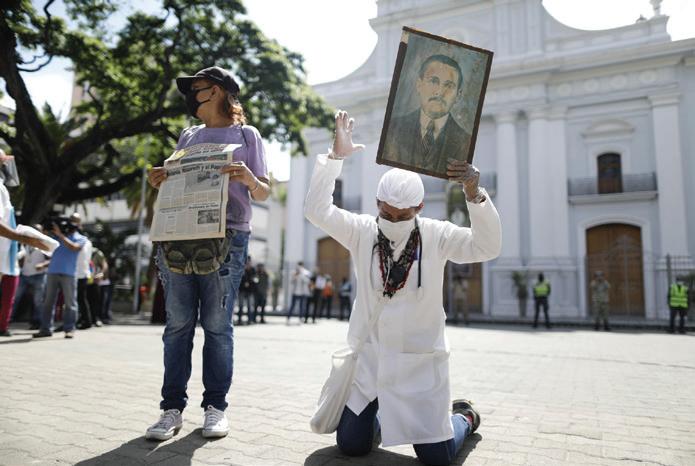
Blessed José Gregorio Hernández led a pious life marked by science, faith and public service. He was a founding member of Venezuela’s academy of medicine and tried unsuccessfully to become a priest. Along with his colleagues, Blessed Hernández resisted a dictator’s plans to shut down a university in Venezuela at the turn
of the 20th century, while introducing the study of pathological anatomy.
But Blessed Hernández was known most of all for being a kind doctor who refused to charge his poorest patients for his services and served people from all walks of life. He died in 1919 after being hit by a car while on his way to taking free medicine to an elderly patient.
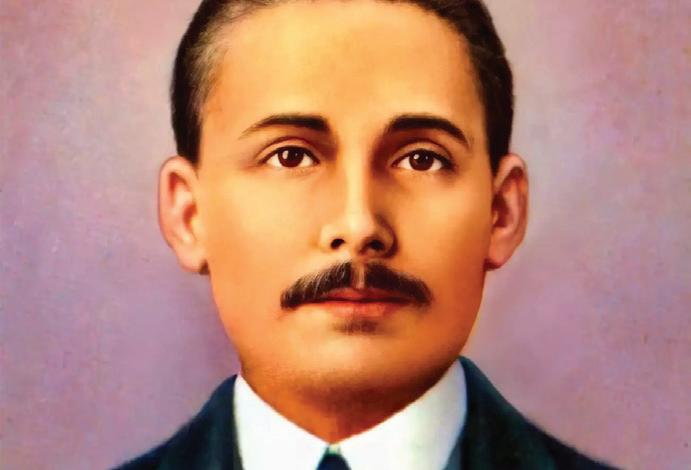
“In his person you can find a great doctor, a scientist, a professor. And at the same time, humility, the rejection of arrogance and dedication to the poor,” said Archbishop Aldo Giordano, Vatican ambassador to Venezuela,
during his homily at the beatification Mass.
“This is the logic of the Gospel. And Venezuela’s future depends on people who are capable of living with that same kind of logic,” the archbishop said.
The beatification Mass was held at a church in a Catholic school and, due to COVID-19 restrictions, was attended by fewer than 200 people; it was broadcast on national television in Venezuela. Earlier, churches around the country rang their bells in unison to celebrate Blessed Hernández’s life as he took one step closer to sainthood.

6 REALITY JUNE 2021
BERLIN
Blessed José Gregorio Hernández The beatification Mass
Supporters outside the church
SAYING HE MISSED PEOPLE, POPE RETURNS TO WINDOW FOR SUNDAY PRAYER
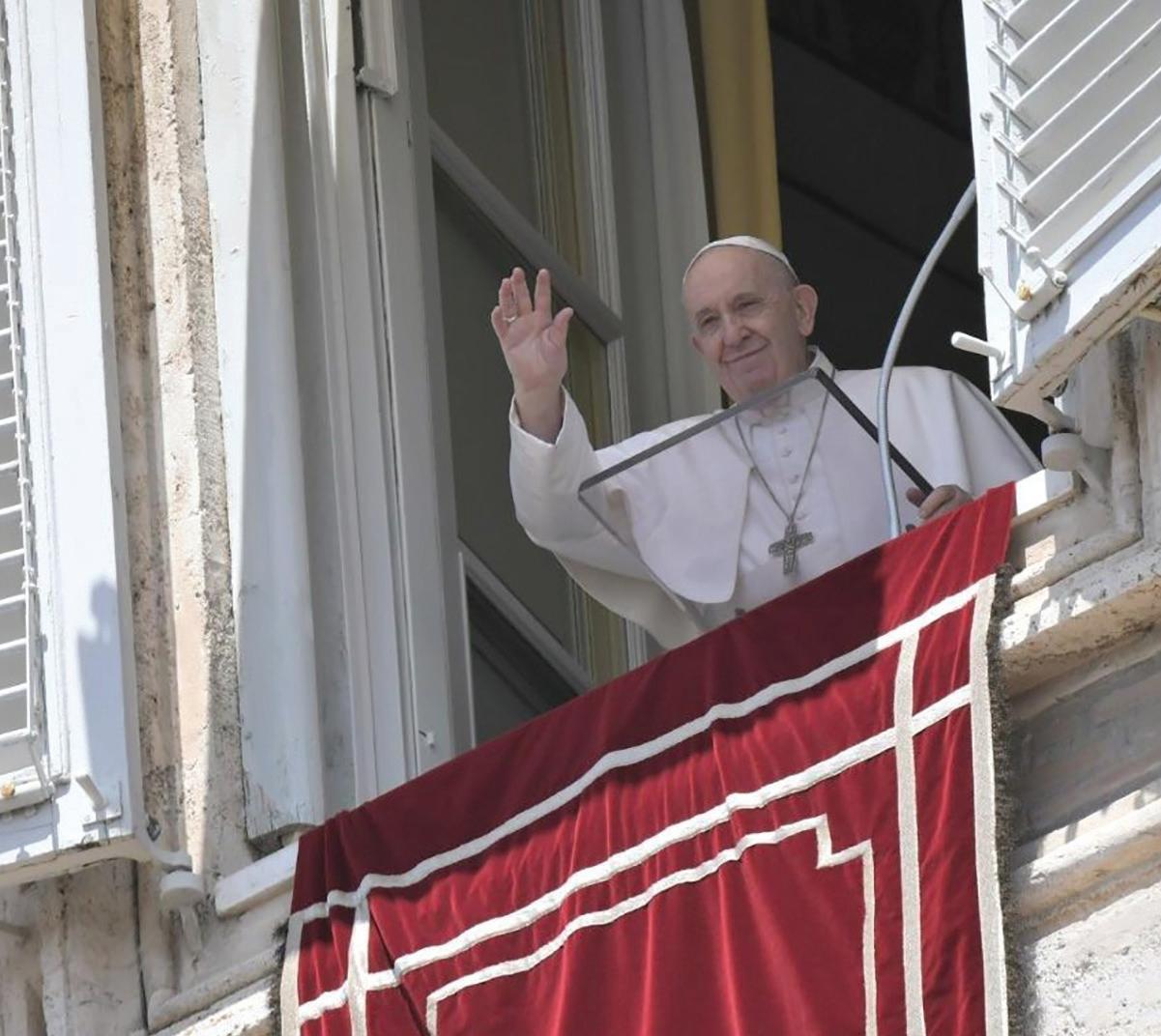
Greeting visitors in St. Peter’s Square after nearly a month of tight restrictions due to the pandemic, Pope Francis said he was happy to see people allowed to gather and be present for Sunday noonday prayer.
“I offer a warm greeting to all of you, people of Rome and pilgrims,” he said, pointing out the many flags he could see being held high.
A few hundred people, all wearing masks and socially distanced, attended the recitation of the Regina Coeli prayer April 18 after nearly a month of tighter controls on gatherings in an ongoing attempt to curb the spread of the coronavirus.
“Thanks be to God, we can find ourselves again in this square for the Sunday and holiday appointment,” he said, adding how much he misses greeting people in the square when he must recite the midday prayer inside the apostolic library.
“I am happy, thanks be to God! And thank you for your presence,” he said to applause.
In his main talk, Pope Francis said Jesus is a real living person whose presence always leaves the person encountering him astonished, which “goes beyond enthusiasm, beyond joy; it is another experience” that is profoundly beautiful.
POPE CHOOSES THEME FOR WORLD DAY FOR GRANDPARENTS AND ELDERLY
To express the closeness of God and of the church to every older person, Pope Francis has chosen “I am with you always” from the Gospel of Matthew as the theme for the first World Day for Grandparents and the Elderly.
The theme for the celebration July 25 is especially appropriate “in these challenging pandemic times,” said the announcement from the Dicastery for Laity, the Family and Life.
“‘I am with you always’ is also a promise of closeness and hope that young and old can mutually share. Not only are grandchildren and young people called upon to be present in the lives of older people, but older people and grandparents also have a mission of evangelisation, proclamation and prayer, and of encouraging young people in their faith,” the statement said.
Pope Francis announced in late January that he was establishing the World Day for Grandparents and the Elderly, which is to be celebrated each year on the fourth Sunday of July to coincide with the feast of Sts Joachim and Anne, Jesus’ grandparents.

Cardinal Kevin J. Farrell, prefect of the dicastery, said the annual event would be “a gift to the whole church” and one that emphasises the pastoral care of the elderly as “a priority that can no longer be postponed by any Christian community.”
“In the encyclical, Fratelli Tutti, the Holy Father reminds us that no one is saved alone. With this in mind, we must treasure the spiritual and human wealth that has been handed down from generation to generation,” he said.
Pope Francis is expected to mark the day with an evening Mass in St Peter’s Basilica.

7
NEWS
POPE MONITOR KEEPING UP WITH POPE FRANCIS
Sts Joachim and Anne, grandparents to Jesus
FOREVER YOUNG
SAINTS WHO DIED YOUNG
ST PETER CALUNGSOD 1654–1672

Little is known about the early life of Peter Calungsod. Even his birthplace is disputed. Some say he was a native of the Visayas region in the Philippines. Others claim him for the region of Cebu. Born into a Christian family, he was trained as a lay catechist at a Jesuit minor seminary in Cebu, learning Spanish, Latin and the catechism. When they completed their education, boys of the school were sent as assistants to priests in the countryside, to serve as sacristans and catechists.
In 1668, a Jesuit, Diego Luís de San Vitores, formed a team of 17 young laymen and priests to evangelise the Ladrones Islands, today known as the Mariana Islands. Peter, just about 14, was one of the catechists chosen.
Life in the islands was hard. Food and other necessities were sometimes in short supply. The jungles were thick, the cliffs steep, and the islands were subject to devastating typhoons. Despite all this, the mission quickly began to show success. Within a short time, over 13,000 of the native population were baptised. Chapels were established, and a school and church were built. The missionaries changed the name of the islands from Ladrones (thieves) to 'Marianas' in honour of the Blessed Virgin Mary.
But the initial enthusiasm began to weaken. The missionaries were opposed to some of the local practices, particularly ancestor worship. The indigenous people dug up the skulls of dead relatives to keep as miraculous charms, enshrined in special houses guarded by native priests. They invoked the ancestral spirits for good luck, for a good harvest or victory in battle. The missionaries also objected to the free expression of sexuality by the young people. The upper classes objected to the missionaries baptising poorer people: they wanted the new faith for themselves alone.
One lapsed convert began to spread the rumour that the missionaries' baptismal water was poisonous. The death of some sickly babies was taken as proof of this.
At 7 o'clock in the morning of April 2, 1672, Peter, who was now about 17 years old, and the superior of the mission, Padre Diego, came to the village of Tomtom, in the island of Guam. They were told that a baby girl was recently born in the village, so they went to ask the child's father, Matapang, to bring the child for baptism. Matapang had been a Christian and a friend of the missionaries, but he now angrily refused to have his baby baptised.
Padre Diego and Peter baptised the child with the consent of the Christian mother while the father was absent. When he learned of the baptism, the father attacked the priest and Peter. A spear hit Peter in the chest, and he fell to the ground. He was then hacked with a cutlass. Their killers dragged their bodies and threw them into the sea with large stones attached to them.
In the course of research for the beatification of Padre Diego, the story of Peter came to light. Pope John Paul beatified him in 2000. In his homily on that occasion, the pope said: "From his childhood, Peter Calungsod declared himself unwaveringly for Christ and responded generously to his call. Young people today can draw encouragement and strength from the example of Peter, whose love of Jesus inspired him to devote his teenage years to teaching the faith as a lay catechist."
Pope Benedict XVI canonised Peter on October 21, 2012, and the Philippines issued a special postage stamp to mark the occasion. His feast day falls on April 2.
Brendan McConvery CSsR
Reality
Volume 86. No. 5 June 2021
A Redemptorist Publication
ISSN 0034-0960
Published by The Irish Redemptorists, St Joseph's Monastery, St Alphonsus Road, Dundalk County Louth A91 F3FC
Tel: 00353 (0)1 4922488
Web: www.redcoms.org Email: sales@redcoms.org
(With permission of C.Ss.R.)
Acting-Editor
Gerard Moloney CSsR editor@redcoms.org
Design & Layout
David Mc Namara CSsR
Sales & Marketing
Claire Carmichael ccarmichael@redcoms.org
Accounts
Dearbhla Cooney accounts@redcoms.org
Printed by W&G Baird Printers, Belfast
Photo Credits
Shutterstock, Catholic News Agency, Trócaire,
REALITY SUBSCRIPTIONS
Through a promoter (Ireland only) €20 or £18
Annual Subscription by post: Ireland €25 or £20 UK £30 Europe €40 Rest of the world €50
Please send all payments to:
Redemptorist Communications, St Joseph's Monastery, St Alphonsus Road, Dundalk County Louth A91 F3FC
ADVERTISING
Whilst we take every care to ensure the accuracy and validity of adverts placed in Reality, the information contained in adverts does not necessarily reflect the views and opinions of Redemptorist Communications. You are therefore advised to verify the accuracy and validity of any information contained in adverts before entering into any commitment based upon them. When you have finished with this magazine, please pass it on or recycle it. Thank you.
REDEMPTORIST COMMUNICATIONS

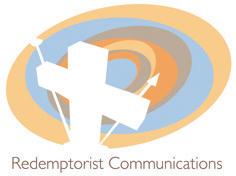
St Joseph's Monastery, Dundalk, County Louth A91 F3FC Tel: 00353 (0)1 4922488 Email: sales@redcoms.org Web: www.redcoms.org
Promoters:
We keep all of our promoters in our prayers and thank them for their loyal service in selling Reality. We remember in our prayers sick and deceased promoters and their families.
8 REALITY JUNE 2021
REFLECTIONS
I have always grown from my problems and challenges, from the things that don't work out, that's when I've really learned.
CAROL BURNETT

Strive not to be a success but rather to be of value.
ALBERT EINSTEIN
The difference between heresy and prophecy is often one of sequence. Heresy often turns out to have been prophecy – when properly aged.
HUBERT H. HUMPHREY
The time you enjoy wasting is not wasted.
BERTRAND RUSSELL
Let your religion be less of a theory and more of a love affair.
G.K. CHESTERTON
There is no passion to be found in settling for a life that is less than the one you are capable of living.
NELSON MANDELA
Lead me not into temptation. I can find the way myself.
RITA MAE BROWN
You can safely assume that you've created God in your own image when it turns out that God hates all the same people you do.
ANNE LAMOTT
Reality, in fact, is always something you couldn't have guessed. That's one of the reasons I believe Christianity. It's a religion you couldn't have guessed.
C.S. LEWIS
If they can make penicillin out of mouldy bread, they can sure make something out of you.
MUHAMMAD ALI
Take the first step in faith. You don’t have to see the whole staircase, just take the first step.
DR MARTIN LUTHER KING JR.
Being religious means asking passionately the question of the meaning of our existence and being willing to receive answers, even if the answers hurt.
PAUL TILLICH
ATTORNEY: What gear were you in at the moment of the impact?
WITNESS: Gucci sweats and Reeboks.
Faith is different from proof; the latter is human, the former is a Gift from God.
BLAISE PASCAL
Character cannot be developed in ease and quiet. Only through experience of trial and suffering can the soul be strengthened, ambition inspired, and success achieved.
HELEN KELLER
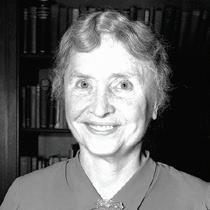
We can believe what we choose. We are answerable for what we choose to believe.
JOHN HENRY NEWMAN
Happiness is not something you postpone for the future; it is something you design for the present.
JIM ROHN
A friend is a gift you give yourself.
ROBERT LOUIS STEVENSON
And no, we don’t know where it will lead. We just know there’s something much bigger than any of us here.
STEVE JOBS

The trouble with not having a goal is that you can spend your life running up and down the field and never score.
BILL COPELAND
Opportunity is missed by most people because it is dressed in overalls and looks like work.
THOMAS A. EDISON
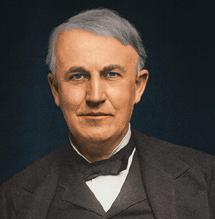
Dance as though no one is watching you.
Love as though you have never been hurt before.
Sing as though no one can hear you.
Live as though heaven is on earth.
SOUZA
9

A WELCOME INITIATIVE
Therewas considerable surprise and delight when the Irish bishops announced their intention to hold a synodal assembly of the Irish church. They outlined a plan and a timetable for the initiative and have encouraged participation by as many people as possible in the process. They hope the synod will take place within the next five years.
The initiative is to be welcomed. The church in Ireland has taken so many (often selfinflicted) blows in the last 30 years that it is time – indeed well beyond time – all of us take stock of where we are and try to imagine the Irish church of the future.
Pope Francis is a champion of synods. He sees them as conduits for the Holy Spirit's work and not as mere talking-shops with foregone conclusions already built in, as synods tended to be under his immediate predecessors. He sees synods and the process leading up to them as essential exercises in shaping the church's response to pressing pastoral and other challenges. For Francis, synods reflect a Vatican II model of church where participants assume coresponsibility for decisions affecting its life. It is a bottom-up, inverted pyramid model of decision-making that encourages the active participation of far more ordained and nonordained than the exclusive club of bishops and bureaucrats familiar with the corridors of power in Rome.
A synod and the process of consultation preceding it offer an exciting opportunity for the church and those who value its continued contribution to society at large to plan for its future on this island. Done well, the synod could be the catalyst for renewal and reinvigoration of the Irish church. Done well, it could in time yield a rich harvest. Done badly, it could lead to even more frustration and disappointment for people barely hanging on as it is. Dashed hopes
would be the final straw for many.
The bishops propose a timetable of five years. It is vital, of course, to plan well and ensure that people are given ample time and opportunity to participate. A rushed process would do more harm than good. But five years seems a long time. How do you maintain enthusiasm over so long a period? How do you sustain momentum? Full of excitement at the start, people may begin to drift or drop out if the talking and consulting seem to go on and on. The aim should be to complete the process sooner rather than later. A timetable of three years seems achievable.
There is another reason why time is of the essence. Pope Francis is 84. While in relatively good health for a man of his years, it's unlikely he will still be in office at 88 or 89 when the Irish synodal process is scheduled to wrap up. Who knows what Francis' successor will be like? Hopefully, he will be in the same mould as Francis, but there is no guarantee. The next pope may have little interest in synodality or collegiality – a bit like the common occurrence of a new parish priest stepping in and undoing the great work of his more progressive, inclusive predecessor. It would be wise then for the Irish synod to conclude its work and begin to implement whatever proposals it recommends while Francis is still in the chair of St Peter.
Organisers also need to set specific and achievable goals. Why have a synod? Why hold one at this time? Does it have clear objectives? There is a real risk that people will invest unrealistic hopes in it that cannot possibly be realised; that people's anger and disappointment will be even more pronounced at synod's end than before it started. People must understand the limitations under which any local or national synod of the church must work from the start. There are many hot topics (sexual
morality, women's ordination, mandatory celibacy) that a synod may discuss but cannot legislate on. It simply does not have the authority. Better to not hold a synod at all than promise something that cannot be delivered.
The synod should set a small number of crystal clear, achievable goals with measurable outcomes. Better to aim small and succeed than aim big and fail.
Now that the bishops' conference has got the process up and running, we should all, wherever we stand on the ideological spectrum, endeavour to play our part. It's in all our interests that it is a success.
Gerard Molonry CSsR Acting Editor

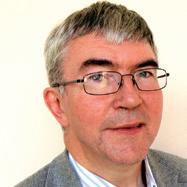
11 EDITORIAL
UP FRONT GERARD MOLONEY CSsR
A WAY FORWARD FOR THE IRISH CHURCH

Journeying, walking together, listening, navigating, discerning, synodality: these are all terms we are becoming familiar with as the Irish church embarks on a period of reflection and preparation for a National Synodal Assembly. The Irish church has changed beyond recognition since the last national synod in 1955. While few people have taken part in a formal synod before, many dioceses have engaged in a 'synodal' process through a variety of listening processes, consultations, assemblies, and pastoral plans in recent years. Much has been learned from these experiences that will inform the current journey.
The Synodal Pathway was announced by the Irish Catholic Bishops' Conference in March, with a view to holding a National Assembly within the next five years. The theme is 'For a synodal Church: communion, participation, and mission,' and the lead-up will be a period of "prayer, listening and discernment, involving a nationwide consultative conversation."

Fr Gerry O'Hanlon SJ says Pope Francis' emphasis on synodality is a 'quiet revolution.' "The purpose of the upcoming synod is to listen to the Holy Spirit, and to the voices of the faithful, and to try to find a way forward for the Irish church," he says. "It is the same Holy Spirit that guides bishops, theologians, and all the baptised. The model is the people
of God walking together, like the disciples on the road to Emmaus who were joined by the stranger, Jesus, on their journey."
While some may feel the Irish church is not ready for a synod, Fr O'Hanlon believes we must take a risk and do what Pope Francis is asking: "The bishops have outlined some of the reasons a synod is necessary, including the secularisation of society, the breakdown of trust in church authorities due to abuse scandals, the need for transparency, the call to connect with young people, and the need to honour the role of women and to listen to their deep concerns. They are conscious too of the reality of the many who have left the church."
12 REALITY JUNE 2021
There are limits to the synodal process. A synod does not, for example, have the authority to change church teaching on matters such as sexuality. Still, there ought to be space to discuss such topics, says Fr O'Hanlon. "One mistake would be for people to imagine a synod will change everything. But what could happen is if church teaching is honestly debated and discussed, this can be fed back to the bishops' conference and to the pope, and can build up momentum around certain issues."
There are also pitfalls to avoid as we begin the journey. "The loudest voices to the 'left' and 'right' in the church tend to dominate," he adds. "We need to create a space where
AS IT IS OVER 60 YEARS SINCE THE LAST NATIONAL SYNOD WAS HELD IN IRELAND, MANY IRISH CATHOLICS HAVE NO FORMAL EXPERIENCE OF SYNODS. HOWEVER, JUST FIVE YEARS AGO, THE DIOCESE OF LIMERICK HELD A SIMILAR PROCESS AT DIOCESAN LEVEL. AS WE BEGIN THE JOURNEY TOWARDS A NATIONAL SYNODAL ASSEMBLY, WHAT CAN WE LEARN FROM THE EXPERIENCE OF THOSE INVOLVED IN LIMERICK?
BY TRÍONA DOHERTY
people are heard and listened to, a space where people can speak with courage."
BEGINNING A JOURNEY TOGETHER
Bishop Brendan Leahy of Limerick has particular experience of synods. Shortly after he was appointed bishop in 2013 (the same year Francis became pope), he instigated a process of reflection culminating in a threeday synodal gathering in the spring of 2016.
It was the first such event in the Limerick diocese in over 70 years.
The aim was to set out a path to enable the diocese to meet the many challenges it faced and encourage a sense of renewal and partnership. "The synod was a way of
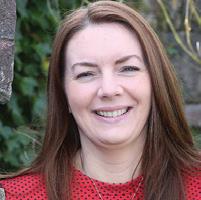

promoting what Pope Francis was talking about, and I wanted to say something about what direction I was taking as bishop," recalls Bishop Leahy. "There were many wonderful aspects to the life of the diocese, and many people involved, and this was a process of beginning together again in mission."
The experience was a time of learning and transformation. "The people who were involved had an experience of church, of a stirring of the Holy Spirit, as we gathered in mutual love. We discovered the importance of listening and speaking. This is synodal dynamics: to be open to giving and receiving truth from each other's life experience."
Five years later, Bishop Leahy feels it's an
13
opportune time to begin this journey at the national level. "It is a new moment with new challenges," he says. "We have the roots [of faith] in Ireland, and the leaves and foliage can shed and be reborn. We are beginning a journey together as people of God and people of the Gospel. It is about discerning what God wants the church to be. It is yet to be determined what shape the synod will take as it is a consultative approach, shaped together."
To this end, just before Easter, the Irish bishops issued their first invitation for submissions, asking people to reflect on their preferred method of engagement

with the synod process, be it focus groups, questionnaires, written submissions, family gatherings, etc. The closing date for this stage was May 23.

Over the next two years, says Bishop Leahy, many conversations will take place with a view to letting different topics surface. "A synod is not just an event; synodality is a process we are meant to be living all the time. A synod is something that unfolds over time, an event that speaks, that gives a message that the church is a people on the move." His advice would be to go forward with confidence. "We trust in the Lord leading the church. There may be moments of tension,
but Pope Francis invites us to speak with frankness. The ground rule is love prevails. We won't always get it right – but even if it goes wrong, it is the right direction. We have to trust that we continue in the guidance of the Holy Spirit."
THE SYNOD EXPERIENCE
Rose O'Connor is the pastoral implementation manager for the Limerick Diocese and was a delegate at the 2016 synod, which she describes as a "transformative" process. "We had an 18-month lead-in and we found ourselves transformed as we went along. The synod is the culmination, but the journey is what is important. There was a real sense of community and that it was an event of the Holy Spirit," she reflects.

A primary initial consideration was how to involve as many different people and groups as possible on a practical level. "The listening part of the process is very important. We had to think about how we reach people – of course, promote it through the parish structure, but how would we reach people on the fringes and hear voices that are not the usual ones? A lot of effort went into this and it worked well. It's important to get people from all walks of life."
Director of the Limerick Diocesan Synod, Fr Eamonn Fitzgibbon, explains that every means possible was employed to reach out to the people of the diocese. "Bishop Brendan wrote an excellent pastoral and then

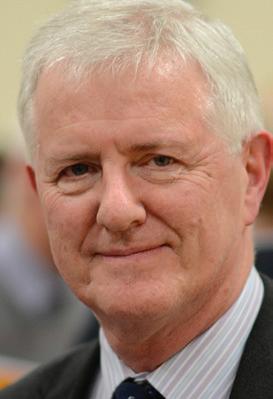

14 REALITY JUNE 2021 A SYNOD FOR IRELAND
We need to create a space where people are heard and listened to, a space where people can speak with courage.
Fr Gerry O'Hanlon SJ
Fr Eamonn Fitzgibbon
Image © Courtesy of The Irish Catholic
The Limerick Synod 2016
we engaged all forms of media, including a specially commissioned supplement in local newspapers, to reach those who are not engaged in church. We had billboards in the Gaelic Grounds' stadium, lay people speaking at Masses, radio interviews, all social media and mainstream media." Delegates were also recruited representing different groups such as immigrants, the Polish parish, the Travelling community, all levels of education, and ecclesial communities.
The horizons were deliberately kept wide open, as topics of conversation included architecture, sport, music, culture, business, civic engagement and the church's mission in the city. There was an ecumenical focus as well, with members of other faith communities involved at all stages. From the feedback received during this listening process, the themes that emerged were narrowed down to six. A total of 101 proposals were put forward for delegates to vote on during the three-day synod.
"We allowed them to emerge from the data," explains Rose. "We have to be open and allow the Holy Spirit to do his or her part. At the event itself, particularly on the voting day, there was palpable energy. People felt they were being heard and were making a difference."

The organisers of the event also held a session to give space to topics outside the remit of a synod. This allowed people to state their views on everything from women priests and church teaching on sexuality to the language of the liturgy, and a report was submitted to the Vatican from this session.
Nóirin Lynch, who was a pastoral worker in the Limerick diocese and a member of the advisory committee for the synod, recommends this approach to honour people's experience and concerns. "These are things a synod doesn't have the power to change, but the proposals were made and people were heard. There was frustration, but it is important to allow it to be said. We had a practice run of this day a month beforehand, and on the day people made really profound and moving statements."
CONTINUING THE JOURNEY
A synod can be described as a 'navigation map' for the church. It is not a one-off event but an ongoing process of working together to find a way forward. What happens before and after the synod is just as important as the main event. Those involved in the Limerick synod speak of it as something that is still unfolding as the fruits of the conversation are developed and put into practice.



"On the one hand there is the implicit change, that which is difficult to quantify, measure or even name," says Fr Fitzgibbon. "Change has happened by virtue of the journey itself, listening to people, engaging in catechesis, sharing a two-year journey, all of this creates a certain shift in the diocesan community. On the other hand, we now have a very clear diocesan Pastoral Plan which is measurable and can be easily assessed. This is an ongoing plan and much of it has already been actioned."
Rose O'Connor, who is in charge of overseeing the Pastoral Plan, outlines some developments that have got underway in the years following the 2016 event. "Some of the biggest changes are the new models of leadership: we have parish priests working together across clusters of parishes, and we are moving towards the appointment of lay people to liturgical and administrative roles. It's a slow shift as people are used to a certain parish structure." Twenty-four lay people
15
Fr Gerry O'Hanlon's book The Quiet Revolution of Pope Francis: A Synodal Catholic Church in Ireland? is available from www.messenger.ie
senseTherewasa Limerickthatthe Ittransformative.eventwas interestingwillbeveryona isnationallevel;there changepotentialforreal butitwill areonlycomeifpeople openandreadytolisten.
Rose O'Connor
from the diocese are currently undertaking a certificate in pastoral ministry. A working group was established to explore the role of women in church leadership. A report by this group was recently presented to the Bishops' Conference, where it has been well received, and the findings were presented and discussed at a webinar event on May 10. There has also been an increased emphasis on social justice, including wellattended book clubs exploring the writings of Pope Francis in Laudato Si' and Fratelli Tutti, and the introduction of the John Paul II Awards for young people.
"It's an exciting time," says Rose. "There was a sense that the Limerick event was transformative. It will be very interesting on a national level; there is potential for real change but it will only come if people are open and ready to listen. The church can adapt – it has shown over the last year that things can change."
LESSONS FROM LIMERICK
The experience of those involved in the Limerick synod will be invaluable as the Irish church sets out on the road towards a national synod. Indeed, the process has already begun and, according to Nóirin Lynch, this means we are, or ought to be, already in 'synod mode'. "Before any conversation about the synod, there has to be a real interrogation of what changes are being made with regard to synodality," she suggests. "What are we doing in terms of communication? If we're a synodal church, how contactable are we in the diocese or the Bishops' Conference, for example? How much do we respond?

"A synod is meant to include everyone – we are one body, and the body is not complete unless we bring all the parts. We should already be thinking about accessibility, of having the conversation open and accessible to people with disabilities, for example, or people who can't read or write. When we hold an event, are parking and childcare facilities available? These are justice issues."


Nóirin's advice to everyone is to 'step up' and be
part of the conversation. "As lay people, we need to say 'Whenever I'm asked, I'm going to put my voice forward.' Don't wait for the 'gatekeepers' or the right person to ask you. Take the opportunity to respond, even if it's to say, 'I've never been asked my opinion before.' If 30 women say 'I didn't think my voice mattered,' then that's something that needs to be heard."
Rose believes a "spirit of openness" is the most important thing we can bring to a synod. "My advice is to go into it with an open mind and open heart. Something Jessie Rogers [who facilitated sessions at the Limerick synod] said has stayed with me: 'Pay attention to what grates with you.' We all have biases, whether we are aware of them or not. Have the confidence and the courage to let things unfold."
There is a sense among the Limerick contingent that this synodal process could not be starting at a better time. As Ireland begins to emerge from the pandemic, we do not yet know what shape the post-Covid church will take. There has undoubtedly been an awakening of interest in spirituality as people engaged with different faith experiences online, but others have drifted away. All have wisdom and experiences to share. The conversations over the next few years will be pivotal in shaping the future of the Irish church.
"It must be acknowledged that the experience of Covid means we now have a very new and changed experience of church and society which must be included," says Fr Fitzgibbon. "The experience of Covid (and how we responded) needs to be reflected on. In this time and in light of this experience, where is the Spirit leading us now?"
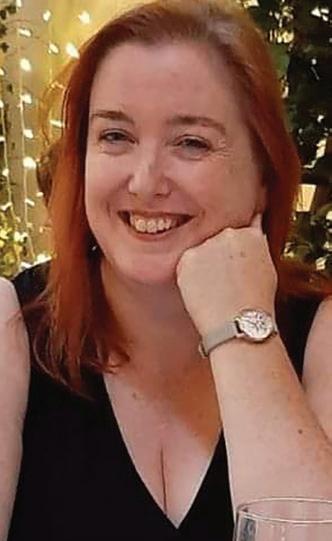
Of course, the Irish synod will benefit from the new technology and methods of communication that have emerged over the past year, such as online liturgies and conferences. There are opportunities for networking and accessing different experiences of church around the world. "People are more open to trying new ways of doing things," says Rose. "Often, there are more people participating online than were coming to church before. There has been a good shake-up due to the global situation. This will impact on the national synod and offer more possibilities to draw people in."
For more information on how to become involved, and to follow the synodal journey, visit www.catholicbishops.ie/synod.
16 REALITY JUNE 2021 A SYNOD FOR IRELAND
Tríona Doherty is a freelance journalist and editor who lives in Athlone. She is a regular contributor to Reality.
A synod is meant to include everyone – we are one body, and the body is not complete unless we bring all the parts.
Nóirin Lynch
Spring sprung early around these parts, as has become the way over the past years. Birdsong, butterflies and even bumblebees arrived early, taking me by surprise. There was a colourful palette of flora and fauna on the walks I took up into the Belfast hills and out-of-theway mountain pastures. It was beautiful to feel part of God's glory writ large in creation. In my small back garden, spring also arrived early. As I sat to write in the mornings before my family woke up, I was accompanied by a great choir of birds whose tune floated on the breeze through the open kitchen door during those first few months of the year. With all that was going on in the world around me, the wonder of creation was a comfort – and early spring felt like a gift from God who knew that I was – we were – weary of difficulties, lockdowns and doom-filled news programmes.
The centrepiece of my garden is a plum tree. I have written about it before in this column. It never fails to draw me in and often teaches me lessons I commit to paper or laptop keyboard. This year has been no different.

And no different, also, was the coming early of spring to my precious tree. After a series of windy days took care of any dead leaves I had neglected to remove, the bare and gangly branches began to sprout tiny, green leaves. Initially, light green in colour, they settled into a bright, luscious green as they grew. Soon after this, small
buds began to appear on the tree. And it lay like this for a few weeks – lovely, pregnant with the promise of flowers to come. And then it happened, as it often does. Overnight the tree exploded into life, with delicate white flowers blooming all over it. It was such a joy to behold. The flowers brought bees and birds into the garden, and all was well. Given the dry weather we had in April this year, and the fact that I am still mainly working from home, I spent a lot of time looking at the beautiful tree in full, flowery bloom.
One Saturday morning, I got up, poured myself a cup of coffee, got my pen and some paper, and went out to write in the garden in the presence of the flowerladen plum tree. Coffee – check. Pen – check. Paper – check. Tree – check. Flowers – no flowers. Overnight the flowers came, and overnight they went. I have to admit, I was a bit sad sitting there that morning. Over the next few days, I would look out at the tree and sigh. Eventually, I got used to it having no flowers.
The absence of the good things we come to enjoy or of the people we have come to love can be so sad for us all. This pandemic has brought these type of absence experiences to bear on us in all sorts of ways. We miss the good, old ways. We miss the good things we were able to do; we grieve their loss. Many grieve lost loved ones, lost to this terrible illness and the associated problems it causes to society. It has been a time of loss.
We can become convinced that loss is the only story or the whole story, so powerful is its impact on us. We have just come through the season of Easter and on to Pentecost. Reflecting on the event that we Christians hold dear tells me that loss and even death are not the whole story. There is a new story to be told, and it is the old story at the same time. Loss and even death are only transitory. They come and they go. New life, new love, new possibilities, eternal life, these are the real story. These are the whole story.
Let us stand in solidarity with each other as we tentatively allow ourselves to dream of a time when this pandemic will be behind us, and we can live our lives to the full once more. So many of us have been wounded in some way these past 18 months. Let us reach out and support those in need now and those who will continue to be in need in the months and years to come. Let us do this with hope in our hearts, the hope of the Risen One who brought healing and love to bear even in the most dire situations. This too shall pass. And when it does, what sort of people do we want to be? Can we be people of love, peace and compassion for ourselves and others? We have been before, we have done our best to be so during this pandemic, and we will be again.

I went into the garden after it rained a few mornings ago. I was struck by how deep in
colour and big in size the leaves on my plum tree had become. I realised that I hadn't looked at it much since the flowers died, so I went over to it and stood in amongst its canopy. The familiar smell of earth, branch and leaf filled my nostrils and lifted my heart. I had missed out on so much by focussing only on my loss. As I looked closer at where the flowers had once sat on the branches, I saw that they had been replaced with what looked like tiny, green berries. They were, of course, the promise of fruit to come; baby plums growing out of the demise of the flowers. It seems that all of creation tells us of the truth of our Christian story and our spiritual journey –death and loss are never the end. New life will win out.
17 COMMENT
WITH EYES WIDE OPEN JIM DEEDS CHANGE IS COMING
COVID-19 HAS TAKEN A TERRIBLE TOLL ON US ALL, BUT EASTER AND PENTECOST REMIND US THAT LOSS AND EVEN DEATH ARE NOT THE WHOLE STORY.
Belfast man Jim Deeds is a poet, author, pastoral worker and retreat-giver working across Ireland.
SYNOD OF THE IRISH CHURCH HOPE
WHAT HAS BEEN THE RESPONSE TO NEWS OF A SYNOD OF THE IRISH CHURCH?
IS IT A GOOD IDEA? WHAT ISSUES SHOULD IT CONSIDER? WHAT OUTCOMES SHOULD IT REACH? WE ASKED TEN CATHOLICS FROM THROUGHOUT THE COUNTRY TO TELL US WHAT THEY THINK.
THE PROPOSAL TO HOLD A NATIONAL SYNOD OF THE CATHOLIC CHURCH IS WELCOME, AS IS THE INVITATION FROM THE EDITOR TO CONTRIBUTE TO THE PROCESS. THIS REFLECTION IS IN THREE PARTS DEALING WITH WHAT THE SYNOD SHOULD AVOID, WHAT IT SHOULD ADDRESS, AND WHAT IT SHOULD AFFIRM.


 BY KEVIN WILLIAMS
BY KEVIN WILLIAMS
WHAT TO AVOID
There is no need to labour the sins of the past that involved church institutions. These have been rehearsed many times and, in any case, did not involve those who are currently in active ministry.
Statements from the synod should avoid moralising about the iniquities of modern life. Claims that we are living in an acquisitive culture where individuals are concerned only with material gain are tiresome and predictable. After all, Jesus was trenchant in his criticism of such people some 2,000 years ago. Human beings have been the same since the dawn of time, and there never was an era in Ireland where people were less kind or more generous than they are today.
The tremendous work done by church agencies in the developing world shows that the 'imagined community' in Christian thought extends beyond religious and national boundaries. Yet in recent years, some Catholic thinking has suffered what might be called teleological drift, that is, a movement away from its primary purpose and a serious attenuation of this purpose in the interests of aspirational aims relating to 'social justice'. It is easy to be generous with other people's money. Moreover, the perceived reluctance of some church bodies to compensate the victims of mother and baby homes undermines the credibility of the church's advocacy on behalf of the disadvantaged. So too does the role of
church-sponsored fee-charging schools that serve to perpetuate social elitism.
WHAT TO ADDRESS
The synod should concentrate on matters on which the church has competence. The maintenance of separate Catholic schools in Northern Ireland should be critically addressed. Their existence is based on understandable fears of political and cultural domination by Unionism, and no one claims that Catholic schools contribute to sectarian conflict. Yet, the segregated school system reflects the structure of division in this part of the country. It is one thing to preach in favour of reconciliation but another to do something about it. Embracing integrated
18 REALITY JUNE 2021 A SYNOD FOR IRELAND
OR FOLLY?
There is no need to rehearse for readers of Reality the tenuous basis for celibacy. Its melancholy consequence is to deprive the Christian community of the ministry of these men.
This leads to the matter of the ordination of women priests. There is no theological stumbling block to the ordination of women, and their exclusion from full ministry is a matter of tradition. After all, both women and men stand with people in their times of pain and desolation, just as Sr Helen Prejean exercises her inspiring spiritual accompaniment of those condemned to death. She is indeed a 'mender of destinies' (raccommmodeur des destinées ), a phrase used by Gerorges Simenon to describe the role of the priest. Twee statements about the equality of the sexes have little credibility given their exclusion from exercising full ministry. Indeed, it would be more honest to state that the role of women is secondary, ancillary, or subsidiary in the church.
outreach to the gay community, which, sadly, was negated by the recent Vatican statement on the matter. In a world where religious practice is declining, the exclusion of individuals who wish to participate in the life of the church is self-defeating. The proposed synod provides an opportunity for the church to practise the inclusiveness that it espouses in theory and to show that it really does have room for everyone.
WHAT TO AFFIRM
education would be a dramatic practical expression of Christian outreach.

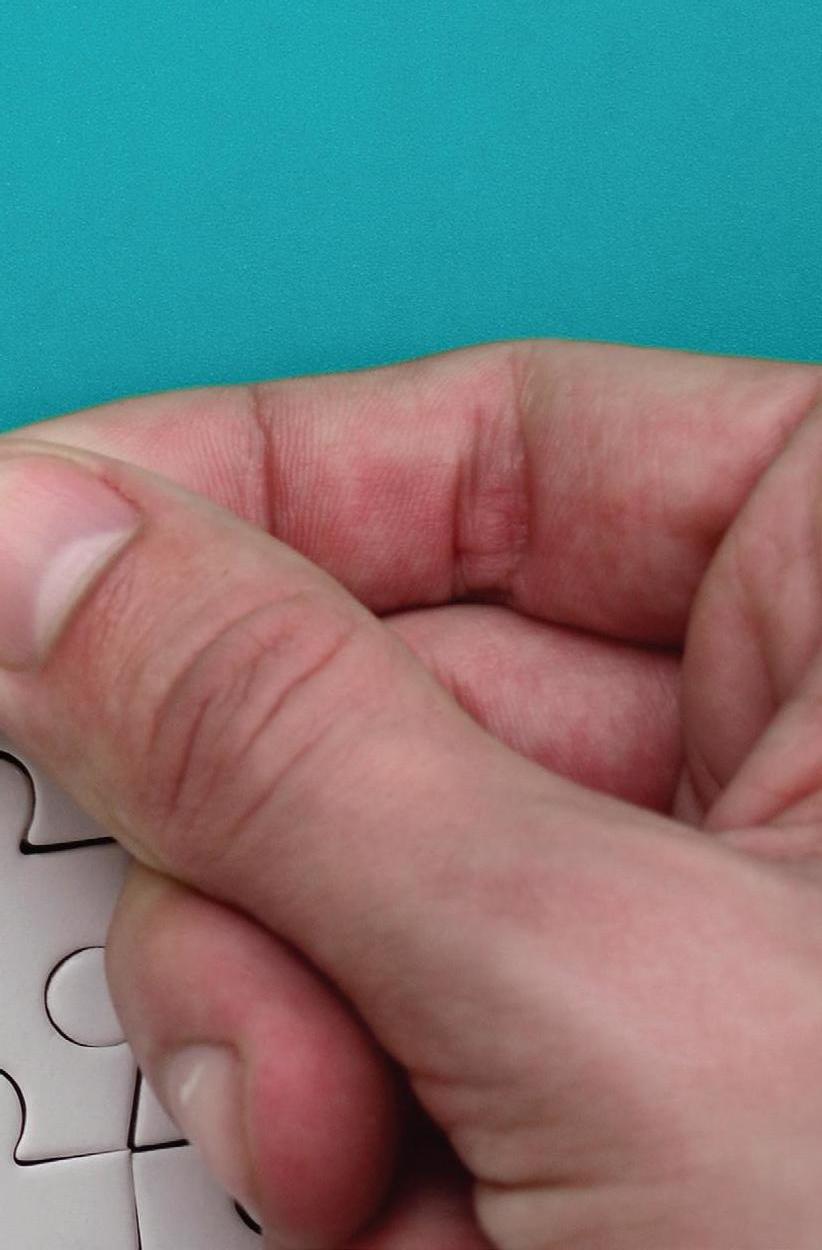
Another major issue concerns the status of compulsory celibacy. The prohibition on a married priesthood means that many fine men have had to abandon ministry because they fell in love and got married. I have had the privilege of advising some priests – I dislike the term 'former priest' – on future career paths. These sad encounters made a deep impression on me. But, some may say, cannot the individuals continue to do good as lay people? They can, of course, but the unique role of a priest as an intermediary between humankind and God will be missing. Priests have been close to people in the most important moments of their lives. This experience gives many of them an insight into the pain that humans suffer as well as into their courage, fortitude, endurance, and willingness to forgive.
Many priests now have families who contribute to the life of the church. In years to come, the exclusion of these men from ministry may well be considered the greatest unforced own goal in the church's history.
This takes me to two other issues in urgent need of a creative solution. The first is the admission to the Eucharist of divorced Catholics. The second is the blessing of gay relationships. Both can be addressed without changing church teaching in the areas. The ideal can continue to be upheld regarding Christian marriage, but discretion can be allowed to individuals and to local clergy. It is misleading and disingenuous to describe the church as inclusive if it excludes these Catholics from the practice of their faith.
This is also true in respect of politicians and other Catholics who vote for abortion. A married couple that I know, one of whom had previously been married, met the local parish priest socially and expressed their regret at being excluded from full participation in the church's sacramental life. In reply, he simply said that the church was a large place with room for everyone.
The same argument applies in the case of gay couples. The church doesn't have to permit them to get married, but it can allow local clergy to bless their unions and welcome them as a part of the church. This is very much in the spirit of Pope Francis' personal
It is important not to be merely critical, and the church's role as a spiritual force in the world must also be affirmed. The synod should non-defensively affirm the central role that the church has in the lives of so many. Furthermore, one consequence of the COVID-19 lockdowns has been to show how people value the opportunity to join liturgies in person and to participate in the Eucharist and the other sacraments. The importance of the church's mission cannot be overstated. In times of great tragedy, such as in murder-suicides, the presence of priests in offering support is notable. It is also the painful duty of college chaplains to minister to the parents and siblings of students who have taken their own lives. Their ministry to bereaved students is captured in these words where a chaplain talks about a role that takes him literally 'to the edge of the grave' in support of students.
"We have a unique role in dealing with bereavement and suicide. Because of our calling we walk that extra mile . . . we go to the edge of the grave . . . we stand at the foot of the cross with them."1
Inspiration from the life of Our Lord enables women and men to walk that extra mile in supporting others. They represent a vision of church that enriches the lives of all.
19
1 Quotation from research by Fr Pat O'Donnell on the chaplain's role in the Institutes of Technology.
Dr Kevin Williams is Senior Research Fellow at the Centre for Evaluation, Quality and Inspection, Institute of Education, DCU.
AN ENVIRONMENTAL BLUEPRINT FOR THE SYNOD
Iwelcome the call for a long-overdue synod of the Irish church and hope that all people will be included in a meaningful way. The participation of all people in the synodal process cannot, under any circumstance, be tokenistic. The process must reach out to groups across this island – who have walked away, who are fed up and weary, who want change, who don't want change, those who are hurt, on the margins and feel left out. This will be a real challenge. The synod must be a genuine encounter with the hard questions, with robust debate and honest dialogue. This will require courage. Ultimately, it must put the radical message of Jesus Christ back in focus.
GOVERNANCE
There are so many issues that need addressing in the Irish church (and global church), and underpinning all of them is governance. At present, the non-ordained participate in decision-making processes in the church purely on a consultative basis and often as a gesture of goodwill by a local priest or bishop. All the baptised should have decision-making
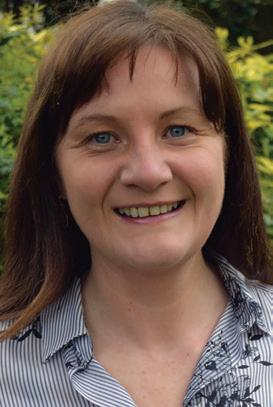

powers at every level of church life. It means a redistribution of power, which involves a letting go of power. If laypeople are to have a genuine voice at the table, an equal seat at the table, a vote at the table, then the issue of governance across church structures needs to be addressed.

As noted at the Second Vatican Council: "the church has always had the duty of scrutinising the signs of the times and of interpreting them in the light of the Gospel" ( Gaudium et Spes 4). The signs of our times include the mass exodus of young people and middle-aged people from church communities, especially women. They include a devastating climate and biodiversity crisis and a reminder of the fact that we are currently living through the sixth mass extinction of life on this planet; a realisation that the church's stance on issues like LGBTQI+ rights, gender equality and governance, to name a few, are viewed as outdated and unacceptable. Many challenges indeed, but I strongly feel that this synod must listen to the call of Laudato Si', Pope Francis' encyclical on Care for Our Common
Home, to embrace an integral ecology as a roadmap for going forward.
As Laudato Si' tells us: "It cannot be emphasised enough how everything is interconnected. Time and space are not independent of one another, and not even atoms or subatomic particles can be considered in isolation. Just as the different aspects of the planet – physical, chemical and biological – are interrelated, so too living species are part of a network which we will never fully explore and understand" (LS 138).
INTERCONNECTEDNESS OF ALL THINGS
COVID-19 has emphasised this in a most terrifying way. The synod could embrace the concept of an integral ecology, as outlined in Laudato Si', not just in terms of content but also in providing a framework for the process. Integral ecology acknowledges the deep interconnectedness of all things, the environment, yes, but also economics, social justice, the protection of all life, culture, daily activity, health, spirituality, liturgy, theology, politics, and ultimately human beings' relationship with this earth, our common home. To talk about an integral ecology is to emphasise the interconnectedness of all human persons to one another and to reflect on our place within the cosmic web of God's creation.
In Laudato Si', Pope Francis calls each of us to an "ecological conversion" where we listen to the cry of the earth and the cry of the poor (LS 49). It is through this conversion that "the effects of [our] encounter with Jesus Christ become evident in [our] relationship with the world around us" (LS 217). This should be a central part of the church's mission today. "Living our vocation to be protectors of God's handiwork is essential to a life of virtue; it is not an optional or a secondary aspect of our Christian experience" (LS 217).
Because everything is interconnected, embracing an integral ecology for this synodal process must mean more than hosting a workshop on the topic as a side event. It could be the umbrella under which all other issues are discussed. To give one example, the question of young people will no doubt come up again and again. This generation of
20 REALITY JUNE 2021 A SYNOD FOR IRELAND
THE SYNOD MUST EMBRACE AN INTEGRAL ECOLOGY AS A ROADMAP FOR GOING FORWARD.
BY JANE MELLETT
At present, the non-ordained participate in decision-making processes in the church purely on a consultative basis and often as a gesture of goodwill by a local priest or bishop.
Jane Mellett
young people is deeply concerned about the worsening climate and biodiversity crisis to the point where they are politically engaged. Pope Francis is clear in Laudato Si' that the roots of this ecological crisis are deeply spiritual, and that faith communities have a vital role in encouraging all people to live as guardians of God's creation. Laudato Si' asks us, "What kind of world do we want to leave to generations who are coming after us, to children who are now growing up?" (LS 160). This same question is being asked of us now by young people in Ireland and worldwide. In Laudato Si', we have a spirituality that can speak to this crisis and a blueprint for a way forward, for a more sustainable world. Yet to date, it seems that this deep, nourishing spirituality, youth ministry, and the youth climate movement shall never meet.
If the synod can engage with integral ecology in a meaningful way, it could be the process through which renewal in the church can flourish. Discussions on defending the life of the unborn, reaching out to marginalised communities, addressing questions around liturgy and sacramental preparation are all pointless if the planet we are living on becomes uninhabitable in the coming decades.

NEED FOR DISCERNMENT
Our current COVID-19 crisis has changed everything. It has lifted the veil on so many harsh realities in our world and accelerated the collapse of many structures in society, including church structures. But it is also a Kairos moment, offering us an opportunity to reflect on how to build more sustainable communities and spaces where people can be deeply nourished in their faith lives. For any of this to happen, discernment will be key, which seems like an obvious point, but some people are not comfortable with discernment. Genuine discernment can be messy, and that's okay. I hope the synod offers everyone the opportunity to grapple with the tough issues, to engage in active listening, deep prayer, and to allow space for the Holy Spirit to get a word in. I hope it is not simply a listening exercise where a nice report is
written and then filed away. It cannot be just that. But the question remains: what will happen as a result of this process? Can the institution really hear what the people of God are saying? Too many crises need urgent attention. Laudato Si' offers us a blueprint for moving forward.
Jane Mellett is a native of Carlow and has worked in pastoral ministry for many years.
TOWARDS A LISTENING CHURCH
Dublin's inner city.
Each week we listen to rich conversations guided by a sensitive and thoughtful listener who displays kindness and a genuine curiosity to learn, asking the questions many of us have. There is much we can learn from Tommy's ability to see and draw out the innate value in another person. It's a skill we need to take on board as we journey towards a synod of the Irish church.
A CHURCH THAT DOES NOT LISTEN CANNOT BE CREDIBLE
BY HELENA CONNOLLY
I'vealways been a fan of the comedian Tommy Tiernan. During these months of lockdown, the Tommy Tiernan Show on RTÉ each Saturday evening has been a highlight for many of us. It shows a different side to the usually wild and raucous comedian. Much of the show's appeal is due to his interview style. He listens intently to each guest, not hurrying their answers and allowing space for silence so that deeper truths slowly emerge. Those who sit opposite him – actors, activists, authors, artists, film directors, athletes –share their stories of love and loss quietly and reflectively. Some memorable interviews include a polyamorous singer and writer, a gay HIV activist who works with the LGBT community, and an altruistic gestational surrogate who carried her best friend's baby because she had suffered a series of miscarriages while desperately wanting to be a mother. Fr Peter McVerry SJ, a man committed to living the Gospel, spoke about his life dedicated to helping the homeless in
As the Irish church begins the synodal process, I'm reminded of the words of Pope Francis: ˝Listening is much more than simply hearing. Hearing is about receiving information, while listening is about communication, and calls for closeness. Listening allows us to get things right, and not simply to be passive onlookers, users or consumers. Listening also means being able to share questions and doubts, to journey side by side, to banish all claims to absolute power and to put our abilities and gifts at the service of the common good." (Message for World Day of Social Communications, 2016)
Listening is essential. In order to journey together on this synodal path, we must first come together, virtually on Zoom or face to face when restrictions ease. All of us, ordained and lay, are learners and teachers. Without quality listening, the synodal church will lack an essential compass. The voices of young people and the marginalised must be heard. The voices of those who feel betrayed and hurt both within and outside the church need to be amplified so that we can envisage a more welcoming and inclusive church.
Building vibrant faith communities locally and nationally is what I hope this synod will encourage. The starting point must be the common baptism that every church member shares – not a clerical or a top-down approach but true collaboration in which all the baptised are responsible for the church's life. This mutual responsibility between ordained and nonordained should open a debate about power structures, ultimately enabling lay men and women to take the lead. A new style of shared leadership can help the church regain its ability
21
I WANT THE SYNOD TO RECOGNISE THE CHALLENGING TRUTH THAT THE ORDAINED PRIESTHOOD AND THE COMMON PRIESTHOOD OF THE FAITHFUL ARE BOTH ROOTED IN THE ONE PRIESTHOOD OF CHRIST.
truth that the ordained priesthood and the common priesthood of the faithful are both rooted in the one priesthood of Christ—in other words, that we move away from the idea that all power flows from ordination and develop a deeper understanding of the priesthood of all the baptised. We need an updated theology of priesthood. This ties in with the recent Vatican press conference (April 12, 2021) outlining plans for a symposium next year entitled 'For a Fundamental Theology of Priesthood.' At the press conference, Cardinal Marc Ouellet said, "One of the aims of the Symposium is to reflect on the relationship between ministerial priesthood and common priesthood... The theology of the sacraments and the liturgy is an area that must be re-proposed together with the theology of the priesthood."
This raises questions for the Irish church, such as: are we still primarily a church of the sacraments? How will the sacraments be celebrated in an era of rapidly-declining vocations to the priesthood and religious life? It will be interesting to follow the progress of the Vatican symposium alongside the synodal path the Irish church is undertaking.
GERMAN EXAMPLE
The German church began a synodal path

A TIMELY PROPOSAL
in the Catholic Church, 2) priestly life, 3) sexual morality, 4) the role of women in the church. I'm thrilled that the role of women is a key central component. I hope the Irish synod will do the same.
I would like to see a sense of togetherness as people of God as we journey along the synod path – listening attentively, seeking mercy and healing, building mutuality and trust. It takes time to be a synodal church, to absorb and respond to the findings of the process. During the early stages of the first African Synod 'Ecclesia in Africa', an ancient African proverb was quoted comparing the synodal path to eating hot soup: A kii kan 'Ju l'abe gb'ona (a hot soup is not spooned up in a hurry). Hot soup is to be savoured and relished allowing the partaker to be nourished and energised. The need to savour is why synodality is not simply a structure or an event but a way of being transformed together as church. I hope that the grace of journeying together on a synodal path will bring about meaningful engagement and authentic consensus, allowing us to grow in faithfulness together.
BY EIBHLIN
Whenasked if a national synod of the Catholic Church in Ireland was a good idea, my immediate response was yes. Why hadn't there been one before now? Should a synod not be a regular event in the church's life?
In Ireland, the Catholic Church faces challenges on many fronts that need broad discussion, with solutions offered and actions taken and progressed.
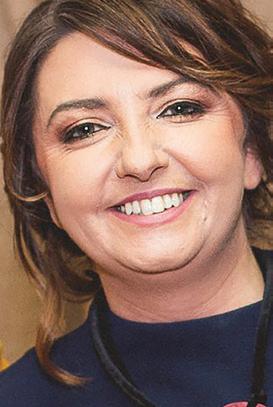

Chapter 3 of the book of Ecclesiasticus tells us that there is a time for everything under the sun. It's certainly time for a national synod of the Irish church.
This synod is timely not only because of the pandemic but also because of the decline in the number of Catholics and vocations in Ireland over the last 30 years. Growing up in Belfast in the 1970s, I remember Pope John Paul II's historic visit to Ireland in 1979. I remember the strong sense of faith that it engendered in myself, my family and my community. Sadly, since then, I have witnessed the continuous downwards spiral of the Catholic Church, with startling stories of sexual abuse and other scandals. We have only to reflect on the visit of Pope Francis in 2019 when some 135,000 people attended his Mass in Phoenix Park, a massive fall from almost a million back in 1979.
In 2011, the Irish census recorded 84.2 per cent of people identifying as Catholic (45 per cent in Northern Ireland). This had fallen to 78.3 per cent in April 2016. In that short period, those recorded as having no religion in 2016 increased by 74 per cent to some 10 per cent of the population, becoming the second largest group in that category.
We know that the age profile of priests and
22 REALITY JUNE 2021
A native of County Fermanagh, Helena Connolly is a member of the Redemptorist parish mission team and author of Prayerful Ireland (Messenger Publications).
I WOULD LIKE THE SYNOD TO BE THE START OF AN ONGOING PROCESS IN THE CHURCH OF ENGAGING WITH AND LISTENING TO PEOPLE.
TINNENY
Synodality is not simply a structure or an event but a way of being transformed together as church.
Helena Connolly
regular churchgoers is alarming. We are left with the stark question: What kind of church will exist in this country in 10 years? Who will be around to celebrate the sacraments and to fill the pews?
SECULAR COUNTRY
Ireland has rapidly become secular, with such terms as "post-Catholic Ireland" and "secularised Ireland" used to describe the country today. An article in The Tablet in August 2020, entitled 'Irish church in "vocations crisis'" told how Fr Paddy Byrne, parish priest of the parishes of Abbeyleix and Ballyroan in the Diocese of Kildare and Leighlin, had been asked to take responsibility for a third parish. In the not-sorecent past, seven priests had served these three parishes.
A visit to St Charles Oratory, Kelvinside Gardens in Glasgow in 2017 opened my eyes to the reality of the priest shortage. When I went to Mass, I discovered that the liturgy was being led entirely by laypeople, with less than 12 of us in the vast, spectacular church. The liturgy was a good spiritual experience, but it saddened me to see so few people in the congregation. I felt thankful that I didn't have to face this reality back home in Belfast – at least not yet.
So, what should the synod examine and plan to fix? I could spend all day listing the issues that I think should be addressed, but the most urgent is the need for everyone's voice to be heard. It is often those who shout the loudest that are heard. The synod must not make this mistake.
Synod organisers need to find out how people view the church today and what they seek from it. They need to find out why young people are no longer interested in attending church or entering religious life. They must use all available communications tools to reach out to as many people as possible.
Issues I want addressed centre around trust, integrity, empathy, connecting with all the faithful, especially the young, people in need, the marginalised, those who have been abused, as well as sexual morality, addiction, suicide, ecumenism, the environment.
FALLOUT FROM THE PANDEMIC
The impact of COVID-19 will also give rise to other areas of concern, such as grief and loss, loneliness, mental health, stress, anxiety, unemployment. Jobs and incomes have been badly hit, and there is a lot of insecurity around employment. In a recent TV interview, Fr Peter McVerry pointed out that it has taken a pandemic to reduce the number of homeless people to the lowest figures in years.
I would like the synodal pathway to be just the start of an ongoing process in the church of engaging with and listening to people. The synod must not be a one-off event or a tickbox exercise. Structures must be put in place to ensure continued dialogue, reflection and action.

A CHURCH THAT DOESN'T LISTEN DIES
THE SYNOD MUST FACILITATE OPEN AND HONEST OPINION FROM ALL SECTIONS OF SOCIETY.
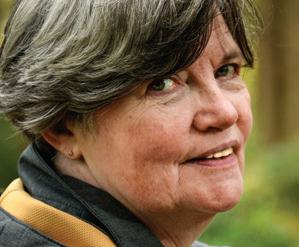
 BY TOMMY MORRIS
BY TOMMY MORRIS
Ihad a typical Irish Catholic childhood. Family life was based on a routine of monthly confession, weekly communion, and prayer at the start of each day in the local Catholic school. I was sheltered or wrapped in a church system of it's 'our way or no way'. Our parish of Ballyfermot was one of the largest in Europe and, at the time, was the focus of an academic study by Trinity College and facilitated by Dublin Corporation. Street committees, area councils, and a wellorganised and funded residents' association gave local people a voice and a vote on some major issues. The Church of the Assumption and its nine priests had to up their pastoral game to be relevant – and they did. Many organisations and church-led projects catered to young and old, while four of the big religious orders established ministries in the parish. By the 1970s, it was thriving, with seven Sunday Masses and two daily Masses, always in a packed church. It grew so large that it was decided to divide the parish in two to meet the growing pastoral needs. Priests like Frs John Wall, Peter Lemass and Jim Caffrey created a sense of a dynamic community of faith. But I always felt they were forced to seek a balance between traditional conservative orthodoxy and the Gospel message that "all God's children are welcome." Without those priests, I would have no religious faith today.
But by the 1990s, church authorities began to detect a decline in church attendance in Ballyfermot and nationally. The 2016 Irish census shows that 78 per cent of people in the Republic identified as Roman Catholic – a substantial drop from 85 per cent in 2011. All the indications are that this trend is accelerating.
23
Eibhlin Tinneny is married with three adult children and lives in Belfast. She is a former teacher and retired education adviser.
Synod organisers need to find out how people view the church today and what they seek from it. They need to find out why young people are no longer interested in attending church or entering religious life.
Eibhlin Tinneny
The revelations of clerical sexual abuse and their cover-up help explain the collapse in church attendance. But, in my view, the real underlining factors have more to do with the church's culture of clericalism, misogyny and mandatory celibacy. The institutional church is misogynistic to the core – the core being Rome. As a divorced Catholic and former parish council member, Minister of the Eucharist, church folk group leader and parish activist, I have witnessed first-hand the frustrations that many priest friends suffer when conservative Catholicism excludes good people simply because of their life circumstances.


The bishops promise that the synod will bring "all sections of the Irish church together." Will this include divorced people who have remarried? Will gay married couples be allowed to participate? Will priests who wish to have their own family be allowed to express their views? Will the ban on women's ordination be acknowledged by the bishops of 'our' Irish church as unjust? Will the blind eye that is turned to artificial contraception continue? Will the power of the parish priest to veto decisions of his parish council be abolished?

We need to remember that many of these individuals and groups who find themselves on the church's periphery still have faith in the Eucharist, the sacraments and the promise of an afterlife with the Almighty. Is the synod simply for the saved, the good Catholics? Or will all God's children have a place in the choir, as the song goes?
GOD’S LIVING WORD
I have had the pleasure of attending and leading some World Youth Day pilgrimages. I witnessed the power of prayer, music, friendship and faith in action. It was wonderful to see young people from every culture, sexual orientation, and socioeconomic background being able to talk, debate, and even disagree before sharing a pizza. Why do church leaders not trust that the Holy Spirit works with all people of faith, not just the ordained? Why is it that we have to make our way in a maze of complicated canon law? For me, it's very simple: God sent his Son Jesus to teach, lead, and give us his Eucharist. Will the synod tolerate open and honest opinion from all sections of Irish society? Or will its organisers be hampered by fear?
I once heard Cork politician Peter Barry tell a large college group that "any organisation that is not changing is dying." The Bible is God's living word, not just for the first century but for the 21st century. It posits two major questions I try to answer: 1. How do I live? 2. How do I treat my neighbour? The proposal to host a synod within five years is adventurous and ambitious. But it will not succeed unless authentic questions are facilitated and heard. People will not tolerate attempts to control or manipulate. Jesus didn't say that he is the Bread of Life for the chosen few. Unless all people feel valued and listened to, they will continue to walk away from the church, hungry and thirsty.
GROUNDS FOR OPTIMISM
BY NESSAN VAUGHAN
TheIrish bishops' recent announcement of their intention to hold a national synod was well received in many quarters, including by myself. It had been 'flagged' by Bishops Paul Dempsey and Fintan Monahan at a recent webinar organised by the Association of Catholic Priests (ACP). Their attendance at the webinar gave some hope for change.


The proposed synod comes at a time when the church is encountering deep hostility by the media, alienation by many former practising Catholics and, in this writer's view, apathy, particularly among the young. Much, if not all of this, is to be expected after the revelations of sexual abuse by clergy and religious, cover-ups of the same by church authorities, and the continued exclusion of women from full participation in the church's life.
Fr Gerry O'Hanlon SJ, has been a prominent advocate of a synodal approach – a 'journeying together' – leading to church renewal. In some shape or another, many of us who are involved in advocating for reform, renewal and relaunch of the church have taken heart from the pontificate of Pope Francis through his example and lifestyle, his encyclicals, exhortations, writings and speeches.
Calling a national synod is very much in line with what Francis has encouraged us to do. He has repeatedly advised that local churches not look to Rome for all the answers. His approach, which is very much in keeping with the wisdom of the Second Vatican Council, is one of devolving pastoral approaches to concrete situations to the local churches; one might say a nod to subsidiarity!
24 REALITY JUNE 2021 A SYNOD FOR IRELAND
DESPITE SOME RESERVATIONS, I AM HOPEFUL THE SYNOD WILL ASSIST IN RENEWING, REFORMING AND REDISCOVERING THE TRUE CHURCH.
The institutional church is misogynistic to the core.
Tommy Morris
Nessan Vaughan
Originally from Ballyfermot, Dublin,Tommy Morris lives in Rathanagan, County Kildare. He is a teacher in adult education at Inchicore College Dublin and is married to Úna.
By way of being helpful, the Irish bishops have produced a 'Q & A' document concerning the synod. I noted these cautionary words, lest we lose the run of ourselves: "Pope Francis has been clear that synods are not instruments to change church teaching but rather help to apply church teaching more pastorally."
In my opinion, how the synod handles or allows discussion on areas of teaching which many find alienating and offensive will be critical to its success.
While the synod may not change teaching for now, it is imperative that the voices of people who experience hurt and rejection as a result of church teaching and practice are heard and documented. And then sent to Rome.
CHANGE CAN HAPPEN
Can church teaching change? Professor Fr Charles Curran (Irish Times, 2005) reminded us that the church did not condemn slavery for 1,800 years. We also know that usury (interest on loans) was condemned, as was the separation of church and state. Pope Gregory XVI in 1832 condemned freedom of conscience as an "absurd and erroneous teaching or rather madness." We know that the Second Vatican Council took a more nuanced approach. More recently, Pope Francis himself changed teaching on the death penalty.
I'm aware that it might be pointed out that there is a significant difference between 'natural law' – core tenets of the faith – and teachings based on discipline. However, a pastoral approach to applying teachings will reveal the lived experiences of Catholics who are alienated and excluded as a result of certain teachings.
Teachings can change based on ongoing science, scholarly exegesis, reflection, and discernment based on reading the signs of the times.
Despite some reservations, I remain hopeful that the synod – if the Spirit is allowed enter the hearts and minds of all – will assist in renewing, reforming and rediscovering the true church.
I hope for:
- A church that rediscovers the subversive memory of Christ;

- A radical church (returned to her roots) that advocates for social justice in Ireland. ("All the believers were one in heart and mind. No one claimed that any of their possessions was their own, but they shared everything they had." Acts 4:32);
- A new vision and model of church that cherishes the equality of all the baptised. ("There is neither Jew or Greek, slave nor free, male nor female, for you are all one in Christ Jesus." Galatians 3:28);
- A church that demonstrates a preferential option for the poor, with orthopraxis (doing the right thing) being accorded priority rather than orthodoxy;

- A church that welcomes all, especially the outcasts and those whom society and church currently exclude.
I am reminded of the patristic maxim:
In necessariis unitas, in dubiis libertas, in omnibus caritas.
A LONG OVERDUE DEVELOPMENT
ANY NATIONAL SYNODAL ASSEMBLY MUST BE OPEN TO ALL GOD'S PEOPLE AND ALLOW FOR THE WORKING OF THE HOLY SPIRIT.
BY URSULA HALLIGAN AND COLM HOLMES
(Luke 5:4)
We Are Church Ireland supports a National Synodal Assembly for Ireland. We believe such an assembly is long overdue and urgently required to discuss much-needed reforms that will truly represent the beliefs and hopes of Catholic women and men.
We look forward to "walking together on
the way" and "helping each other listen to what the Holy Spirit is saying," as the bishops have invited all of us to do. We are happy to see the intention to include those on the peripheries and ecumenical observers in the process.
We agree with Bishop Dermot Farrell, who early in 2020 said the Irish church "needs a bold creative response rather than a fleeing from the reality of the distressful present. Our Lord is the Lord of risk. Bold decisions must be taken today, even if it is painful to do so, and we risk making the wrong decision. Otherwise we die of irrelevancy."
If it is to be genuinely 'synodal', the synod must include and represent all the people of God during every stage of the preparatory process and especially when deciding who will be present at the assembly. Priority must be given to listening to the 78 per cent of the population in the Republic and 41 per cent in Northern Ireland who identify as Catholic (4.6 million people).
The church in Ireland is in crisis. This crisis has been amply demonstrated in recent referenda on moral issues; with the clerical abuse and cover-up scandals; in the dramatic decline in Mass attendance and of priestly vocations; along with the many church teachings that have not been received by the People of God, including Humanae Vitae in 1968 (ban on artificial contraception), Ordinatio Sacerdotalis in 1994 (the exclusion of women from ordained ministries) and the definition of LGBTQ+ people as "objectively disordered" and their love as "intrinsically evil".
The assembly should be organised outside the canon law definition of a synod to allow the appointment to the assembly of members representing the 4.6 million Catholics on this island and to allow church teachings to be discussed and debated. We acknowledge that it cannot change church teachings on its own. But it is important to contribute to change and to let it be known why many church teachings have not been received by the People of God in Ireland. The principle of subsidiarity requires many issues to be decided and implemented at local level.
INVERTED PYRAMID
Pope Francis has spoken of a new structure for
25
Nessan Vaughan is vice-chair of the St Vincent de Paul national social justice team.
"Launch into the deep."
our church – an "inverted pyramid" – with the People of God at the top and the pope as servant of the church at the bottom. Wouldn't it be inspirational and in accordance with Gospel values if the assembly was organised in this way? As a move in this direction, we would hope to see attendance at the assembly made up as follows:
40% Clergy, Women and Men Religious
60% Lay Women and Men
Women to make up 50% of all members
We propose that the lay women and men be selected using a process similar to the Citizen's Assembly to ensure that all those who identify as Catholic will be represented rather than hand-picked to accord with any particular agenda.
Recent experiences of Synods are mixed:

The best example was the Killala Assembly (2017-20) which voted 85 per cent for married priests and 86 per cent for a change in church teaching on homosexuality. The Limerick Synod (2016) could only discuss the topic of women in the church after the official synod had closed at noon!


And the current Liverpool Synod has prepared a list of "Matters outside the remit of the Synod"! The Assembly for Ireland must deal openly with all important issues.
TO BE A CHURCH OF THE POOR
WOULD
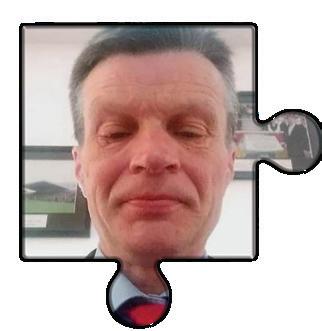 BY JOHN O'BRIEN
BY JOHN O'BRIEN
Havinga synod for the Irish church is a most positive development. It will give voice to the real experience of Catholics living in today’s rapidlychanging society. I hope that this dialogue will shed light on the problems we face, and that it will map out a path for the future of the church on this island.
FOUR ISSUES
The outcome we would like to see from this assembly is several resolutions addressing some important long-standing issues. The German Synodal Path clearly identifies four main issues that urgently need to be addressed:
Power and Separation of Powers in the Church
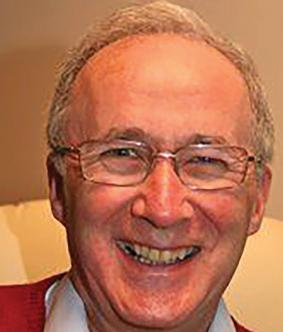

Living Love in Sexuality and Partnership
Priestly Existence Today
Women in Ministries and Offices in the Church
These same four issues are also relevant in Ireland today, where the church is in crisis. Our church is indeed a field hospital, as Pope Francis has said. But most of the injuries, like the clerical sex abuse cover-up scandals, the sexism and homophobia, have been self-inflicted.
We Are Church Ireland is ready to play its part in this assembly, provided all issues are on the table, and the members of the assembly represent the women and men of Ireland.
There must be fruitful and genuine discernment open to the Holy Spirit present in all people, allowing them to speak freely without fear of censure. Many previous consultations have gathered dust on shelves. The value of this assembly will be judged by what it actually achieves.
There is a danger of a dialogue of the deaf developing through the synod process. I hope this doesn't happen and that we will remember that we are all brothers and sisters in Christ. A hard division of opinion would stymie the process and prevent the church from revealing God's love to the world. The synod offers an opportunity for renewal of the church. But this can only happen if we speak the truth in love.
We cannot return to the church of the past. We must not seek to plot a future based on the old model. The church of the past exercised too much control over the Irish state. Bishops wielded tremendous political power, which went to their heads. The culture of the industrial schools and mother and baby homes not only caused immense harm to the many victims and their families, but also destroyed the credibility of the church in the eyes of so many people. The hurt inflicted by the church in the past is a warning that we must repudiate this model of church. This church of the past hid the love of Christ. Instead of service and love, the church gave us power and fear, cloaking the Christian message from the people.
Though diminished in size, the church today is in a better place than the arrogant, triumphalist church of yesteryear.
MORE HUMBLE
The loss of political power has forced it to be more
26 REALITY JUNE 2021 A SYNOD FOR IRELAND
I
LOVE TO SEE THE IRISH CHURCH EMERGE FROM THE SYNODAL PROCESS AS A CHURCH OF THE POOR.
Ursula Halligann and Colm Holmes are joint coordinators of We Are Church Ireland
Our church is indeed a field hospital. But most of the injuries, like the clerical sex abuse cover-up scandals, the sexism and homophobia, have been self-inflicted.
Ursula Halligan Colm Holmes
John O'Brien
humble. Intellectually there is greater freedom to think about what it means to be a Catholic. But I believe there is also much confusion in the church today. Alongside compassion, there is still a tendency to lay down the law. While recognising the need to be a more humble church, some also yearn for a return to the pre-Vatican II church. The church's social teaching is neglected, replaced by a personal type of private Christianity. Private charity is given greater emphasis than responding to the poor's cry for justice.
The great German Protestant theologian Karl Barth combined in himself the desire for justice with a profound respect for the teachings and traditions of the church. He believed that theology is a science in service of the church in its mission to preach the Gospel to the world. His understanding of what it means to be a Christian led him to become a socialist who bravely opposed the Nazis. Christians must model their lives on the radical Christ of the Gospels. Barth offers a model of church that is scientific, traditional, compassionate and radical.
OSCAR ROMERO
In the Catholic tradition, there is the shining example of St Oscar Romero. At the time of his appointment as archbishop of San Salvador, he was regarded as an apolitical conservative. A safe pair of hands. Being apolitical in the context of that time meant supporting the country's oppressive regime. But Romero became an outspoken champion of the poor. He paid for his outspoken preaching by being assassinated while celebrating Mass in March 1980. Inspired by his teaching and example, many people returned to the church and the sacraments. People’s commitment to the church increased when the church defended their rights. Rome now recognises Romero as a saint and martyr. Here we have a model for the church in Ireland, though of course the plight of Irish Christians is not as grave as it was for those in the El Salvador of Oscar Romero. The Irish church exists in a country where there is growing inequality of income. This inequality affects our politics too. What does the Gospel have to say to the situation in Ireland today? We Christians believe that through his Son Jesus, God is one of us. Jesus was poor, and because he is both God and human, God actively chose to be poor. A church of the poor is one that is faithful to the Gospel. I pray that the synodal process will lead to a rebirth of the
church in Ireland as a church of the poor. This is the only way forward if the church is to recover its true purpose and restore its credibility.

A native of Mallow, County Cork, John O’Brien is author of the recently-published Christianity and Social Democracy.
TRUE DIALOGUE MUST INVOLVE LISTENING
FIVE YEARS IS FAR TOO LONG A PROCESS. THE DANGER IS THAT MOMENTUM WILL BE LOST.
BY LEANNE KELLY
AsBritish Telecom once reminded us, “it’s good to talk.” That was certainly my reaction when I heard the Irish bishops’ plan for a synod. Dialogue is rarely a bad thing if entered into with the right intentions. True dialogue must involve listening – actually hearing what another person is trying to communicate, not responding with platitudes or shooting down their opinions. Our church needs meaningful communication. I consider myself very fortunate to have had my faith nurtured by the Redemptorists in Clonard Monastery, Belfast. I was a curious child who constantly asked, “but why?”, “who says?” Thankfully, when it came to religion, I was shown patience and encouraged to ask the questions. I was never silenced. I recall in my early teens becoming vexed that there were no female altar servers. Why were girls being discriminated against? I fully expected to be dismissed but, to my delight, my concerns were acknowledged. Within a week, I was the first female altar server in Clonard.
EYE-OPENER
It wasn’t until my late teens, when I moved from Belfast, that I realised that not all churches were like Clonard. I recall sitting horrified at my first Mass in Dundee as the priest mumbled through a two-minute homily, rattled off with no sense of trying to stimulate any thought. A few years later, my own diocesan parish priest lambasted me for my naivety as he set to telling me the “faults” of the Clonard priests. Apparently, these faults
were their preaching on topics such as divorce, homosexuality, women’s role in the church. As I explained that this was why I continued to attend Clonard and not my parish church, he became increasingly frustrated and labelled me an “à la carte Catholic.” As far as he was concerned, I was a lost cause, a liberal who didn’t truly understand church teaching.
Unfortunately, in recent times, we have witnessed church leadership suppress and silence conversations. I hear my inner child’s voice ask, “but why?” Why are we frightened of difficult conversations, of critiquing and examining our church? Why are we frightened of criticism?
WHY PEOPLE WALK AWAY
I was saddened and angry to hear of my cousin’s experience a few years ago while at Mass with her two children, having left her abusive marriage, to hear the priest wax lyrical about how divorce was a terrible sin which contributed to the undoing of the moral fabric of society. There was no nuance, no room for compassion, and she was left feeling humiliated and misunderstood by her church. She never returned to Mass again, save for weddings and funerals. I listened to a gay family member remark that the Catholic Church “hated her”. When we can neither see ourselves represented nor feel valued, why would we continue to show up?

Whilst I welcome the dialogue the synod will bring, my cynical side wonders to what end. The challenges that face our church today are not new. There is no doubt that our church is reaching a crisis point, and if action isn’t taken, it may be a case of too little too late.
To my mind, five years is far too long a process; the danger is that momentum will be lost. Important discussions will be overlooked and forgotten, the process so unwieldy and long that it loses its way and the intent, no matter how noble, is diluted and ineffectual.
In the meantime, I will continue to practise my faith at Clonard and to ask, “but why? Who says?” Who knows, maybe the Irish bishops will meet my questions with the same openness and grace as they were met all those years ago in Clonard. I can only pray.
27
A native of Belfast, Leanne Kelly lives in County Antrim.
WARY BUT HOPEFUL
A LESS THAN RESPECTFUL AND HONEST PROCESS WILL ONLY SERVE TO FUEL THE VIEW THAT THE CATHOLIC CHURCH HAS LITTLE TO OFFER THE CENTREGROUND OF PEOPLE IN IRELAND.
BY MONICA MORLEY
Ihost a weekly religious magazine programme on Mid West Radio. When I teased out the topic of synodality with Jesuit Fr Gerry O’Hanlon – “where bishops, priests and people listen to each other, freely discuss issues and take decisions together” – the majority of listeners understood the concept but had never experienced it in practice. While some were willing to believe it might happen some day in the local church, most were too weary, suspicious or uninterested in the idea. So the synodal pathway is not one we begin with the wind on our backs. The experience of my generation is that the church has engaged with the laity based on a pyramid model: the pope or bishop or priest at the top; the rest of us at the bottom. Even though mission statements might lead one to think otherwise, most laypeople who have been involved in their parishes or served on parish councils know first-hand that the pyramid model of church is alive and well. Pope Francis is an inspiration for those seeking to move our church forward. He speaks about ‘a wounded church’; ‘a poor church for the poor’; the church as ‘a field hospital’ and as a community ‘discerning
the signs of the times’ – ideas most Catholics welcome. Francis seems intent on re-casting the church to make it a more effective presence in the world. For this to happen, synodality is essential.

MIXED FEELINGS
I have mixed feelings about the bishops’ decision to go down this road of preparing for a national synod. I am relieved that, even though our church is at a low ebb, we are not prepared to accept the inevitability of relentless and possibly terminal decline. I am excited at the prospect of renewal that could offer encouragement to us all, particularly those on the margins. I have hope that finally, many who have so much to contribute to the church might get space to share their gifts and talents.

But I also have doubts. I am apprehensive that the initiative which promises so much could become just a paper exercise. I am worried that the decline over recent decades has been so devastating and the legacy so calamitous that we are climbing too steep a hill to make sustainable progress. I am concerned that only the hard-line traditional Catholics and the strident progressive liberals will want to engage with it, and that, as a result of the pandemic, many parishes will lack the resources to take full advantage of the promise that synodality offers. My biggest dread is that we will spend five years pretending something is happening so that we can talk it up, post nice group pictures of young people, and then put it on a shelf and move on, drained and downhearted while refusing to evaluate or learn from the experience.
MORE THAN HOPE
Perhaps hope is the key factor, that the Spirit of God will be at the heart of the process. But hope is not a strategy. We need to do more than that.
Establishing trust in the process is pivotal. Engaging with people who have drifted from the church for a variety of reasons must be a priority. Methods for hearing a diversity of views, questions and experiences must be put in place. Credible lay people must be given leadership roles.


And if a pre-requisite to synodality is ruling out discussion of specific issues, then it’s over before we begin. It’s not that ordaining women or changing church teaching on sexual morality will be a decision for the Irish church to make, but such discussion must be allowed to take place. Respect matters. Language and tone matter. Anything that is less than respectful, honest and open will only serve to fuel the view that the Catholic Church has little to offer the centre-ground of people in the Ireland of the 21st century. Time will tell if we can deliver what we hope we can.


28 REALITY JUNE 2021 A SYNOD FOR IRELAND
Monica Morley presents Faith Alive, a religious magazine programme on Mid West Radio, Co Mayo and is Director of the Family Centre at Knock Shrine.
Why are we frightened of difficult conversations, of critiquing and examining our church? Why are we frightened of criticism?
Leanne Kelly
I have hope that finally, many who have so much to contribute to the church might get space to share their gifts and talents.
Monica Morley
HAVEN OF PEACE
SOME GENTLE ENCOUNTERS WITH ORDINARY PEOPLE OFFER WELCOME RESPITE FROM THE NOISE OF EVERYDAY.
BY COLM MEANEY CSsR
Iremember a colleague recounting an anecdote about an election in the UK. During the campaign, a Labour candidate accused his Conservative counterpart of going around the constituency "whipping up apathy!" Well, there's no need to whip up apathy among the people of an area where I took part in a recent mission: it lies thick on the ground, and the air is heavy with it. The messiah complex with which I have felt burdened on other missionary endeavours(!) isn't even a distant possibility here. I'm just another salesman strutting his stuff to the local people, and many of the good folks show no outward interest in what I'm peddling (That "outward" is to allow for the Gospel possibility of some response unbeknownst to me, as the seed grows in ways mysterious to the astonished farmer in the parable). There is never any antagonism, just what appears to be a complete lack of interest, but who truly knows what's going on within any other person?
So, after weeks of seemingly fruitless toil, I take to the hills and head for our Redemptorist house in Busay (the

word means 'waterfall'). The house was bought in the 1960s and offers a spectacular view of Cebu City (the second city of the Philippines, where we have our provincial centre). Busay is about six or seven miles from the city, near the summit of a series of hills, fertile for growing flowers. It is a haven of peace and quiet, especially during the more rambunctious times here, like New Year, when the Chinese desire to expel all bad spirits takes the rather thunderous path of ever-louder fire-crackers and some fire-works.
When I was assigned in Cebu, I would bring people from squatter areas to Busay for a short recollection. They would be amazed at the quiet and greenery of the place, especially compared with their own home areas' squalor and incessant noise. When the group had returned to their home place, I would often go for a walk in the blessed silence. I met some memorable people.
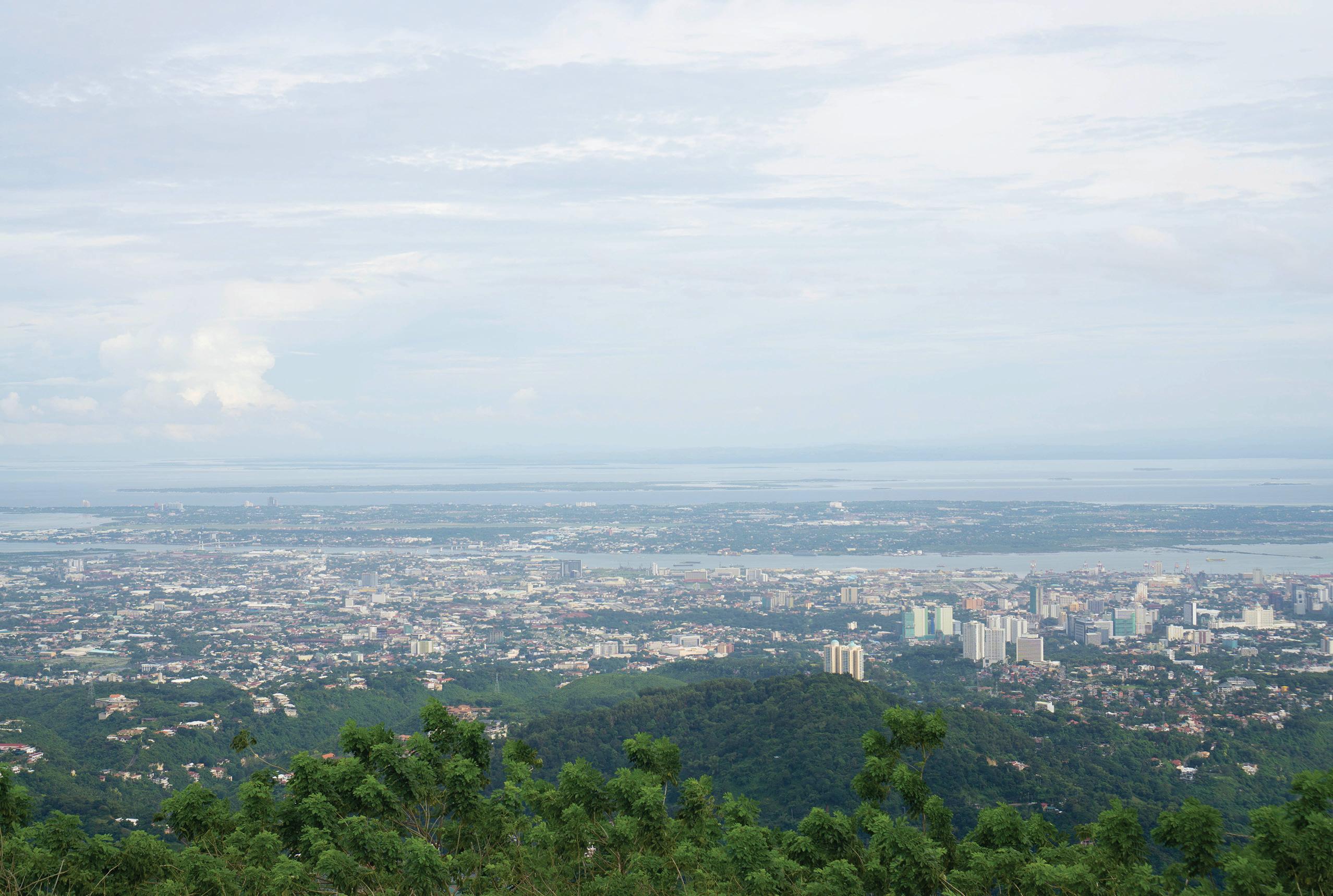
One day, as I was walking along, I approached a group of nine or ten men. Their labours over, they were enjoying a few glasses of J&B. No,
not the Scotch whiskey but 'Jazz & Bahal', the former being a local version of Coca Cola, the latter being the rather strong-fermented coconut juice. Filipinos are initially somewhat shy in the presence of an unknown foreigner, but with the courage-giving J&B, they tried a few greetings in English. We soon found a more agreeable medium of communication in the native language, Cebuano, of which I have a passable grasp.
Two piles of freshly-cut wood were the evidence of their work. The firewood was for the upcoming wedding of the organiser's daughter, who duly invited me to the festivities. It was a scene of contentment and hospitality. Apart from being invited to the wedding, I was offered some J&B. The poet Gerard Manley Hopkins wrote about a "sweet especial rural scene." The encounter with the men left me in high spirits: such rustic calm, simplicity and gentleness. But it's somewhat ironic for me to refer to Hopkins in this setting of wood-cutting, as the line quoted above is from his moving lament at the felling of some
aspens ("Binsey poplars"), with the wrenching line: "after-comers cannot guess the beauty been."
Another incident was one of pure joy. As I rounded a bend in the road, I came upon a girl, perhaps eight or nine years old, leading home her father's goats. As I passed, she beamed a smile of utter charm and said, "good afternoon." Was it my imagination, or did she bow slightly? I replied "good afternoon, Inday (young lady)," and the words of Belloc, quoted by Chesterton about Francis of Assisi, came to mind: "Of courtesy it is much less than courage of heart or holiness; but in my walks it seems to me that the grace of God is in courtesy."
Such politeness and friendliness seemed natural to the girl. It certainly provided a welcome respite from the often raucous voices of other children who identify me (and any foreigner) in the same way as their grandparents identified the American troops during the Second World War: "Hi Joe," a reference to GI Joe.
A native of Limerick city Fr Colm Meaney has spent most of his priestly life in the Philippines.
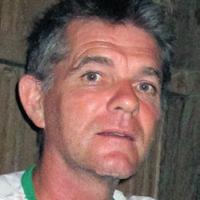
29
Cebu city view from Top Hill in Busay, Cebu, Philippines

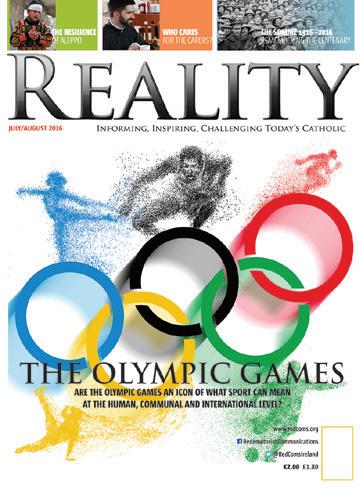

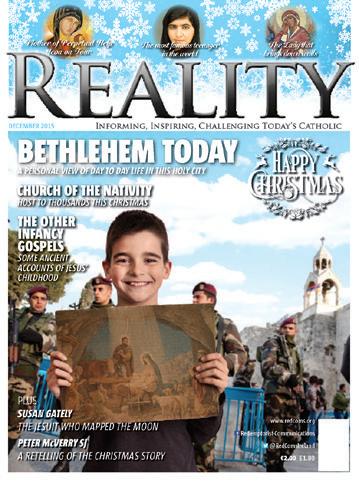
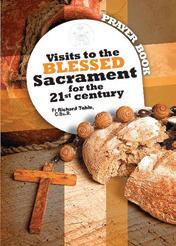
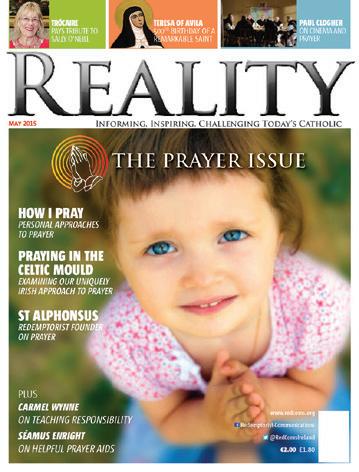
HOW TO ORDER: Phone 01 492 2488 • Email sales@redcoms.org • Online www.redcoms.org Post Complete the order form below and return it to: Redemptorist Communications, St Joseph’s Monastery, Dundalk, Co Louth, A91 F3FC FREE! With every subscription Are you enjoying this issue of Reality? Would you like to receive Reality on a regular basis? Taking a subscription ensures Reality magazine is delivered to your door every month instead of calling to a church or a shop in the hope that you will find it there. Each issue is packed with articles to inform, inspire and challenge you as a Catholic today. A one year subscription to Reality magazine is just €25 or £20 No extra charge for postage and packing ANNUAL SUBSCRIPTION* ONLY €25/£20 Yes, I would like to subscribe to REALITY. Please send me a copy of ‘VISITS TO THE BLESSED SACRAMENT’ ORDER FORM: PAYMENT DETAILS | Please tick one of the following options: OPTION A: I wish to pay by credit card VISA MASTERCARD LASER Valid from: Valid to: CVC OPTION B: PLEASE NOTE THAT CHEQUES MUST BE MADE PAYABLE TO “REDEMPTORIST COMMUNICATIONS” I wish to pay by cheque I enclose a cheque for: OPTION C: Existing account holders only: Please bill my account at the address below. My account number is: Name Address Phone Email Signed *SUBSCRIPTION RATES ARE: • €25 (ROI) • £20 (NI) • £30 (UK) • €40 (Europe) • €50 (International)
MAKE TIME FOR REFLECTION
Whenever you hear someone say they are so busy with day-today activities that they haven't a moment to spare, I can almost guarantee that the person is avoiding something.
All of us have a story about why we don't do what we say we'll do. Some of us will feel guilty about doing nothing even though switching off to make time for self-reflection is vital if we're stressed, unhappy, and don't have peace of mind.

If you are upset, harbouring angry thoughts and resentful feelings, stop and pay attention. Emotional pain is the result of a failure to acknowledge that something in your life is not right.
When someone or something upsets you, pause and ask yourself, "What am I feeling? Why am I feeling these emotions?"
Your answer may be, "I'm upset because so and so did or said something to upset me." That is the wrong answer.
To believe that someone's behaviour hurt you is understandable. To feel deeply wounded because a significant other does not seem to notice or care that you are worried and upset seems appropriate. You might assume that if only you could communicate about what you are going through, they would change. Wrong again!
Your efforts to make anyone understand the depth of your emotional pain, distress and worry are bound to fail. You may believe that if the person truly loved you, they would
treat you differently. But this is not about love; it's about you. Your emotional pain comes from what you believe, what you tolerate and what you excuse.
That is hard to accept. If you're miserable more often than you are happy, reflect on why you harbour thoughts and feelings that generate tension in the relationship. Are you too busy to confront problem issues? Discover why you tolerate unacceptable behaviour and ignore the times you don't feel love, liking or respect for the person.
It's easy to blame someone for hurting your feelings. It's easier to ignore what you feel, to hope that the relationship will get better rather than face facts.
The person you love is kind and loving, but s/he also tells lies, betrays your confidence, and sometimes says mean and angry things. Isn't it easier to make excuses than to question why you live with such emotional distress?
No matter what is going on in your life, you should never be too busy to take time for reflection. It's only when you take time to sit with yourself that you will pay attention to how you feel. Your emotional state is important because expressing your feelings is essential in healing yourself before you can heal a relationship.
Most of us have an issue with finding the appropriate words to describe how we feel. We're afraid that self-revelation makes us vulnerable. The other person might tell you that you shouldn't feel like that, or it could make them get angry and abusive. Deciding to be really honest and 'tell it like it is' takes a lot of courage, but it's essential if you want to be happy and have peace of mind.
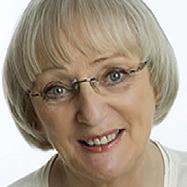
Unexpressed feelings are like holding an elastic band that is stretched to its limits. The longer you hold on to unexpressed feelings or avoid taking action, the more the tension grows in

the relationship. The elastic band will snap when enough tension builds up. When that happens, someone gets hurt.
The way to feel happy, healthy and loved is to live in peace with yourself and others. Love and accept yourself exactly as you are, not as you would like to be. You cannot be gentle, tolerant and compassionate in a loving relationship if you don't know how to be gentle, tolerant and compassionate with yourself. There comes a time when you need to decide to reflect on how well you manage your life and emotions. You have given control away if you believe that others have the power to make you happy or sad.
Take control back. Listen attentively to your internal dialogue. Listen to the way you speak about yourself. Do you speak kindly and gently to yourself, or do you sound critical, intolerant, and make harsh judgements? Do you make the needs of others more important than your own because this is what you were taught to do?
Emotional pain is your gift and challenge. The gift is to understand why no one can make you unhappy or disturb your peace of mind unless you give them emotional control. The challenge is to accept that your happiness and peace of mind are your responsibility.
31 COMMENT
FAMILY & RELATIONSHIPS CARMEL WYNNE
Carmel Wynne is a life and work skills coach and lives in Dublin. For more information, visit www.carmelwynne.org
YOUR HAPPINESS AND PEACE OF MIND ARE YOUR RESPONSIBILITY.
PEOPLE BEFORE BORDERS
IN FRATELLI TUTTI, POPE FRANCIS EMPHASISES THAT THE CHRISTIAN RESPONSE TO ARRIVING IMMIGRANTS MUST BE FOUR-FOLD—"WELCOME, PROTECT, PROMOTE AND INTEGRATE."
BY MICHAEL DALEY
PopeFrancis may well go down in history as the Pope of Symbols. Rather than what he says, Francis 'speaks' as much, if not more so, through what he does, who he is with, and where he goes.


A case in point. After he was elected in 2013, Pope Francis' first visit outside Rome was to Lampedusa. Situated some 80 miles from North Africa and 130 miles from Sicily, this small Italian island appears to be an insignificant speck on the map of the Mediterranean Sea. Yet, for a brief moment in time, it became the epicentre of the plight of migrants throughout the world. At one time celebrated for its beautiful beaches, Lampedusa increasingly has become known
as a chief European entry point for migrants arriving from North Africa, the Middle East and Asia. As the son of immigrants himself, Pope Francis felt called to go there and show his concern for those many deem first as illegal, alien, and foreign, rather than human.
Upon arriving, Francis laid a wreath of flowers in the waters off Lampedusa, commemorating those migrants who have drowned trying to reach its shores. Later, at Mass, he wore purple vestments as a sign of repentance. The altar was made from the remnants of refugee boats. During his homily, within sight of a 'boat cemetery' of shipwrecked migrant boats, Pope Francis lamented: "We are
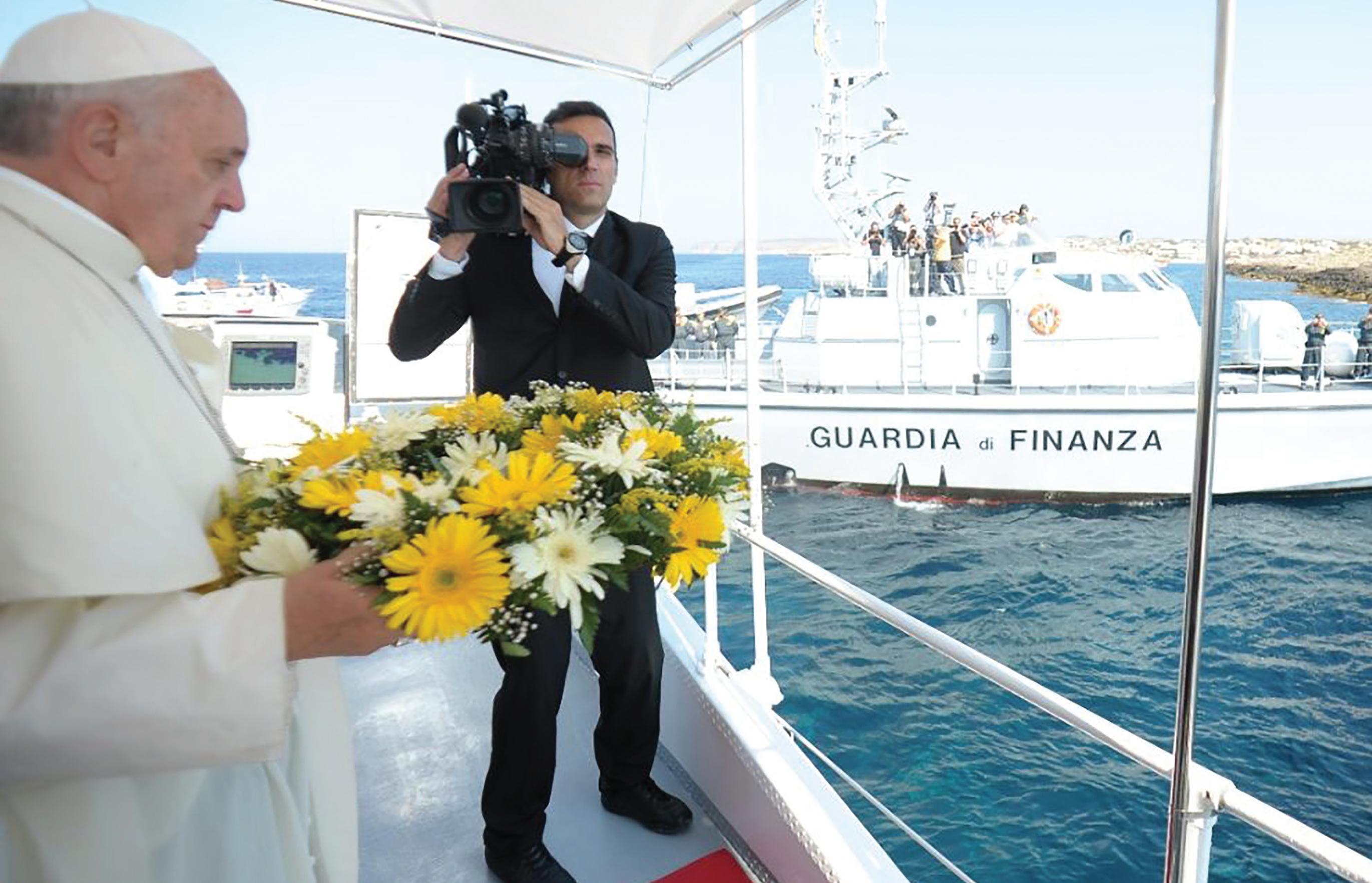
a society which has forgotten how to weep, how to experience compassion—'suffering with' others: the globalisation of indifference has taken from us the ability to weep!"
OPEN HEARTS
Some years on from his Lampedusa visit, Pope Francis continues to express his solidarity with immigrants, refugees, displaced persons, and asylum seekers, as highlighted in Chapter 4 of Fratelli Tutti ('On Fraternity and Social Friendship').
He admits the complexity of the issue and acknowledges, ideally, that unnecessary migration should be avoided. However, when it comes to immigration, Francis stresses that we must
deal with concrete realities instead of abstract ideas.
Until the day dignified life and integral development are met in one's home country, Pope Francis stresses long-standing Catholic social teaching: "[W]e are obliged to respect the right of all individuals to find a place that meets their basic needs and those of their families, and where they can find personal fulfillment" (#129). To this, he adds that our response to arriving immigrants must be four-fold—"welcome, protect, promote and integrate."
Yet, try as we may to be openminded, it's easy to be taken in by the enflamed political rhetoric which portrays the migrant as a stranger, a threat to
32 REALITY JUNE 2021 FRATELLI TUTTI
cultural cohesiveness, a danger to economic security. Some have gone so far as to indiscriminately call them criminals, drug dealers, and rapists. Rather than open our arms and doors of welcome, we are cautioned to build walls founded more on fear than faith.
Tellingly, in this regard, Holy Cross Fr Daniel Groody, vice president and associate provost at the University of Notre Dame, and author of numerous works on theology and migration, suggests that migrants both symbolise and expose who we are in this world. "Their vulnerability frightens us," he says. "Their experience invites us to consider how much we're called to move out of our comfort zones, beyond our tribal
identities; how much we need to move beyond false securities and into new territories. Migrants disturb our settled lives by saying there is a bigger space, bigger human community, bigger God than we can imagine."
To counter our fears and insecurities, Kristin Heyer, professor of theological ethics at Boston College and author of Kinship Across Borders: A Christian Ethic of Immigration, encourages a more mindful hospitality regarding our relationship with immigrants. She offers several practices: "Avoid amnesia at national and personal levels alike... Investigate how your present habits–purchasing, eating, child care, voting practices–impact the well-being of migrants and make a change. Pressure your elected officials and goods/service providers to do the same."
THE 'GIFT' OF IMMIGRANTS
Often, when considering migrants, we think of the cost. To care for them. To feed them. To house them. To educate them. As a result, the language of "burden" can easily creep in and colour our thoughts about and interactions with migrants. Unfortunately, this may leave us with the false impression that migrants only take. Pope Francis strongly warns us against this one-sided mindset.
For Francis, migrants provide opportunities for encounter and enrichment – what he calls "a fruitful exchange." They positively work against "cultural sclerosis" and "local narcissism" or stagnation of beliefs, ideas, and practices. This begins a dynamic challenge and invitation
"to discover the gifts of each person, to promote that which unites us, and to regard our differences as an opportunity to grow in mutual respect. Patience and trust are called for in such dialogue, permitting individuals, families and communities to hand on the values of their own culture and welcome the good that comes from others' experiences." (#134)
Here, Heyer proposes, is a chance for us to respond to Francis' "call to become 'islands of mercy in a sea of indifference' while working to overcome these entrenched barriers to conversion toward justice and hospitality. To become islands of mercy in a sea of indifference, then, Christians must forge common ground across differences and yet be unafraid to condemn destructive policies and practices that continue to harm children, separate families, and roll back historic protections."
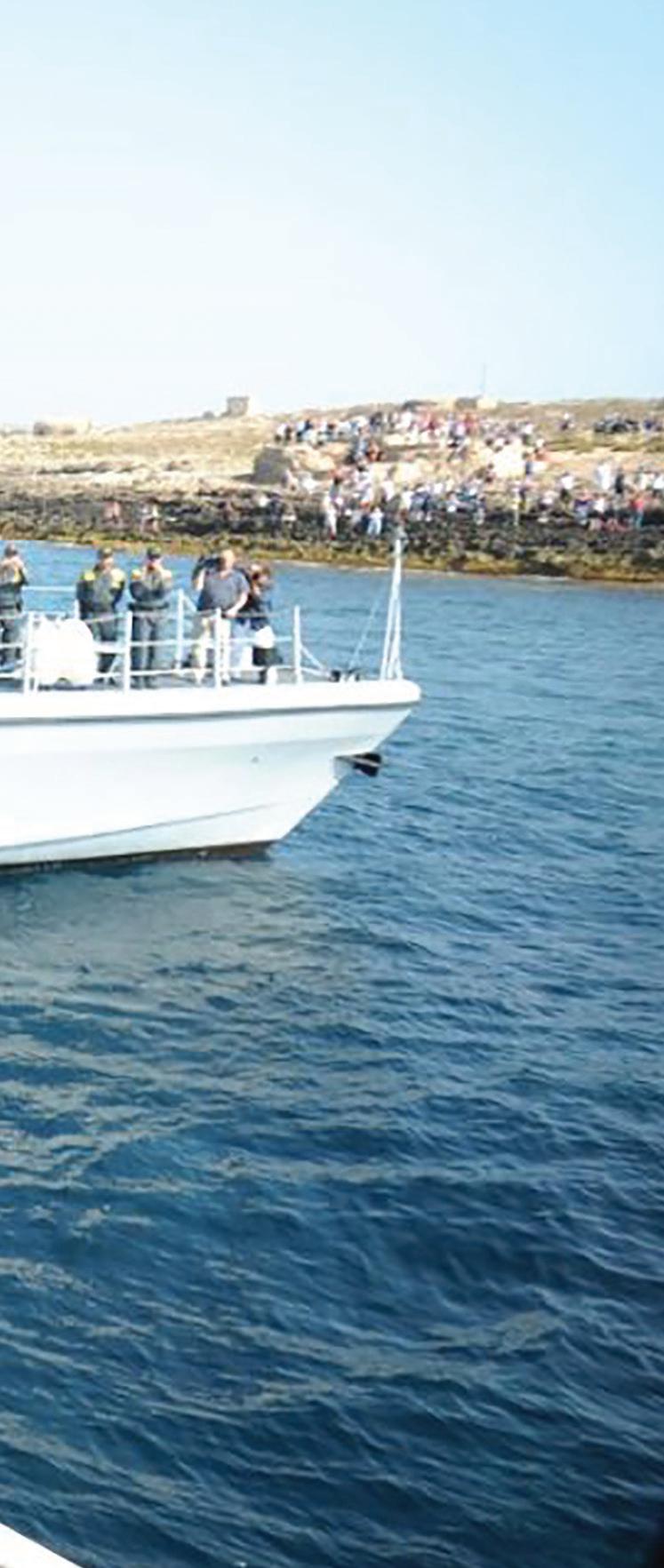
In this way, along with Pope Francis, we will realise what we long resist: "no one people, culture or individual can achieve everything on its own: to attain fulfilment in life we need others. An awareness of our own limitations and incompleteness, far from being a threat, becomes the key to envisaging and pursuing a common project. For 'man is a limited being who is himself limitless.'" (#150)
MIGRATION: OUR IDENTITY IN FAITH

Though we may not realise or admit it, central to our identity as believers is migration. Adam and Eve are cast out of the Garden. Responding to
God's call, Abraham leaves his homeland for a new, promised one. Moses leads his people from slavery in Egypt to freedom in a place "flowing with milk and honey." Later, the Israelites are taken into exile in Babylon.
Physical movement–willingly undertaken and at other times vigorously resisted–is the story of God's revelation in scripture. This is made most visible in the great migration of God to the human community in the Incarnation. In this movement, the Son of God migrates, or takes flesh, in Jesus of Nazareth. Where there was once division and sin, Jesus brings unity and grace. The church celebrates this great mystery, movement, and migration of faith most concretely in the Eucharist.
As Groody relates, migration is intrinsic to our human and spiritual identity and integral to our call to communion with God and one another: "The Catholic Church itself affirms, again and again, that we are one body in Christ. In the Eucharist, the church protests against the walls and barriers we set up between ourselves. If 'migration' worked itself into the self-definition of all people, we might then realise that before God we all live in the same country, we all live on the same side of the fence."
33
Michael Daley is a teacher and writer from Cincinnati, Ohio, where he lives with his wife June and their three children. His latest book, co-authored with scripture scholar, Sr Diane Bergant, is Take and Read: Christian Writers Reflect on Life’s Most Influential Books (Apocryphile Press).
MONTH OF THE SACRED HEART
"Every time I hear anyone speak of the Sacred Heart of Jesus or the Blessed Sacrament, I feel an indescribable joy. It is as if a wave of precious memories, sweet affections and joyful hopes swept over my poor person, making me tremble with happiness and filling my soul with tenderness."
34 REALITY JUNE 2021 LITURGY
Pope John XXIII
BY MARIA HALL
Thefeast of the Sacred Heart (19 days after Corpus Christ i) is relatively new, declared in 1856 by Pope Pius IX. But devotion to the Sacred Heart of Jesus has its roots in medieval mysticism. Unlike most feast days, it doesn't mark a particular event in salvation history. Instead, it recalls the universal truth that Christ saved us through his sufferings, through the wounds he received on the cross. His heart was pierced and from it flowed blood and water. The significance of water and blood was explained many times by the likes of Origen, Athanasius, Cyril of Jerusalem and Augustine. This is what St Ambrose said: From that body, incorrupt but dead, flowed forth the life of all men; water and blood came forth, the one to wash, the other to redeem. Let us therefore drink our price, that by drinking, we may be redeemed. From His side, there flowed water and blood. Why water? Why blood? Water to cleanse, blood to redeem.
These early writings were a part of catechesis, explaining the faith to new or lapsed Christians. They explained what we know to be true – the depths of Christ's suffering and love for us, his connection with humanity and the
sacramental link between this suffering and the prayer life of the church.
In the Middle Ages, several mystics had visions that inspired new devotions to the Sacred Heart. Here are a few of those stories.
ST LUTGARDE
Born in Belgium in 1182, Lutgarde entered religious life at the age of 12, not because of a deep vocation but because her family had lost her dowry. Entering a convent was a respectable way of avoiding marriage. The nuns allowed her to have visitors, including possible suitors. In her first vision, whilst receiving such a visitor, Christ revealed his bleeding side to her, asking her to devote her love to him and not to any male admirer. Lutgarde sent the suitor away, saying, "Get away you fodder of death, I have been overtaken by another lover!"
As she matured, Christ appeared to Lutgarde in many visions. On another occasion, he asked her what gift she would like, so she asked for a better grasp of Latin. As a result, the psalms, scriptures and prayers were opened up to her in a new way. But she was left feeling empty and asked the Lord if she could change her mind. "Instead," she said, "could I please have your heart?"
Lutgarde spent several periods of her life fasting on bread and water in reparation for and the salvation of sinners. She continued to have mystical experiences and even levitated. She was known for her wisdom, which she shared with other religious communities. To the local Franciscans and Dominicans, she was known as the 'Mother of Preachers'.
ST GERTRUDE THE GREAT
Gertrude is unique in that she is the only female saint to be called 'the great'. In 1281, at the age of 25, she experienced her first vision of Christ. These
would continue throughout her life, usually during Mass and the Liturgy of the Hours. She is known especially for praying for the souls in purgatory. She was a very clever woman who spent much time studying and writing. Book 2 of her 'Herald of Divine Love' is full of elaborate descriptions of the Sacred Heart. Here she recalls a vision at Mass: Soon I perceived that my words had touched thy divine heart, both by the interior sweetness which I experienced and by a visible sign in a picture of the crucifixion. For indeed having received the bread of life and returned to my place to make my thanksgiving, I seemed to see a ray of sunlight, like an arrow, issue from the wound on the right side of the image which was painted on the book before me. It seemed to come forth and retire, then presently come forth again, sweetly drawing to itself all my desires. Another vision took place on the feast of St John the Evangelist. Gertrude had rested her head on Christ's side and felt the beating of his heart. She asked John if he had felt the same on the night of the Last Supper. John replied that he had never spoken about it because, in a future time, people would need the story to rekindle their love.
ST MARGARET MARY
Margaret Mary Alacoque was a nun of the Visitation of Holy Mary in Paray-le-Monial, France. Her visions led to a worldwide devotion to the Sacred Heart. Margaret's zeal and love for Christ began when she was young. She said that she preferred prayer to playing games. "This Communion shed such bitterness over all my little pleasures and amusements that I was no longer able to enjoy any of them, although I sought them eagerly."
At the age of nine, she inflicted pain upon herself as an act of mortification. Following this, she was bed-bound for years with rheumatic fever. Only when she promised herself to the Lord in religious life did she recover.
Her first revelation was on December 27, 1673 at the age of 26. Christ disclosed several forms of devotion to her: receiving Eucharist on the First Friday of each month, a Holy Hour on Thursdays, and a Feast in honour of the Sacred Heart (The Jesuits, in particular, adopted this devotion, and you will find the emblem of the Sacred Heart in

35
WHEN POPE LEO XIII CONSECRATED THE WORLD TO THE SACRED HEART OF JESUS IN 1899, HE WAS BUILDING ON THE WORK OF SAINTS AND MYSTICS WHO HAD BEEN ENCOURAGING DEVOTION TO THE SACRED HEART FOR CENTURIES.
their churches.) Margaret wrote that sometimes his heart looked like a blazing furnace; other times, it was torn and bleeding.
Like St Gertrude, she also had a vision on the feast of St John. She laid her head on the side of Christ, and he told her of his desire that everyone should know of his goodness and love and that she had been chosen to spread this message.
It took a while for her Reverend Mother to believe Margaret Mary's story, and even longer for clergy and theologians to take her seriously. But she did have the support of her confessor, Fr Claude de la Colombière. At the end of her life, while being anointed, she said, "I need nothing but God, and to lose myself in the heart of Jesus." It would be 75 years after her death before the Sacred Heart became an official feast day.
POPE LEO AND A CURE
When Pope Leo XIII received a request from a nun called Sr Mary of the Divine Heart, asking that he consecrate the world to the Sacred Heart, he ignored it. But she persisted, asking that First Fridays be honoured too. In her letter, she referred to a recent illness of the pope and said he wouldn't die until the world had been consecrated to the Sacred Heart.
Finally, Pope Leo investigated her claims, and in 1899 his encyclical Annum Sacrum announced that the world would be consecrated to the Sacred Heart. He also revealed that he had been cured of his severe illness. Sr Mary died on the eve of the Feast of the Sacred Heart, just three days before the world consecration took place.
MODERN DEVOTIONS AND PASTORAL IDEAS

In addition to the feast itself, the whole month of June is dedicated
to the Sacred Heart. While the devotions aren't as popular as they used to be, they are ultimately ones of love, and love is timeless. Modern images and statues may be more appealing today. The Atelier d'Art de Bethléem produce a beautiful contemporary sculpture, and artists such as Jen Norton, Br Micky McGrath, and Stephen B. Whateley have produced striking modern artwork.
The image of the heart is popular and easy to understand. So it is suitable as a tool on which children and young people may draw pictures or write prayers. Teachers can be creative with this image, focusing on Christ's everlasting and unconditional love for us all.
In a busy academic world, celebrating the First Friday is an excellent way of having a regular Mass or paraliturgy. The Litany of the Sacred Heart is a beautiful prayer that can be easily adapted for children. A series of Bidding Prayers asking for love in various elements of our lives is also a good idea: love in our families, love for the lonely and poor, love for peoples of all faiths and cultures, and love for the natural world.
Divine Mercy devotions have a close connection with the Sacred Heart. Any hymn or scripture passage that mentions love would be great for a liturgy to the Sacred Heart. Love is a popular and essential theme, and so we can, and should, adapt devotions from the past and make them relevant for today.
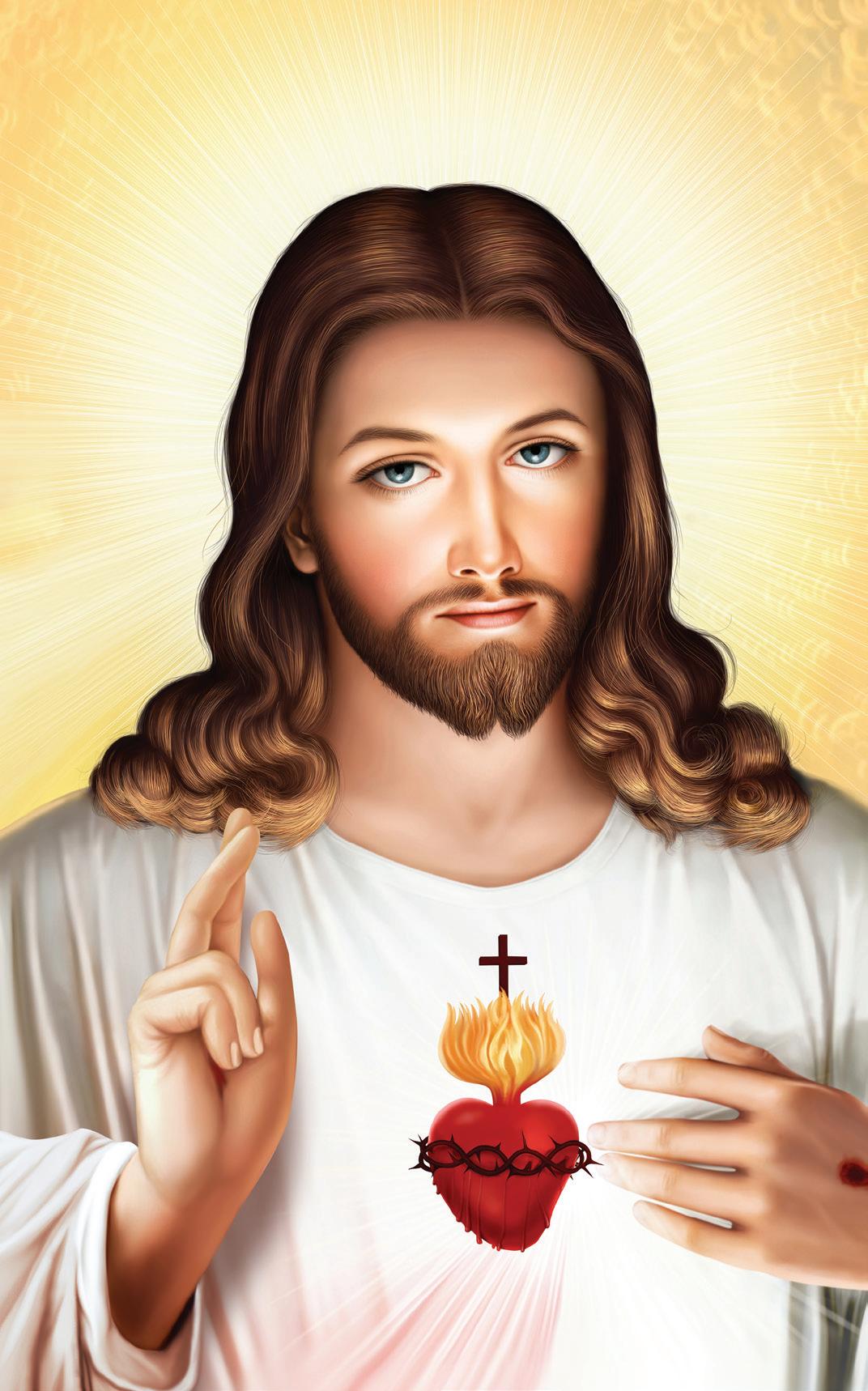
Maria Hall is music director at St Wilfrid's Church, Preston, England. A qualified teacher, she has a Master’s from the Liturgy Centre, Maynooth and is a consultant on matters liturgical for schools and parishes. www. mariahall.org
Resources
Annum Sacrum. Encyclical of Pope Leo XIII on consecration to the Sacred Heart.
Miserentissimus Redemptor. Encyclical of Pope Pius XI on reparation to the Sacred Heart.
The Letters of St Margaret Mary of Alacoque, Tan Books, 1954
Litany of the Sacred Heart , Illustrated for Children, Heather Nicole Hamtil.
Ideas for children at: catholicmom.com/articles/2011/03/05/sacred-heartof-jesus-lesson-plan
Youtube channels: 'CatholicIcing' and 'Holy Kids' have great videos for children on the Sacred Heart. centrefordivinemercy.org has resources for adults and children.
36 REALITY JUNE 2021 LITURGY
NO LONGER
THE BEST CATHOLICS IN THE WORLD
A NEW BOOK EXAMINES THE COLLAPSE OF THE SPECIAL RELATIONSHIP BETWEEN IRISH PEOPLE AND THE CATHOLIC CHURCH.
BY EAMON MAHER
Thisarticle is written to mark the publication of Irish Times journalist Derek Scally's significant book, The Best Catholics in the World: The Irish, the Church and the End of a Special Relationship (Penguin, 2021).
Scally, who describes himself as "a grappling Catholic", has spent the last few decades of his life in Berlin, which has given him a unique lens to analyse the massive decline in the prestige and influence of Catholicism in Ireland.
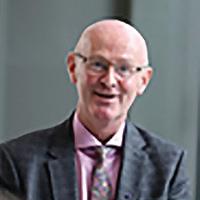
Brought up in the Dublin parish of Edenmore (where Paul McGennis, the priest abuser of Marie Collins, served) and now in his 40s, he was raised as a Catholic, received the sacraments and was an altar
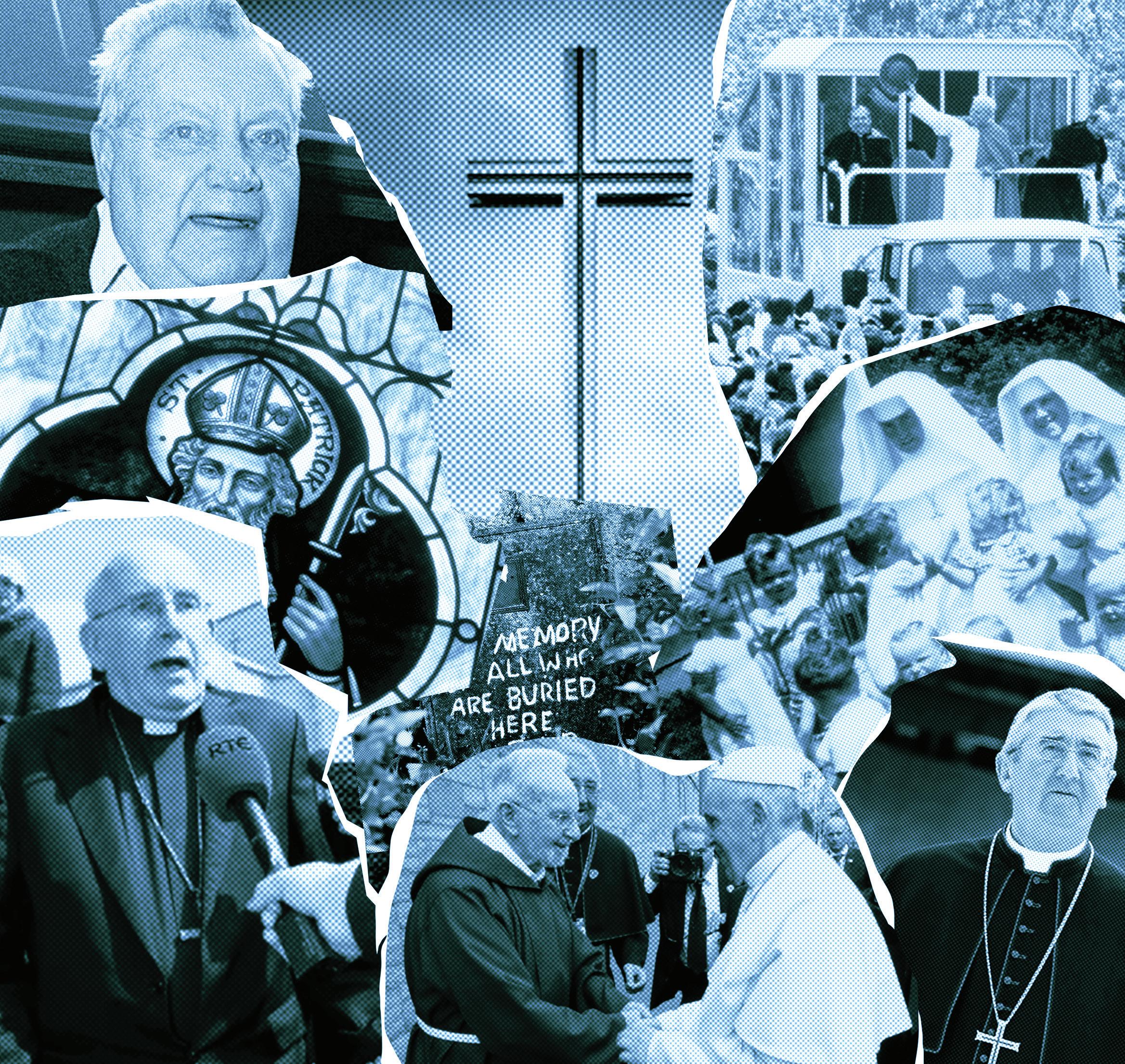
37 FEATURE
boy. He finds it hard to comprehend how an institution that was so powerful during his youth is now regarded with indifference, derision or bitterness by a large proportion of Irish people. Scally sums up this 'fall from grace' in the following manner: "Passion is the word used to sell Ireland's new holy water –coffee – rather than to remind the faithful that Jesus Christ died on the cross for the salvation of their souls."
him well in getting people to explain why they were at the annual novena in Galway, or visiting the Marian shrine in Knock, or attending the papal Mass in the Phoenix Park in 2018.
He also interviewed victims of clerical sex abuse, former internees of the industrial schools, Magdalene Laundries and other institutions set up by the state and managed by religious orders, and various specialists
point (1975), and he went on to abuse several other children. Scally views Brady as an inherently decent person and a trained canon lawyer whose first loyalty is clearly to the church, something that influenced his handling of subjects that had the potential to be detrimental to that institution.
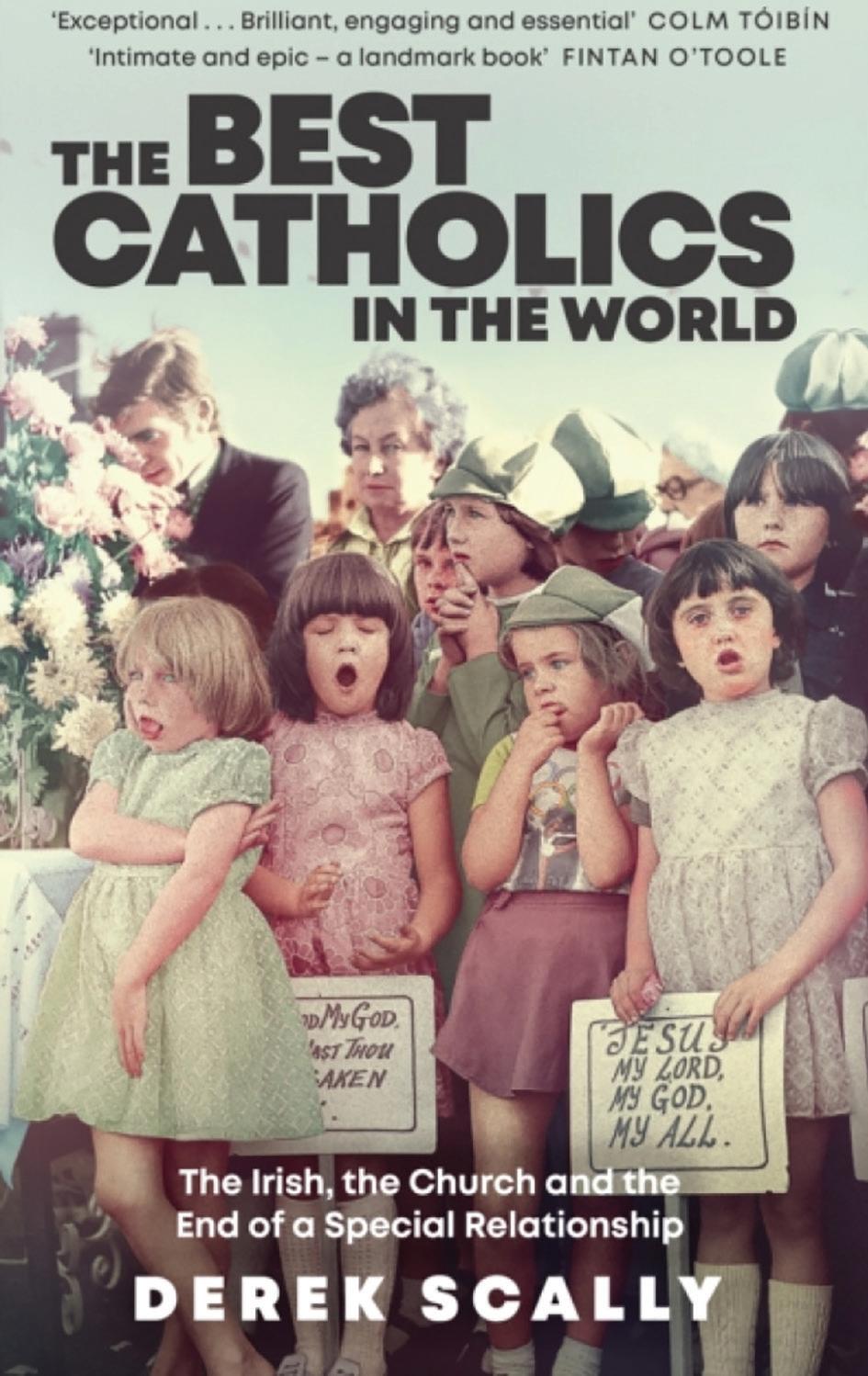
The analogy is apposite, as coffee-drinking grew exponentially during the Celtic Tiger years, a frenetic period when people were rarely seen in public without a cappuccino or americano in hand as they busied themselves with the task of closing deals (often involving the purchase of property) and making money. Mammon seemed to have replaced God in the minds and hearts of Irish people during this period of unbridled hedonism and economic boom. Scally's objective in his book was to unearth some of the reasons why Catholicism in Ireland has become a largely private affair that is not shared with others for fear it might invite sarcasm or rancour.
JOURNALISTIC INSTINCT
The methodology employed by Scally to decipher the changed relationship between the Catholic Church and the Irish people was to attend various religious events around Ireland where his journalistic instincts served
on the impact that revelations concerning the happenings in these places have had on the public's perception of the church. In addition, he met with retired Cardinal Seán Brady, who was educated in Maynooth and Rome and who became embroiled in the scandal surrounding the notorious Fr Brendan Smyth when his involvement in a secret canonical investigation into allegations of abuse against the latter became public. No action was taken against Smyth at that
In the Prologue, Scally recounts his feelings as he trudged up to a wet and dreary Phoenix Park in August 2018 and listened to the opening words at the papal Mass of Diarmuid Martin, Archbishop of Dublin, who drew attention to Ireland's "fragile faith" and expressed his hope for a spring in the Irish church "that does not wish to cover up the harshness of dark days." Martin's record in dealing with the Murphy investigation into clerical sex abuse in his own archdiocese was exemplary. This experience most likely revealed to him the danger of forgetting the harm done to victims in a desire to reinstate a triumphalist form of Catholicism. Martin's retirement deprives the church of one of its most capable and well-respected leaders. In his homily, Pope Francis asked for the church to be forgiven for "abuses of power, abuse of conscience, sexual abuses and religious who looked away." Scally thought the whole occasion felt like "a requiem" but it also served to clarify the purpose of his book: "I want to understand how my Catholic past went from rigid reality to vanishing act."

THOUGHTS OF THE NON-IRISH
Some of the most enlightening comments in the book come from friends of the author who are not Irish. An example is the observation of a Swedish woman, Lotta: "Losing the ability to talk about religion is like losing a language. You're no longer aware of what you are no longer able to talk about, or what you can no longer express and, eventually, what you no longer feel."
This is particularly apposite when it comes to Ireland's attitude to the Catholic Church. We seem to have lost the vocabulary to express what we feel about the majority religion. Anger, shame, remorse, guilt, hope, despair, all these sentiments bubble to the surface any time Catholicism is mentioned, but these are emotions that are difficult to capture in words.
38 REALITY JUNE 2021 FEATURE
I want to understand how my Catholic past went from rigid reality to vanishing act.
Derek Scally
One of Scally's interviewees commented that religion in 21st-century Ireland is "missing but not missed." The lack of a reasoned appraisal of the legacy of Catholicism is not helped by the absence of a tradition of 'Catholic intellectuals' such as one encounters in countries like France and Germany, or Poland during the Marxist era. Where is the Irish equivalent of a Jacques Maritain, for example? This void has led to a polarised situation where people see themselves as either apologists for or adversaries of Catholicism, with little common ground between the two. Towards the end of his study, Scally remarks: "Ireland's unique historical circumstances left Irish Catholicism divorced from reason and the Enlightenment far longer than elsewhere. With little competition, Irish Catholicism remained impervious to national criticism or challenge." An insight that's undoubtedly true.
Hence, when the revelations in various television documentaries in the 1990s and the early 2000s began to do serious reputational damage to the church in Ireland, there was a hasty retreat for cover by previously staunch defenders of the institution. In addition, there was a marked reluctance to acknowledge that society was equally complicit as church and state when it came to those horrific institutions where unmarried mothers and children were treated in a manner at complete variance with the Christian ethos. Writer Dermot Bolger pointed out this dichotomy in an article he wrote in 1999 in relation to the Magdalene Laundries: "Washing came in, slave labour was hired out. Many knew
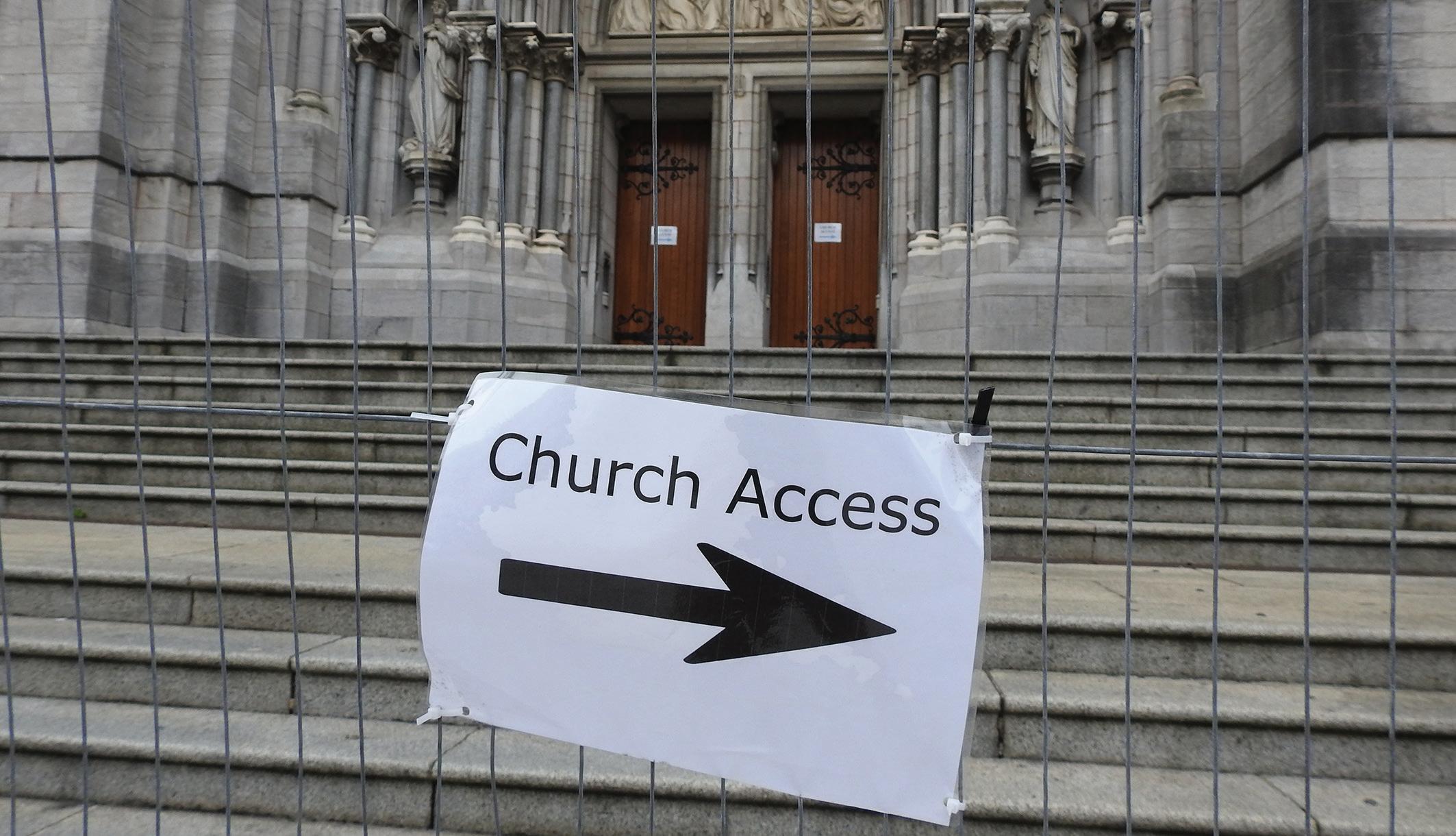

it was against their interests to question the system. And in truth, most Irish people felt the inmates deserved what they got."
Marie Collins describes the "deference addiction" that characterises Irish people, which has transferred from the men and women of the cloth of yesteryear to the gurus of the health service today. So when we discover problems with blood transfusions, breast screenings or smear tests, there is a familiar pattern: "outrage over the failure of people of authority that inevitably evolves into a sense of helplessness…" In the past, we deferred to the bishops. Today it is health officials and hospital consultants whom we place on a pedestal.
VICTORIAN MORALITY
Drawing on his in-depth knowledge of German life, Scally contrasts how the country where he now resides is not afraid of engaging with the circumstances that allowed the Nazi regime to flourish with the virtual silence in Ireland about the toxic form of repressive Catholicism that developed and led to the suffering of many innocent citizens. It is true that a Victorian form of morality in the post-Famine period encouraged self-restraint and denial, particularly in the area of sexuality, and to producing priests who, in the words of Maynooth historian Patrick Corish, were "good labourers, not good thinkers." Indeed, a German historian, Knut Jongbom Clement, in an acidic travel journal of Ireland in 1839, remarked of the recent establishment of the national university, that it "has certainly not
promoted the progress of intellectual education in Ireland" and went on to say the training that was offered there was "restrictive and one sided … stringent and distrustful." Nowadays, there are very few seminarians left in Maynooth and, according to a current staff member, many of those currently in training "are reactionary to the dominant culture" and determined "to construct a form of religiosity that gives them no way to grow and develop."
I agree with Scally's analysis that "the alacrity with which we (the Irish) shrugged off a faith that was once so pervasive and defining is, in turn, reflected in the widespread lack of interest in faith as a historical, cultural or sociological artefact." He wonders if by any chance Ireland might not profitably develop a museum which would tell "the unique story of Irish Catholic faith, politics and transformation." I, for one, would warmly welcome such a development.
I also believe there is great potential in his suggestion that we might profitably use some form of a citizens' assembly similar to what was employed for the recent marriage equality and abortion debates to deal with our 'special relationship' with Catholicism. Calm, mature and open discussion is difficult when it comes to something as emotive as religious faith, but it is essential if we are to deal effectively with what Scally refers to as "the collective shame" engendered by our association with a corrosive form of Catholicism.
Derek Scally's book is a welcome addition to understanding the former close links between the Catholic Church and the Irish population and why these have now become greatly dissipated.
39
Religion in 21st-century Ireland is "missing but not missed."
Eamon Maher's most recent book, co-edited with Eugene O'Brien, Reimagining Irish Studies for the Twenty-First Century, can now be ordered from most good bookshops or from the Peter Lang website: https://www.peterlang.com/view/serial/ REIR
Five Reasons We Turn To Mary In Times Of Crisis
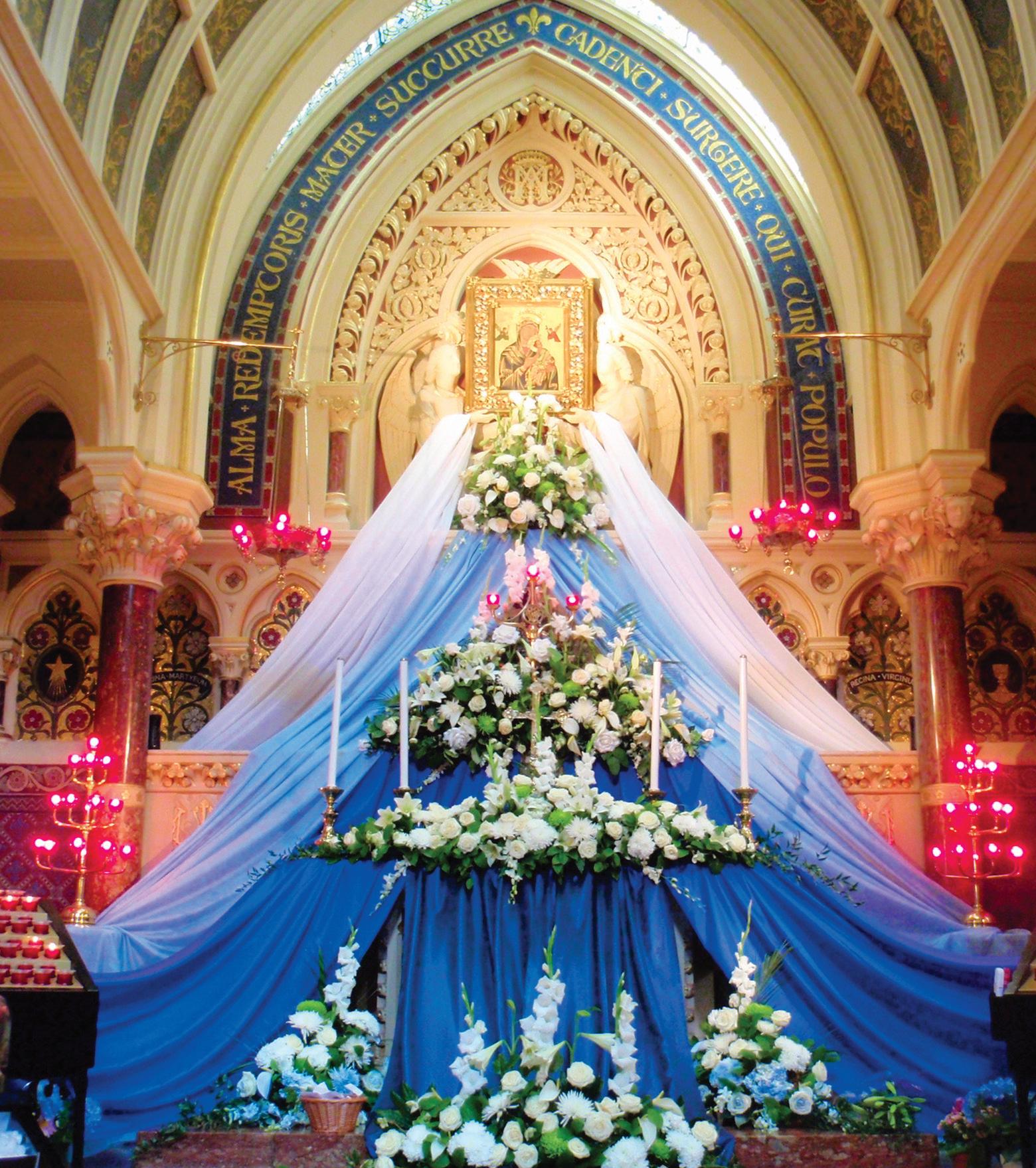
ESPECIALLY IN TIMES OF GRAVE DANGER, SUCH AS THE CURRENT PANDEMIC, MARY OFFERS HOPE, HEALING AND COMFORT TO ALL WHO ARE IN NEED OF HER MATERNAL CARE.
BY CARDINAL JOSEPH W. TOBIN CSsR






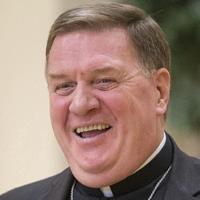
Earlyin 2020 when the devastating effects of the COVID-19 pandemic became clear, and thousands–then millions–of people throughout the world were affected by physical, spiritual, economic and psychological hardships, including severe sickness and death, I began to implore the Blessed Virgin Mary, Health of the Sick, on a daily basis for her intercession and help. Throughout the ages, Christians
have turned to Mary in times of war, pestilence and famine. In troubled times like these, she is a sure refuge, a source of comfort and hope.
My religious order, the Congregation of the Most Holy Redeemer (Redemptorists), maintains a particular devotion to Mary under the title Mater de Perpetuo Succursu (Mother of Perpetual Help). As guardians of the 15th-century Byzantine icon
that bears this holy name, for more than 150 years my community has promoted devotion to Our Lady of Perpetual Help as a means of helping people in all regions of the world draw closer to Mary, the Mother of God and our mother.
Pope Francis has frequently said that his favourite image for the church is her motherhood. “The church is feminine,” Pope Francis says. “She is a mother.” Of course, Mary is the model, the inspiration
for the church’s motherhood and for all that is holy, compassionate and loving in the church’s life and ministry. When Mary’s influence is missing or weak, the church no longer acts as a loving mother.
That’s why we should turn to Mary in both good times and troubled times. As Mother of Perpetual Help, she is always ready to assist us, always there for us, constantly prepared to seek her Son’s guidance and support for all
40 REALITY JUNE 2021 FEATURE
her children. Especially in times of grave danger, such as the current pandemic, Mary offers hope, healing and comfort to all who are in need of her maternal care.
As I reflect on our current crisis, and the serious challenges it presents to individuals, families, communities and nations in all regions of the world, I see five major reasons (among many more) why we should turn to Mary our mother for her intercession and help. Here are my five reasons.
1. People are sick and dying. Throughout the church’s history, Christians have sought Mary’s intercession in times of serious illness including pestilence and plagues. As a loving mother, Mary always responds with comfort and the healing grace of her Son. Most Holy Mother, Health of the Sick, please stay close to all who are suffering from the effects of this deadly virus. Comfort those who mourn the loss of loved ones. Encourage caregivers, first responders and all who provide essential services often at great risk to themselves.
2. People are frightened, lonely and depressed. Mary’s loving presence offers courage and hope during frightening times, especially when we are isolated from family and friends. She reassures us and reminds us that we are never alone, never without the consolation and hope won for us by her Son’s suffering, death and resurrection to new life.
Mother of Holy Hope, inspire us by your perseverance and courage. Help us see that we are not going through this
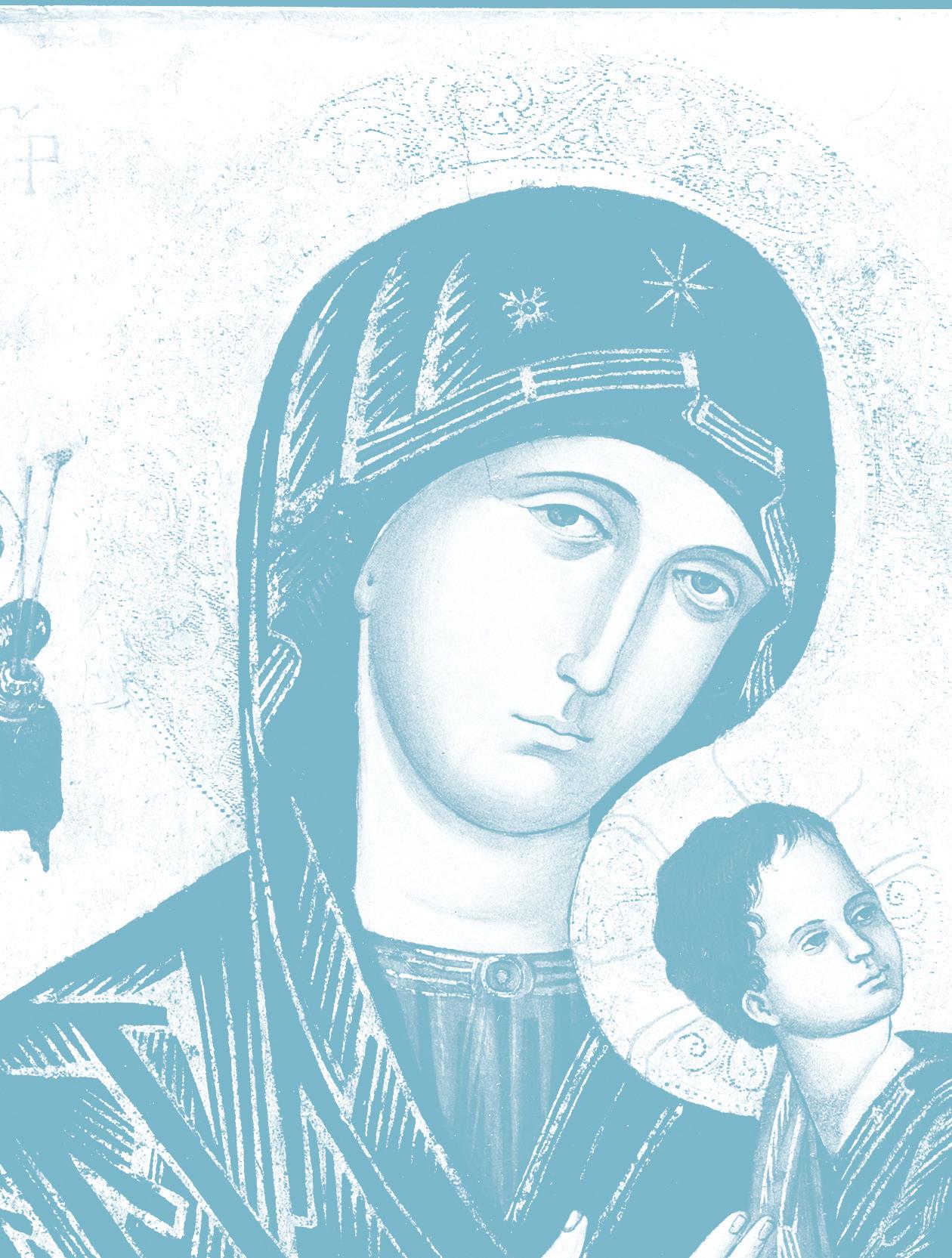
time of trial alone. Show us the way to Jesus, and help us to accept your loving presence as a sure sign that even in this time of social distancing, your Son holds us in his loving embrace and says to each one of us: “Be not afraid!”
3. People are out of work or afraid they will lose their jobs. Mary is alternately invoked as Our Lady of Abundance and as Mother of the Poor. She stands with us when the economy is growing and when there is widespread poverty and unemployment. She reminds us to be good stewards of all God’s gifts and to share generously with others, especially the poor.
Our Lady of Guadalupe, patroness of all the Americas, (and mother of Christians everywhere), you know the riches and the poverty of the lands we share with all our sisters and brothers here. Teach us to be grateful and generous stewards. Intercede for all who are poor. Reassure all who are frightened. Help us to help each other so that no one has to go without his or her share of God’s abundance.
4. People are longing for the sacraments, especially the Eucharist. Mary shows us the way to her Son. She is a sacrament of God’s presence in the world, the Gateway to Grace and a model for the church’s prayer and worship. Deprived of access to the sacraments, and to liturgy cum populo (with our sisters and brothers), we understandably turn to Mary in the Rosary and other devotional prayers to help fill the spiritual gaps that exist in our lives.

Mary, Mother of the church, pray for us. Teach us to seek and find your Son, Jesus, in the prayer and worship of the church, in the sacraments and in intercessory prayers to you and all the saints.
Queen of the Most Holy Rosary, help us to be patient and understanding until the day we can safely reopen our churches and once again make the sacraments available to all.
5. People need wise, prudent and compassionate leadership–now more than ever. Mary is the Mother of the Good Shepherd. His teaching and example powerfully illustrate the meaning and vital importance of servant leadership. We implore the Mother of our Lord to help all our leaders in society and in the church set aside their personal and political agendas so that they can place the needs of others first and foremost.
Mother of Justice and of Mercy, pray for all who are leaders. Inspire us by your obedience to God’s will and your readiness to sacrifice your own needs and desires for the good of all. Open our minds and hearts to the selfless witness given to us by your Son so that we can lead our people with humility, wisdom and courage.
In conclusion, I would like to once again make my own Pope Francis’ prayer to Our Lady, Health of the Sick, which uses the words of an ancient prayer, Sub tuum praesidium, actually the oldest hymn to Mary, the Mother of God, to implore her protection during the coronavirus pandemic:
O Mary, you shine continuously on our journey as a sign of salvation and hope. We entrust ourselves to you, Health of the Sick. At the foot of the Cross you participated in Jesus’ pain, with steadfast faith. You know what we need. We are certain that you will provide, so that, as you did at Cana of Galilee, joy and feasting might return after this moment of trial. Help us, Mother of Divine Love, to conform ourselves to the Father’s will and to do what Jesus tells us: He who took our sufferings upon Himself, and bore our sorrows to bring us, through the Cross, to the joy of the Resurrection. Amen. We seek refuge under your protection, O Holy Mother of God. Do not despise our pleas – we who are put to the test – and deliver us from every danger, O glorious and blessed Virgin. Amen. Holy Mary, we entrust to your maternal care the health and safety of all our brothers and sisters here in the Archdiocese of Newark and throughout the world. Help us to trust in the healing power of your Son and to stay close to one another spiritually even as we are required to maintain a safe distance physically.
41
Cardinal Joseph W. Tobin CSsR is Archbishop of Newark, New Jersey, USA and has served as Superior General of the Redemptorists.
We are grateful to the Archdiocese of Newark for permission to print this letter.
TRÓCAIRE PARTNERS RESPOND TO THE COVID CRISIS

TRÓCAIRE'S SUPPORT HAS MADE A TREMENDOUS DIFFERENCE TO PEOPLE IN COUNTRIES LIKE

ETHIOPIA AND KENYA DURING THIS UNIQUELY CHALLENGING TIME.
BY DAVID O'HARE
Overthe last year, Trócaire and the partner organisations the agency works with in the developing world have been adapting programmes to deal with the COVID-19 pandemic and the additional challenges the pandemic has created for people. Two examples of this adaptation and the difference it has made to people's lives can be seen in Ethiopia and Kenya.
For 23-year-old Wubit Abelo, whose family of three has been hit hard by pandemic restrictions in Ethiopia, support for an innovative maskmaking project is beginning to offer a glimmer of hope for the future.

When coronavirus reached Ethiopia, Wubit
began to despair. Access to basic household items was reduced, transport shut down and the ability to buy and sell changed dramatically as local markets closed. Wubit lived in fear of the health risks to her three-year-old son Anania and what might happen if her family was left with no income. There is no government support for them.
Then in this time of worry came an unexpected opportunity. A new market that was previously unavailable – mask-making – plus training and sewing machines to use, gave Wubit and her family a glimmer of hope. For the past five months, the TLH mask-making project has become a modest but vital source of income to Wubit.
SCARED
Like so many around the world, Wubit is scared that Covid will prevent her from living her life to its fullest. And while she can't afford a sewing machine of her own (in Ethiopia, they cost around €600 each), her dreams are firmly set: to have her own business making cultural dresses by her own hand, to make sure her son can have a good education and to provide for her family.
Wubit knows she has the chance to be part of the TLH project because of the generosity of Trócaire's supporters, and she's very thankful for that fact.
Meanwhile, in Kenya, a Trócaire partner is giving hope to other women and girls. LVCT Health had
42 REALITY JUNE 2021
Wubit is earning an income sewing facemasks, and helping the fight against Covid in Ethiopia.
Photo: Barnaby Skinner
been working with Trócaire to educate girls and ensure they were able to attend school. When the Covid pandemic hit, they were quickly able to transition that project.
Dr Lilian Otiso is the CEO of LVCT Health. "I think the key lesson is that whenever restrictions on movement are put in place, we have to think of the most vulnerable, the most marginalised, so that we're coming up with approaches that really meet their needs," she says. "I remember hearing a lot about should I spend money on buying a mask or buying food? People are starving. So, as you're giving instructions like buy masks or do handwashing, we have to recognise that people may not be able to afford that.
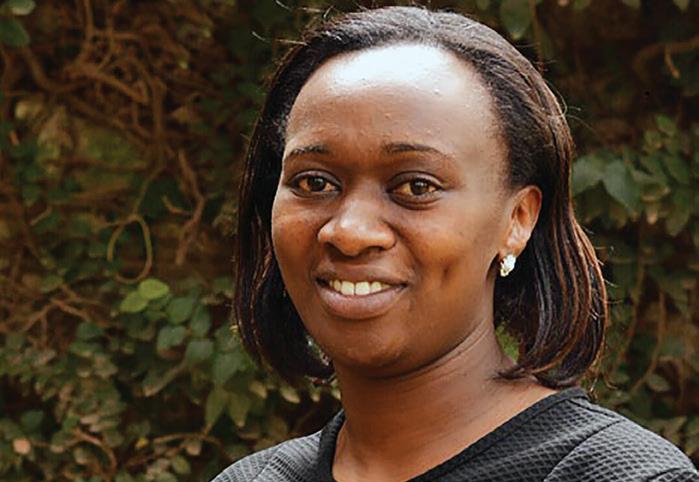
"We responded to the pandemic in different ways. We sustained the HIV and gender-based violence services that we were providing. We provided community education on COVID-19 through our one-to-one toll-free hotline and bulk SMS messages. We also trained and retrained peer educators and community health workers to be the frontline to reach community members and
give psycho-social support for the health workers who we knew were facing huge challenges. "We also used some of our resources to provide basic nutrition support because people could not afford to buy food or could not get access to care. This went alongside ensuring that those facing gender-based violence actually got services and the HIV clients were able to get their medical supplies delivered to them or find a way of gaining access to the services.
HELP WITH EDUCATION




"We already had 560 vulnerable girls in the
Trócaire-funded Imara project, and when schools were closed, they went home with nothing to do. Our staff thought through quickly what could happen, and we transformed our safe spaces into formal learning centres where they could get online classes. So, we were able to make sure that our poorer community members in informal settlements and rural settings would be able to go to those centres and receive some educational support.
"One example is the story of Lois, who is a single mother of four and whose daughter is a beneficiary of the Imara Project. Her daughter had initially struggled to get into a secondary school after she completed her primary school education. The project had been able to take her back to school. She also benefitted from the online classes that were structured to suit the different courses.
"Because Trócaire allowed us to actually adapt and respond to Covid based on the needs of the community, we have been able to really address the emerging needs."


MOTHER OF PERPETUAL HELP Reflections on an Icon
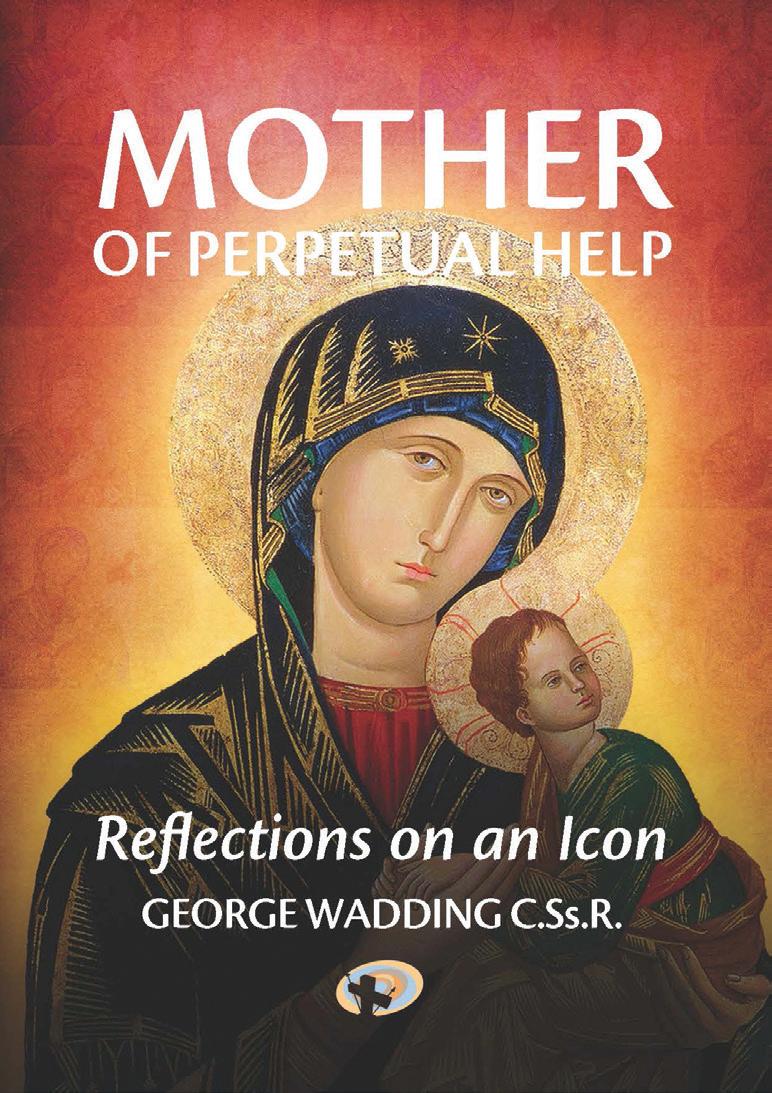
The icon of the Mother of Perpetual Help is probably the best known of all the images of our Blessed Lady.
In this beautiful booklet, Fr George Wadding CSsR leads us into meditation on the various messages contained in the icon of the Mother of Perpetual Help and suggests a simple prayer after each meditation. Read each meditation slowly and in an atmosphere of prayer. You will find yourself drawn closer and closer to the hearts of Jesus and Mary.
FROM REDEMPTORIST COMMUNICATIONS €3 (plus p&p)
Redemptorist Communications, St Joseph’s Monastery, Dundalk A91 F3FC Tel: 01-4922488 Email: sales@redcoms.org Website: www.redcoms.org
Only Contact:
Dr Lilian Otiso, CEO of LVCT Health in Kenya.
THE PANDEMIC AND INCREASING INEQUALITY

While hundreds of millions of people have been plunged into unemployment and extreme poverty by the pandemic, the world's ten wealthiest people (all men!) have seen their combined wealth increase by €500 billion. Ireland's nine billionaires saw their wealth increase by €3.28 billion in 2020. Globally, the wealth of the world's billionaires grew to a total of €10 trillion.
Each year, to coincide with the World Economic Forum meeting in Davos, Switzerland, where economists, world leaders and celebrities come together to discuss the world economy, Oxfam publishes research on wealth and poverty in the world. It attempts to focus their minds, not just on creating wealth, most of which goes to the already rich, but on reducing inequality and poverty.
This year, the report, called 'The Inequality Virus', details how the pandemic will increase economic inequality in almost every country in the world at the same time, something we have never seen since records began over a 100 years ago. It shows how the economic system, both nationally and internationally, is rigged, enabling a super-rich elite to amass wealth in the middle of the worst recession since the 1930s, while billions of people struggle to make ends meet.
The pandemic has shone a bright light on something we already knew but were afraid to admit – the current model
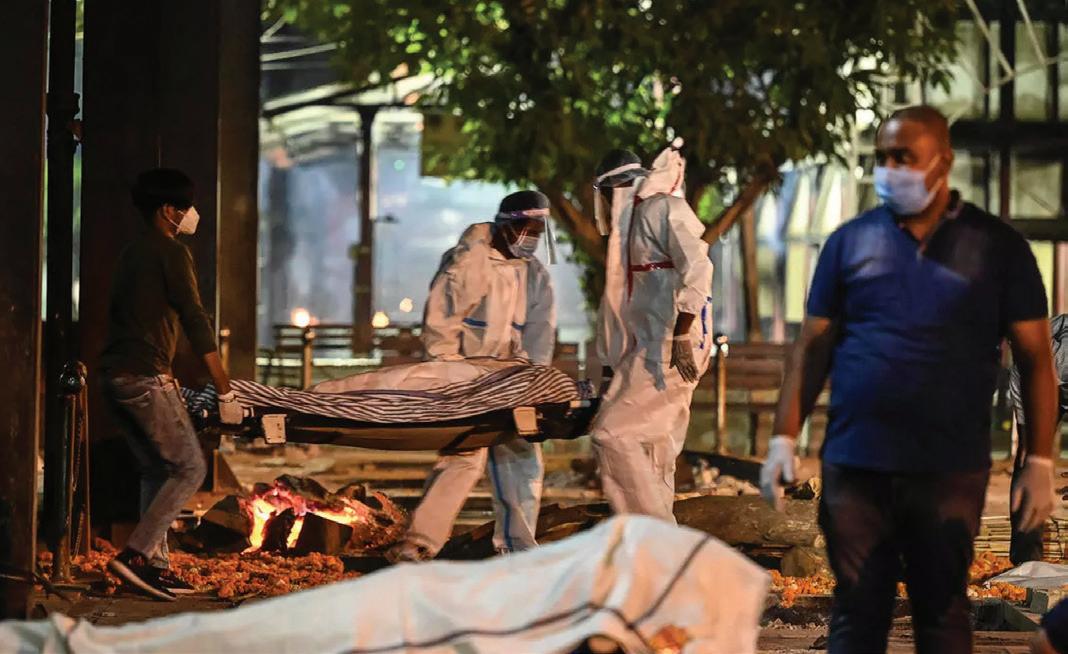
of capitalism isn't working for the vast majority of people. The deep divide between rich and poor is proving as deadly as the virus itself. The poor within countries such as France, England, Spain and the US, and those living in poorer countries such as India, are dying at a far higher rate than those who are wealthier. They are more likely to be excluded from healthcare, more likely to be pushed even further into poverty, and more likely to go hungry. They are also least likely to have rapid access to vaccines, thereby increasing their mortality rates.
Women have been hardest hit. They are overrepresented in the low-paid, precarious professions that have been hardest hit by the pandemic as well as in the highrisk frontline health and social care services.
In Ireland, despite consistent annual economic growth (prior to the pandemic), the homeless crisis seems intractable, housing has become unaffordable for the
majority of young Irish people, our hospital waiting lists keep getting bigger, and more than 120,000 people in full-time employment live in poverty, earning less than the living wage. This model of capitalism has enriched the already wealthy 1 per cent but has increased the inequalities between groups and countries, despite high employment levels.
All the talk now is about 'getting back to normal.' But we shouldn't want to 'get back to normal.' 'Normal' was highly unfair and unjust. A new economic model is needed, which prioritises people's needs rather than people's profits.
For Jesus, wealth, if not used to alleviate the suffering of the poor, is an obstacle to our relationship with God. Half of the parables in the gospels are a divine call to share wealth, not accumulate it.
So, too, for Pope Francis. He calls our worship of wealth a
new form of enslavement. "The worship of the ancient golden calf has returned in a new and ruthless guise in the idolatry of money." (Joy of the Gospel, No. 55)
He continues: "Money must serve, not rule! The pope loves everyone, rich and poor alike, but he is obliged in the name of Christ to remind all that the rich must help, respect and promote the poor." (Joy of the Gospel, 58) And again: "While the earnings of a minority are growing exponentially, so too is the gap separating the majority from the prosperity enjoyed by those happy few. This imbalance is the result of ideologies which defend the absolute autonomy of the marketplace and financial speculation… In this system, which tends to devour everything which stands in the way of increased profits, whatever is fragile, like the environment, is defenceless before the interests of a deified market, which become the only rule." (56)
While none of us may be a billionaire, we are super-rich compared to the majority of people in the world. The Gospel calls us all to question our consumer-oriented lifestyle. Perhaps today, we could say that we are being called to live simply and share generously.
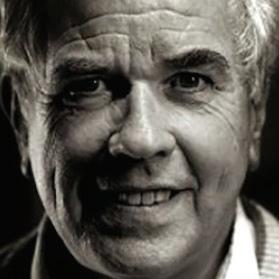
REALITY JUNE 2021 44 COMMENT
THE PANDEMIC HAS SHONE A BRIGHT LIGHT ON SOMETHING WE ALREADY KNEW BUT WERE AFRAID TO ADMIT – THE CURRENT MODEL OF CAPITALISM ISN'T WORKING FOR THE VAST MAJORITY OF PEOPLE.
more information or to
Trust: www.pmvtrust.ie info@pmvtrust.ie +353 (0)1 823 0776
REALITY CHECK PETER McVERRY SJ
For
support the Peter McVerry
India's health system is overwhelmed by victims of the pandemic.
GOD’S WORD THIS MONTH
BLESSED AND BROKEN
Today’s feast does not commemorate any particular event in Jesus’ life, but is a celebration of his gift of the Eucharist. The traditional day for this feast is the Thursday after Trinity Sunday. The reason Thursday is chosen is because Jesus celebrated the Last Supper on the Thursday before he died when he gifted his disciples with the Eucharist during the Passover meal. Many local churches, including those in Ireland and the UK, have moved the celebration to the Sunday after Trinity Sunday.
In the Gospel for today, the disciples ask Jesus about his plans to celebrate the

Passover meal. Jesus sends two of them into the city and tells them what they are to do. Normally, the Passover meal would be celebrated by a Jewish family. However, Jesus is not going to celebrate this meal with blood relatives but with his 'new family' of disciples. When the disciples go into the city, everything happens as Jesus foretold and they make the preparations.
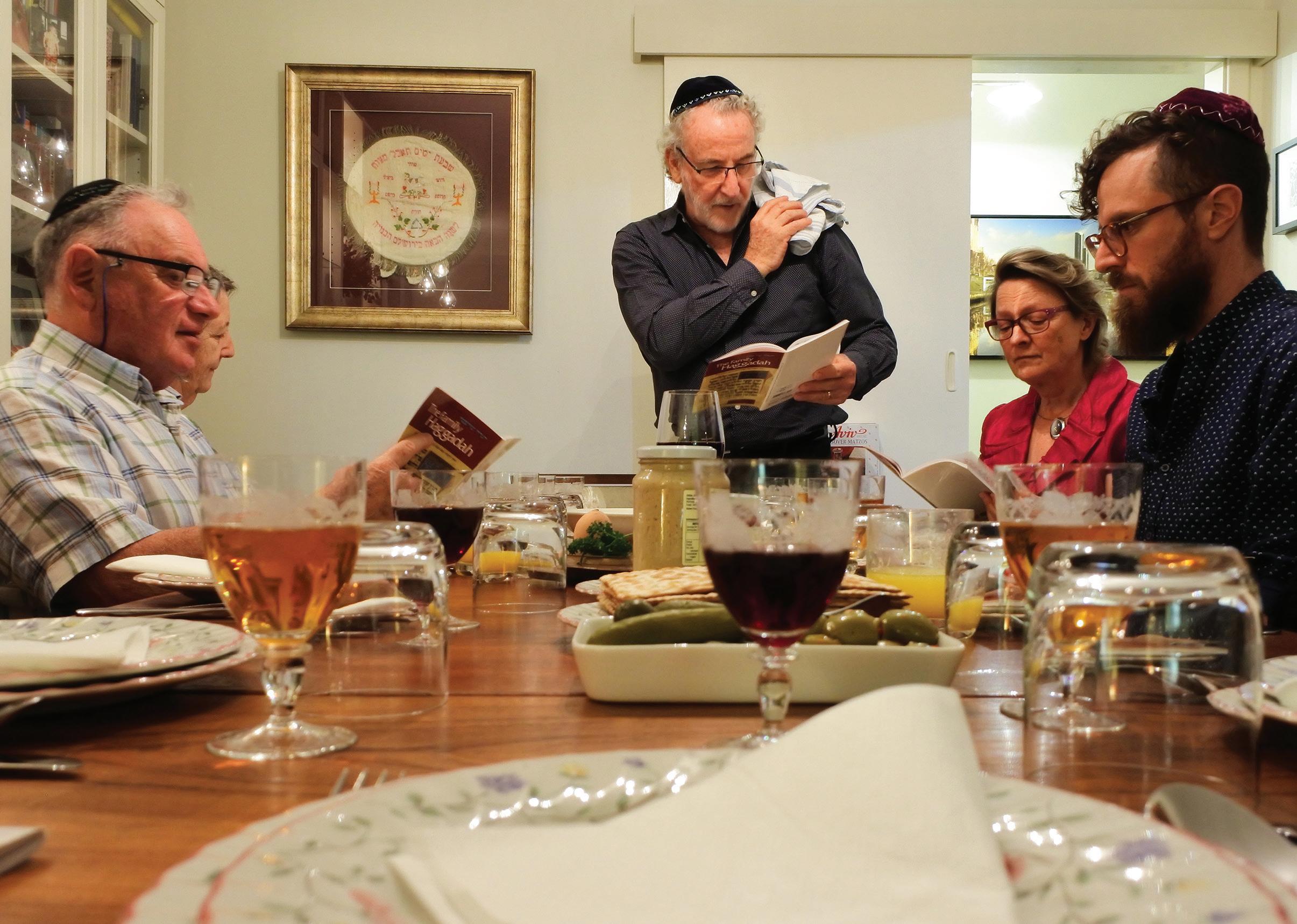
Later that evening, during the meal, Jesus speaks words about his death over the bread and wine. Following the Jewish custom at Passover, Jesus blesses God for the gift of food and then breaks the bread and gives a piece to all present with the words, “Take, this is my body.” The broken bread he shares with the disciples is his body broken in death for others. Those who eat this bread are now
connected to him in the most profound way. He does the same with the cup and adds, “This is my blood of the covenant, which is poured out for many.” The Jews understood that the covenant made between God and Israel at Mount Sinai had been sealed in animals’ blood. Blood symbolised life and since the Sinai covenant was sealed in blood, it meant that Israel then shared in God’s life. Jesus now offers us an eternal, life-giving New Covenant, sealed in his very own blood. This is what we celebrate every time we go to Mass.
Today’s Readings
Ex 24:3-8; Ps 115; Heb 9:11-15; Mk 14:12-16.22-26
45 JUNE 06
THE BODY AND BLOOD OF CHRIST
God’s Word continues on page 46
GOD’S WORD THIS MONTH
FROM SMALL BEGINNINGS
In today’s Gospel Jesus talks about seeds and God’s Kingdom. Seeds are mysterious. Their genetic code for a new generation of life is contained in a tiny piece of matter. We can create the right environment for a seed to grow but we can’t make it grow. If seeds are mysterious to us, imagine how much more so to Galilean farmers in the time of Jesus. Their hope for the future depended on the sprouting of seeds. A drought could wipe out a whole season’s work, and bring about famine. On the other hand, rain at the right time and favourable conditions would mean the difference between life and death. The seed was not just an abstract image of life – it was life itself.
Today’s Gospel contains two parables about seeds. The first stresses the mysterious
JESUS CALMS THE STORM
What we wouldn’t give for a life without worries or troubles of any kind!
If only all our days were calm and happy and totally stress-free! It would be like heaven. Indeed, it would be heaven!
Unfortunately, we know only too well that life isn’t like that. No matter who we are, or what we do, or how old or young or rich or poor we may be, we all have our worries and troubles and crises. We all encounter storms of one kind or another – bereavements, broken relationships, unemployment, rows, disappointments, illness. It’s part and parcel of life.
It can be tempting sometimes to feel like the apostles did in the midst of the storm. It can seem like Jesus is asleep. We can doubt he is really with us. We can think he doesn’t care. Our faith is challenged.
growth of the seed that is beyond human control. The harvest comes about in three stages. First, the seed is sown. Then, while the farmer goes about his business, the seed grows and “he does not know” how. Only when the grain is ripe does the farmer come into play again when his skill is called for. The point of the parable is that once the seed is sown, the farmer lets it be and trusts the soil to bring about growth, even though he doesn’t understand the process. When the grain is ripe, then he knows that he must gather in the harvest.
Jesus has sown the seeds of his word. Now, in this present time, those seeds are growing, even though we cannot see anything dramatic happening. We cannot speed up or slow down the coming of the Kingdom. But its plentiful harvest will take place, if we trust in God.
The second parable deals with the apparent insignificance of the Kingdom of God in the present time. It stresses the amazing contrast
between the tiny seed and the vast outcome resulting from its growth. The small seed turns into a great tree in which the birds of heaven build their nests. The message of the parable is that all kinds of faithful people will find a home in the Kingdom and God will protect them. They should not be disheartened by the Kingdom’s humble beginnings.
The message of the parables is clear. The Kingdom of God is a mysterious thing. Its beginnings may be modest or even insignificant like the mustard seed. It will grow, but its growth does not depend on human action. Like the farmer, God scatters the mysterious seed of the Kingdom through Jesus, hoping it will take root and produce a harvest.

Today’s Readings
Ezk 17:22-24; Ps 91; 2 Cor 5:6-10; Mk 4:26-34
But the message of today’s Gospel is very clear: Christ is with us at all times and in every situation. Just as Jesus was present with his disciples in the midst of the storm on the lake, he is present with us in our storms too, helping us to come through them.

The apostles knew they could not cope on their own, and in their anxiety and fear, called on Jesus to help them. And he did.
In the midst of our anxieties and fears, we are invited to call on Jesus too, for he is always there with us, and he hears our cry.
Today’s Readings
Jb 3:1.8-11; Ps 106; 2 Cor 5:14-17; Mk 4:35-41
46 REALITY JUNE 2021 JUNE 13 ��th SUNDAY IN ORDINARY TIME
JUNE 20 ��th SUNDAY IN ORDINARY TIME
LIFE RESTORER
In his Gospel, Mark likes to use a technique that allows him to tell two stories at the same time. He takes a story, divides it into two parts, then inserts a second story between the two parts of the first story. In today’s text, the story of the woman with a haemorrhage is inserted into the story of the raising of Jairus’ daughter. Let’s look at the two stories separately.
Jesus has just crossed the Sea of Galilee and is about to teach the people there when a synagogue official called Jairus begs him to come and heal his sick daughter. It’s an unusual request from someone of the religious establishment which has shown itself resistant to Jesus’ message. But Jairus is also a parent and he is desperate. Jesus agrees to heal the child and heads for Jairus’ house.
While on his way, he meets a woman with a haemorrhage, whom he heals. Suddenly, Jairus’ situation becomes tragic. Messengers arrive. The little girl is dead. There is no point in bothering Jesus any further. Jesus overhears the message and invites Jairus to stay on the journey of faith. When Jesus gets to the house, the only disciples he allows enter are Peter, James and John. There is also a large crowd of friends and relatives gathered in mourning, who meet Jesus’ statement that the girl is not dead with derisive laughter. Jesus sends them out, for there is no place for unbelief in what he is about to do. He invites the girl’s parents to join him and the three disciples. Then, taking the child by the hand, he says in Aramaic, Talitha qum! which means “Little girl, arise!” The child is 12 years old. She has had life for as long as the other woman has had haemorrhages. Like the older woman, Jesus has given the little girl life and a future.
The cure of the woman with the haemorrhage takes place while Jesus was on his way to Jairus’ house. This woman is suffering unbelievably. She has been bleeding for 12 years. She has gone from doctor to doctor, spending all she has on one useless treatment after another. She is broke and she is getting worse. In Jesus’ day, blood was considered to be a person’s life-force. People who bled were avoided and isolated out of fear of (ritual) contamination. So along with the haemorrhaging, the woman was socially isolated within her own community. She had no life and no future. She has heard about Jesus and, summoning up her faith, she touches his clothes. She is cured instantly. The years of suffering are over and she has a life and a future again. Yet Jesus, aware that power has gone out from him, wants to meet her. His miracles are not anonymous, magic events. They are personal encounters in faith. When she comes forward and tells her story, it is her way of proclaiming who Jesus is and what he has done for her.
THE REALITY CROSSWORD
NUMBER � JUNE ����
SOLUTIONS CROSSWORD No. 3 ACROSS: 1. Church, 5. Bunyan, 10. Worship, 11. Our Lady, 12. Teak, 13. Uncap, 15. Zion, 17. Gab, 19. Hydras, 21. Facets, 22. Gordian, 23. Jigsaw, 25. Danube, 28. Pew, 30. Sign, 31. Music, 32. Bier, 35. Israeli, 36. Paddock, 37. Unholy, 38. Ermine. DOWN: 2. Harvard, 3. Ruhr, 4. Hoping, 5. Baobab, 6. Nero, 7. Avarice, 8. Swatch, 9. Hyenas, 14. Candles, 16. Pagan, 18. Canal, 20. Sow, 21. Fad, 23. Jesuit, 24. Gagarin, 26. Unicorn, 27. Eureka, 28. Purity, 29. Wimple, 33. Zero, 34. Adam.

Winner of Crossword No.� John Deignan, Dunmore, County Galway.
ACROSS
1. He was thrown into a lions' den. (6)
5. Split something, especially along a natural line or grain. (6)
10. The kneecap. (7)
11. Mythical bird which rose from the ashes. (7)
12. A crow and castle. (4)
13. A Latin dog. (5)
15. Put aside for a rainy day. (4)
17. A short time shortened. (3)
19. Regards with hatred and disgust. (6)
21. Month named after a venerable Roman emperor. (6)
22. The sacrament of admission to Christianity. (7)
23. Raised enclosed platform in a church used for sermons. (6)
25. A shawl worn as a cloak by people from Latin America. (6)
28. A large dark African antelope. (3)
30. Praise, extol, hail. (4)
31. Moved closely to, and slowly along, the ground. (5)
32. Something that has been previously owned. (4)
35. The space between the chest and pelvis. (7)
36. Lizards of South America. (7)
37. Off the right path or route. (6)
38. A form of the Hebrew name of God used in the Bible. (6)
38. Discs that can be used instead of money in some machines. (6))
DOWN
2. ncient city once known as "the cradle of Christianity." (7)
3. Spend time doing nothing. (4)
4. Domesticated pack animals from the Andes. (6)
5. A part of the Christian Church which was founded in Egypt. (6)
6. Dark brown or black. (4)
7. Island country in the South Pacific Ocean. (7)
8. Military city-state of ancient Greece. (6)
9. An authority on a particular subject. (6)
14. The eighth planet in our solar system. (7)
16. The curved path of a celestial body around a planet. (5)
18. A measure of light from a light source. (5)
20. A short day. (3)
21. Biblical animal who debated with Balaam. (3)
23. A tall vertical monument. (6)
24. A place of pilgrimage in the lower Pyrenees. (7)
26. It apparently makes the heart grow fonder. (7)
27. The first born. (6)
28. The mother of your mother or father. (6)
29. Self-important, arrogant. (6)
33. A title of Muslim leaders. (4)
34.
Entry Form for Crossword No.5, June 2021
JUNE 27 ��th SUNDAY IN ORDINARY TIME
Fiery plant at the location where Moses was appointed to lead the Jews. (4)
Telephone: All entries must reach us by Wednesday, June 30, 2021 One €35 prize is offered for the first correct solutions opened. The Editor’s decision on all matters concerning this competition will be final. Do not include correspondence on any other subject with your entry which should be addressed to: Reality Crossword No.5, Redemptorist Communications, St Joseph's Monastery, Dundalk, County Louth A91 F3FC
Name: Address:
Today’s Readings Ws 1:13-15.2:23-24; Ps 29; 2 Cor 8:7.9.13-15; Mk 5:21-43

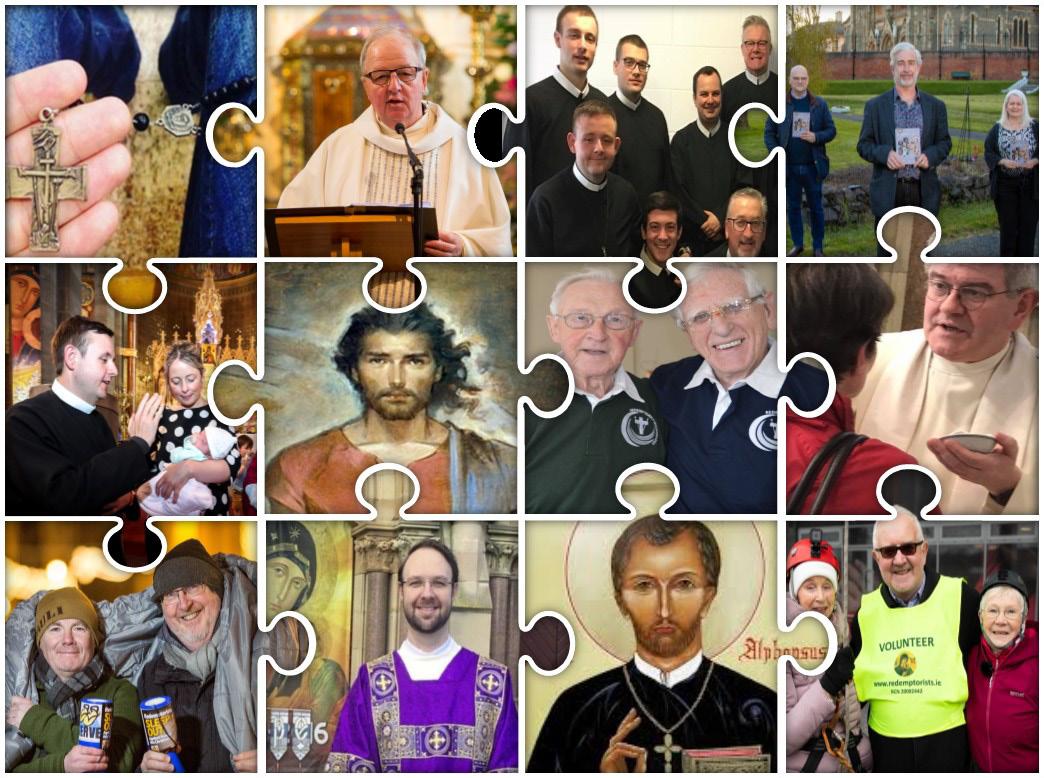














 By Jane Mellet
By Jane Mellet







































 BY KEVIN WILLIAMS
BY KEVIN WILLIAMS












 BY JOHN O'BRIEN
BY JOHN O'BRIEN






















































